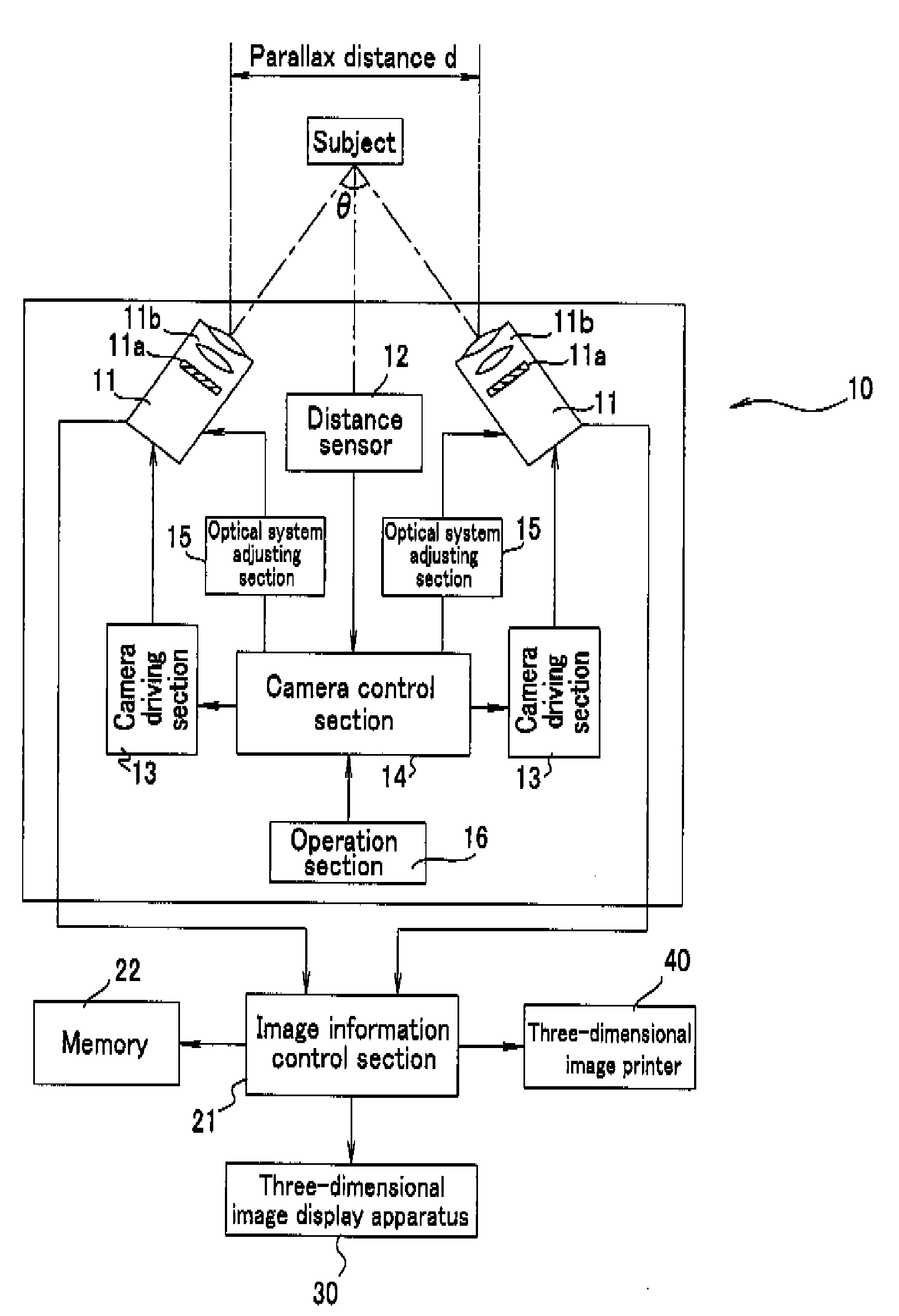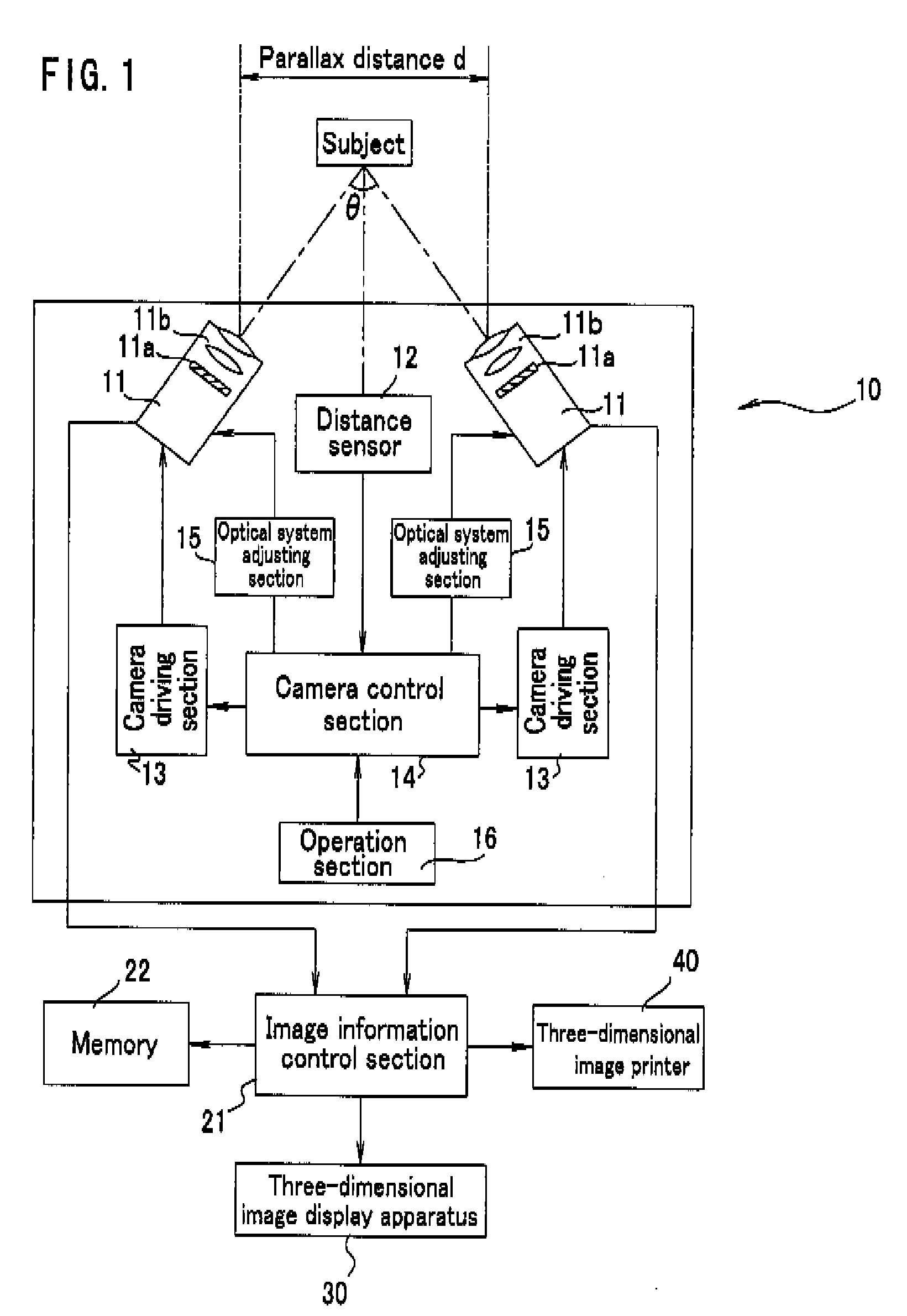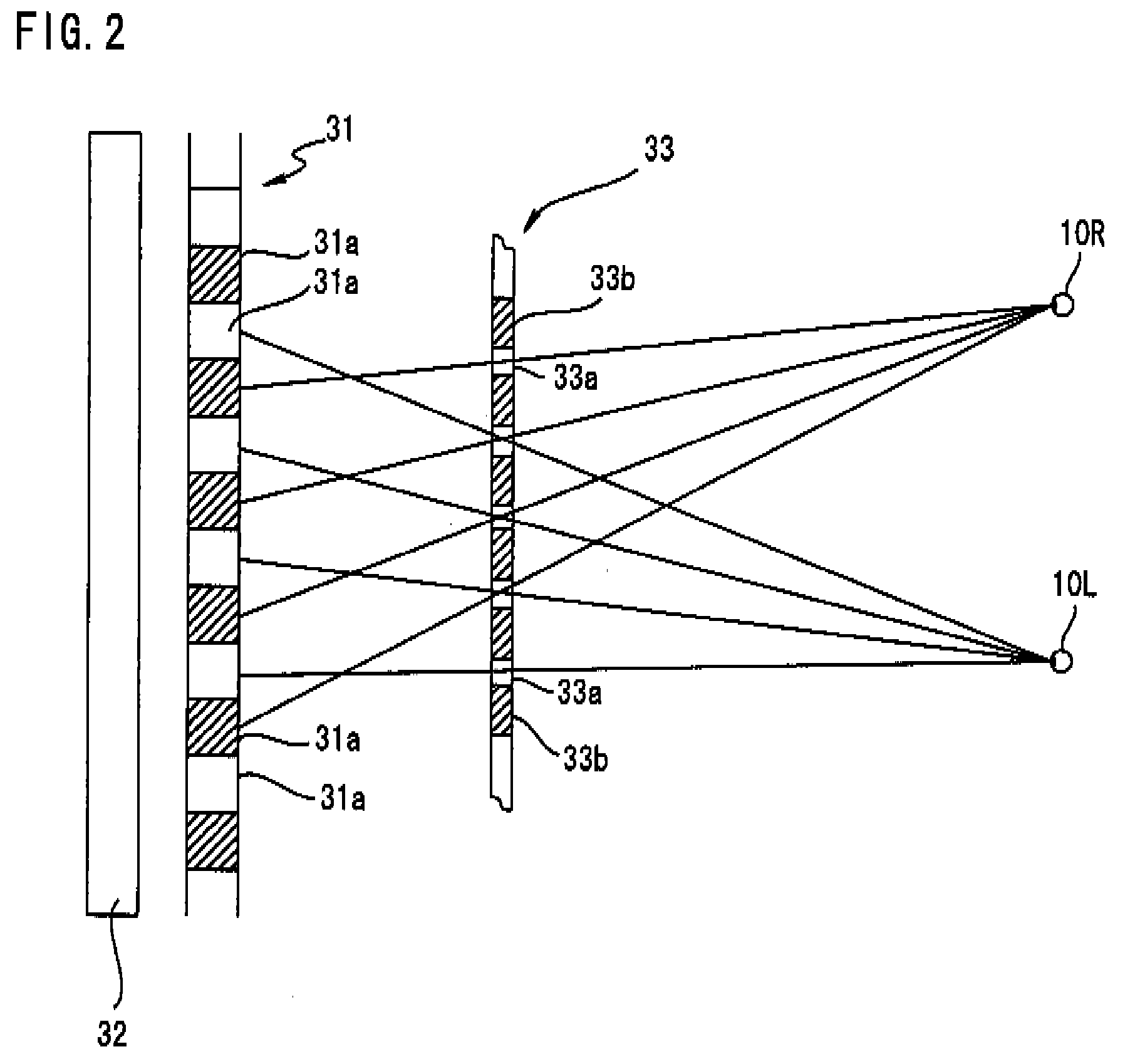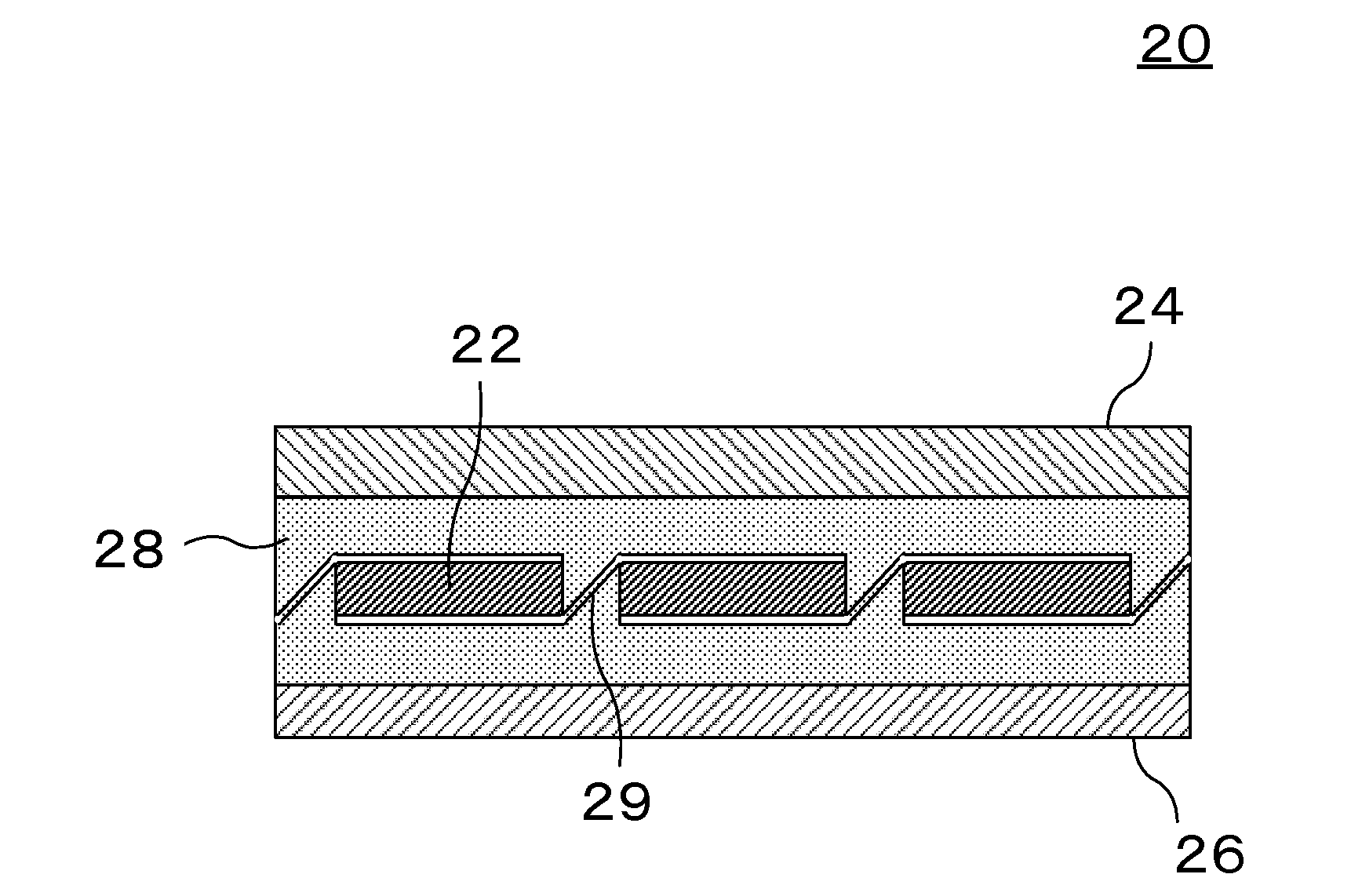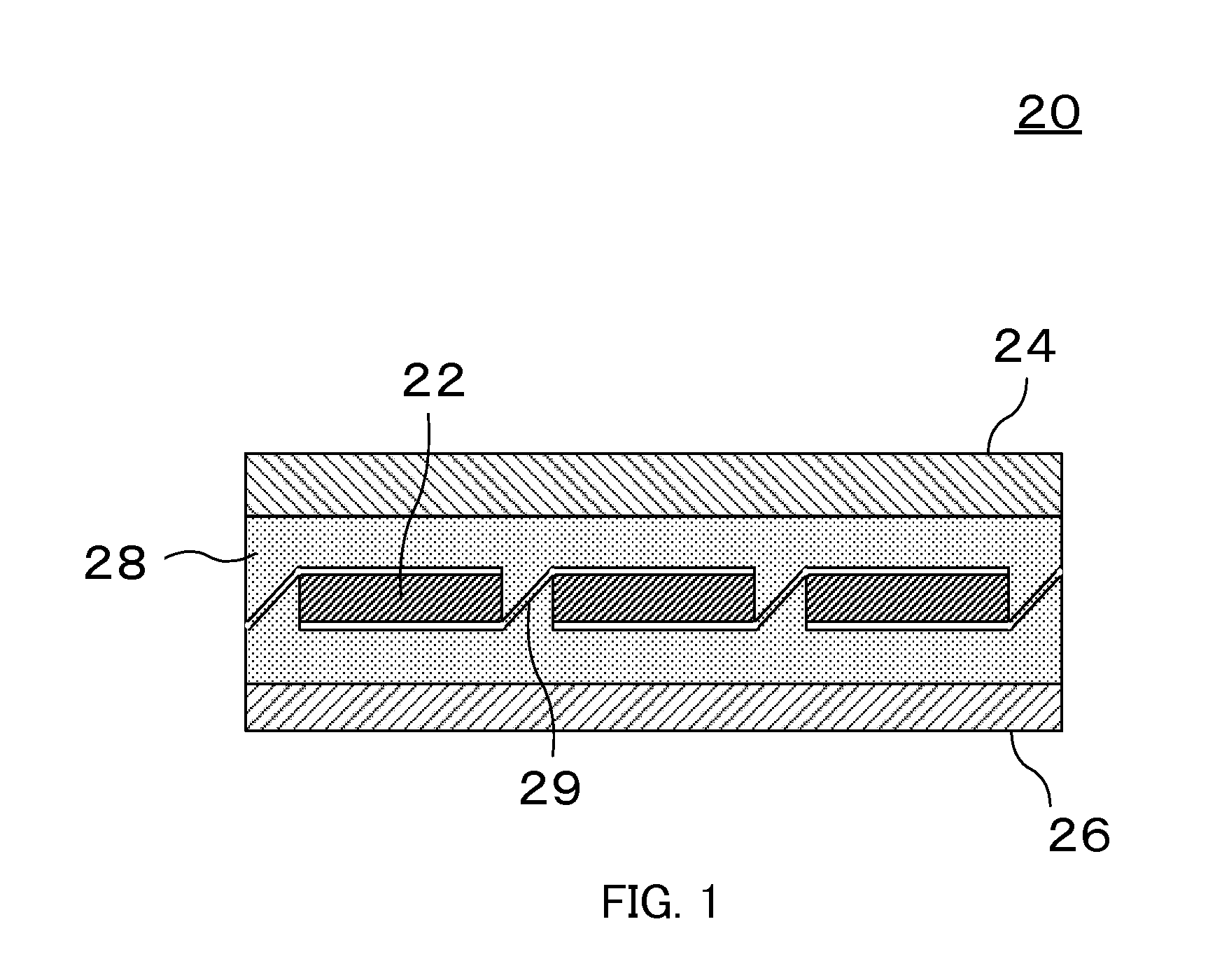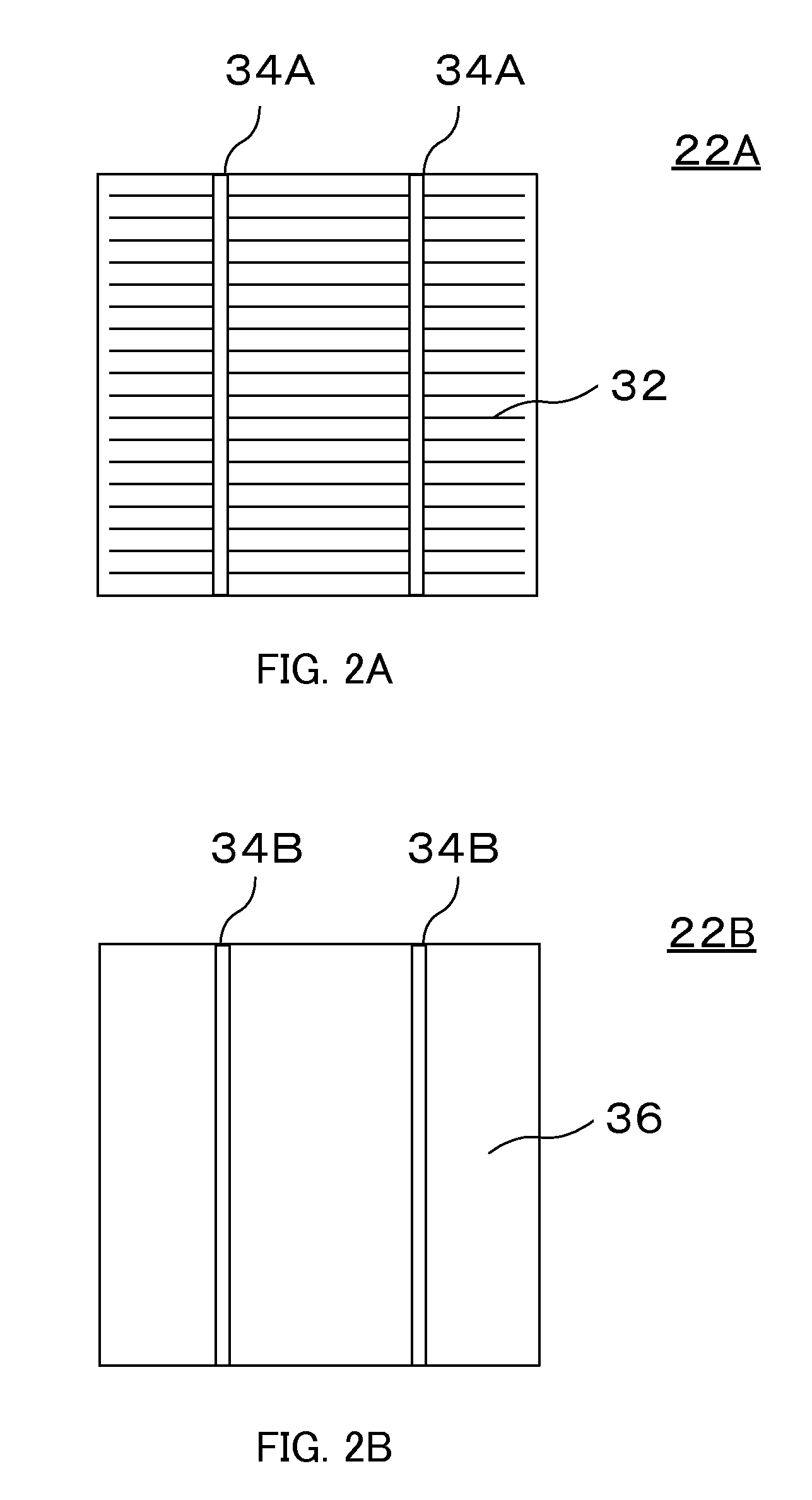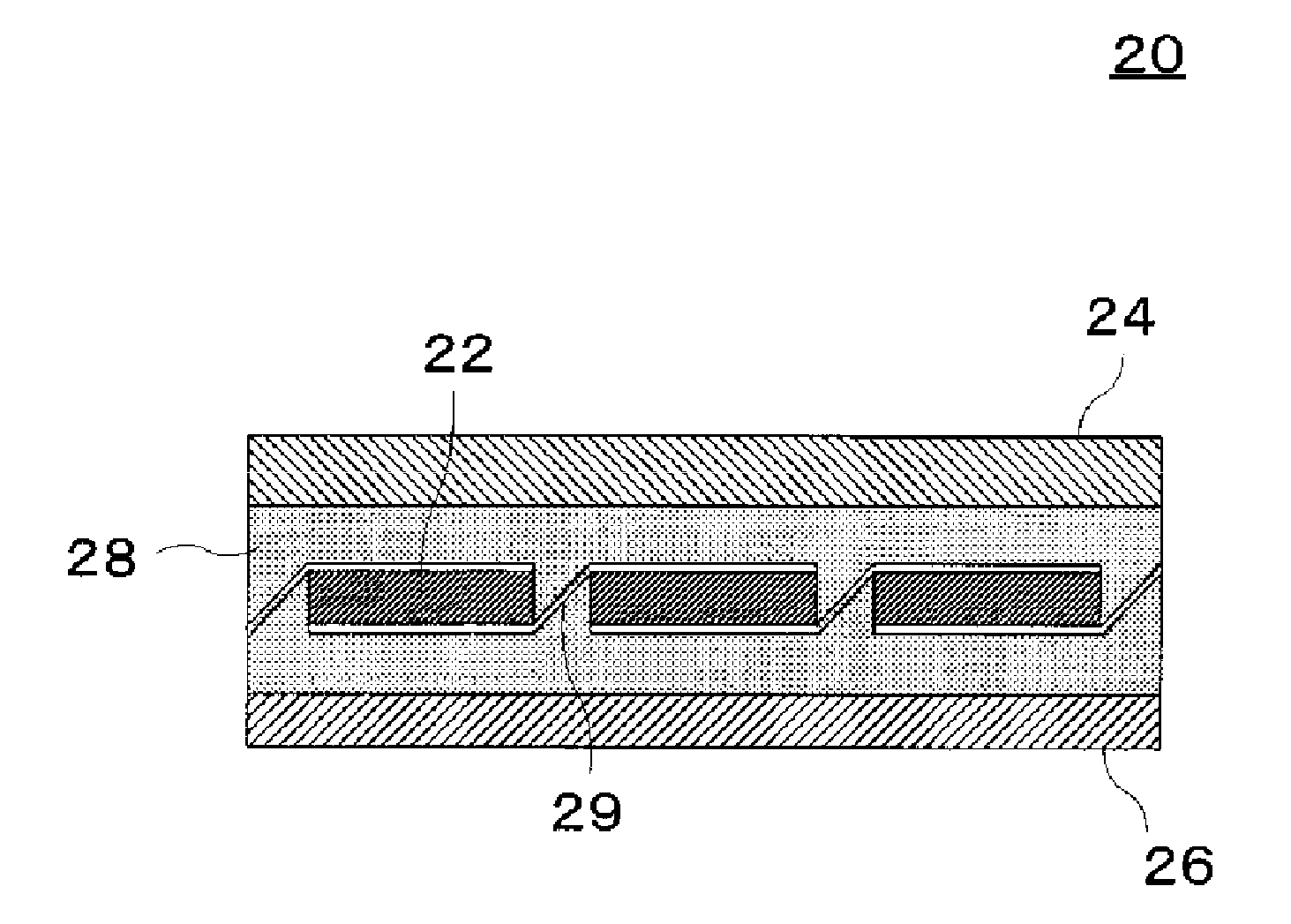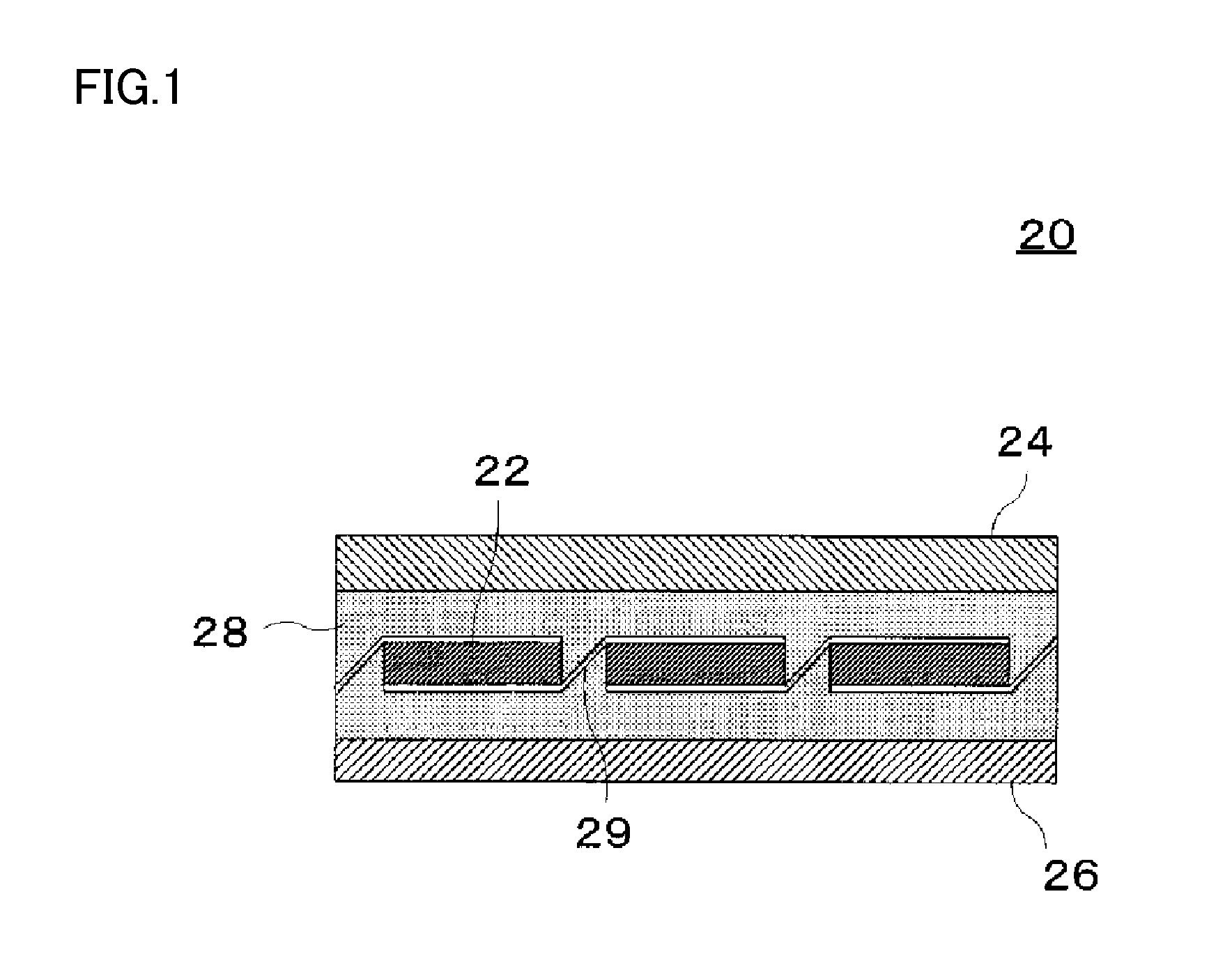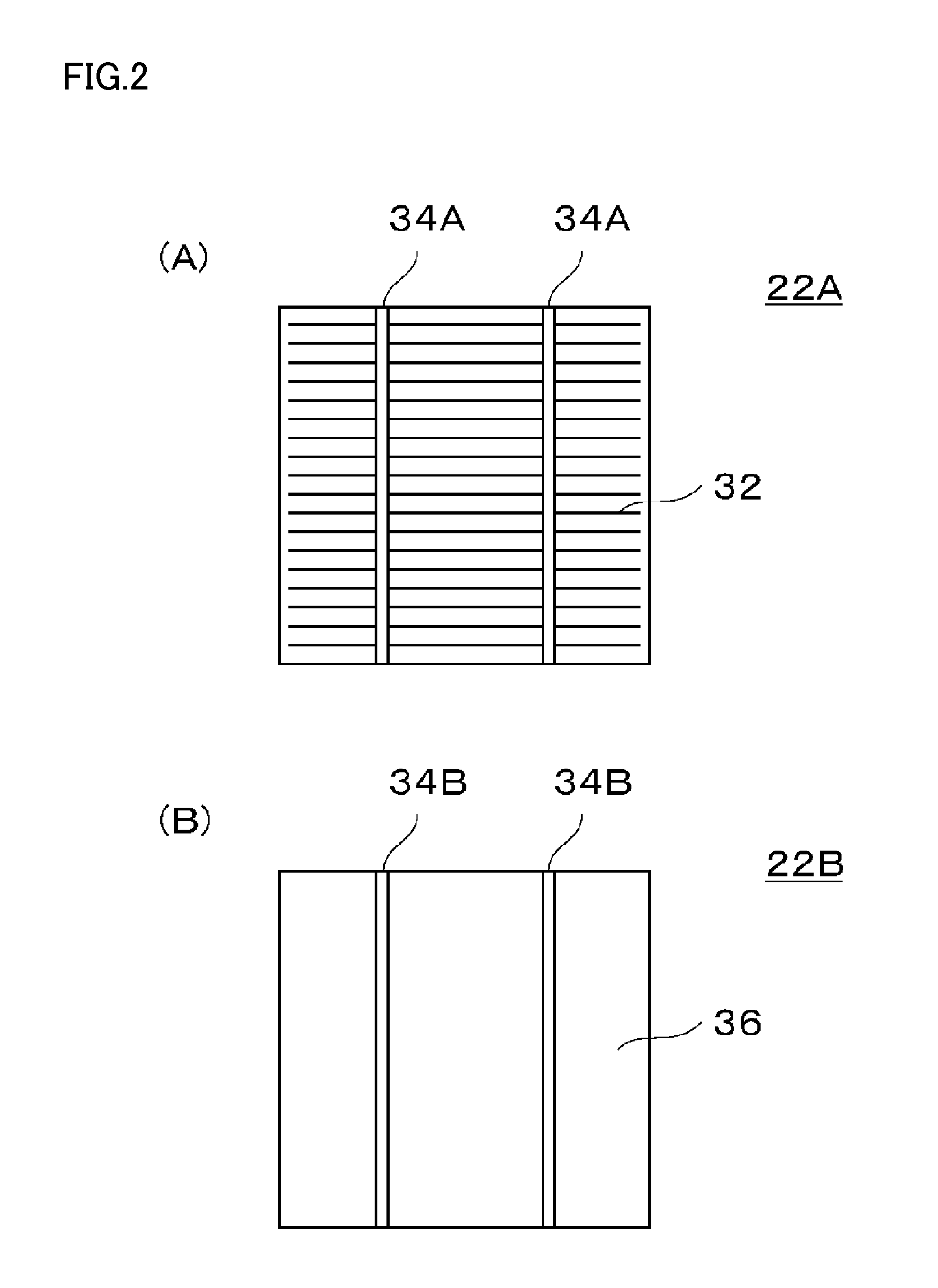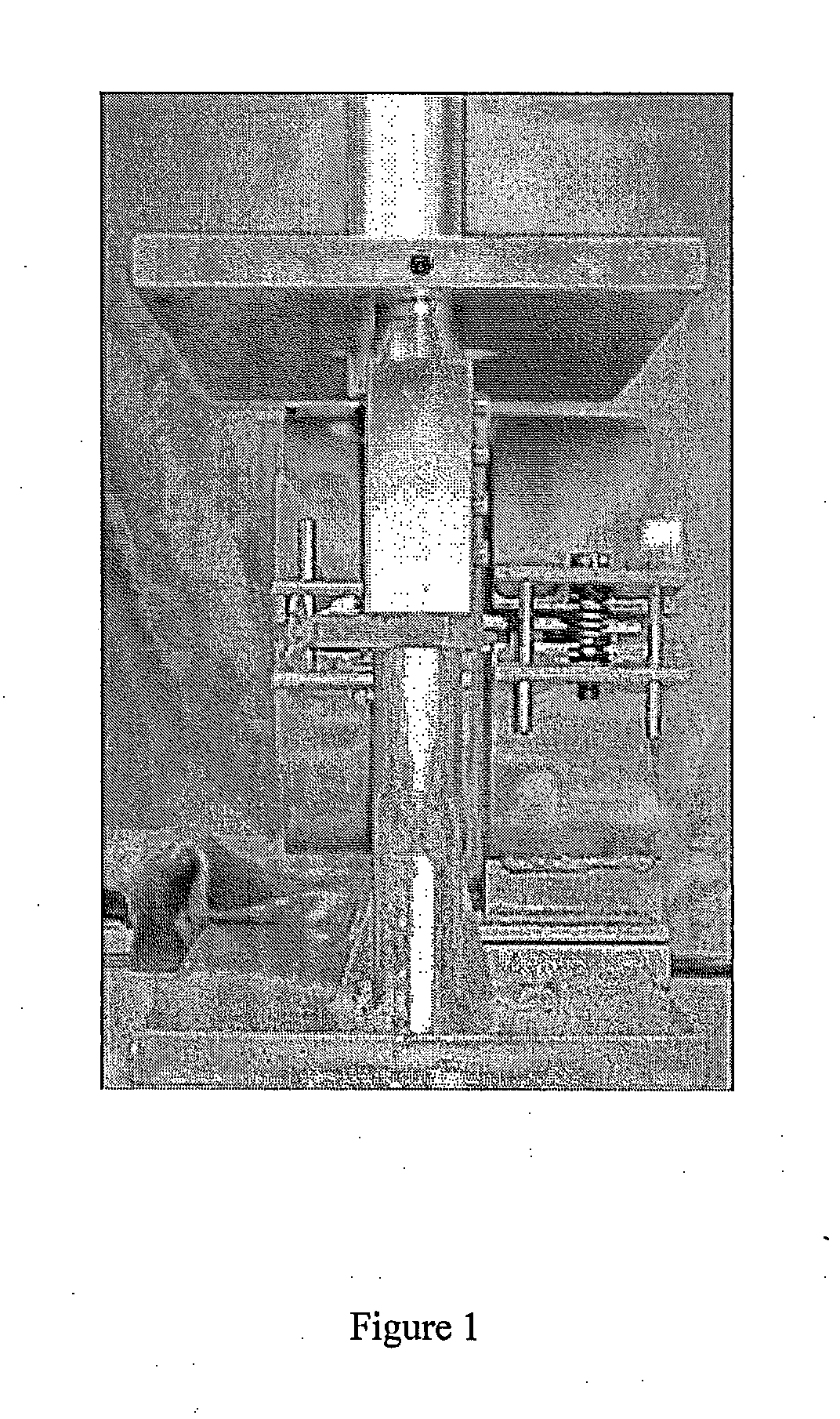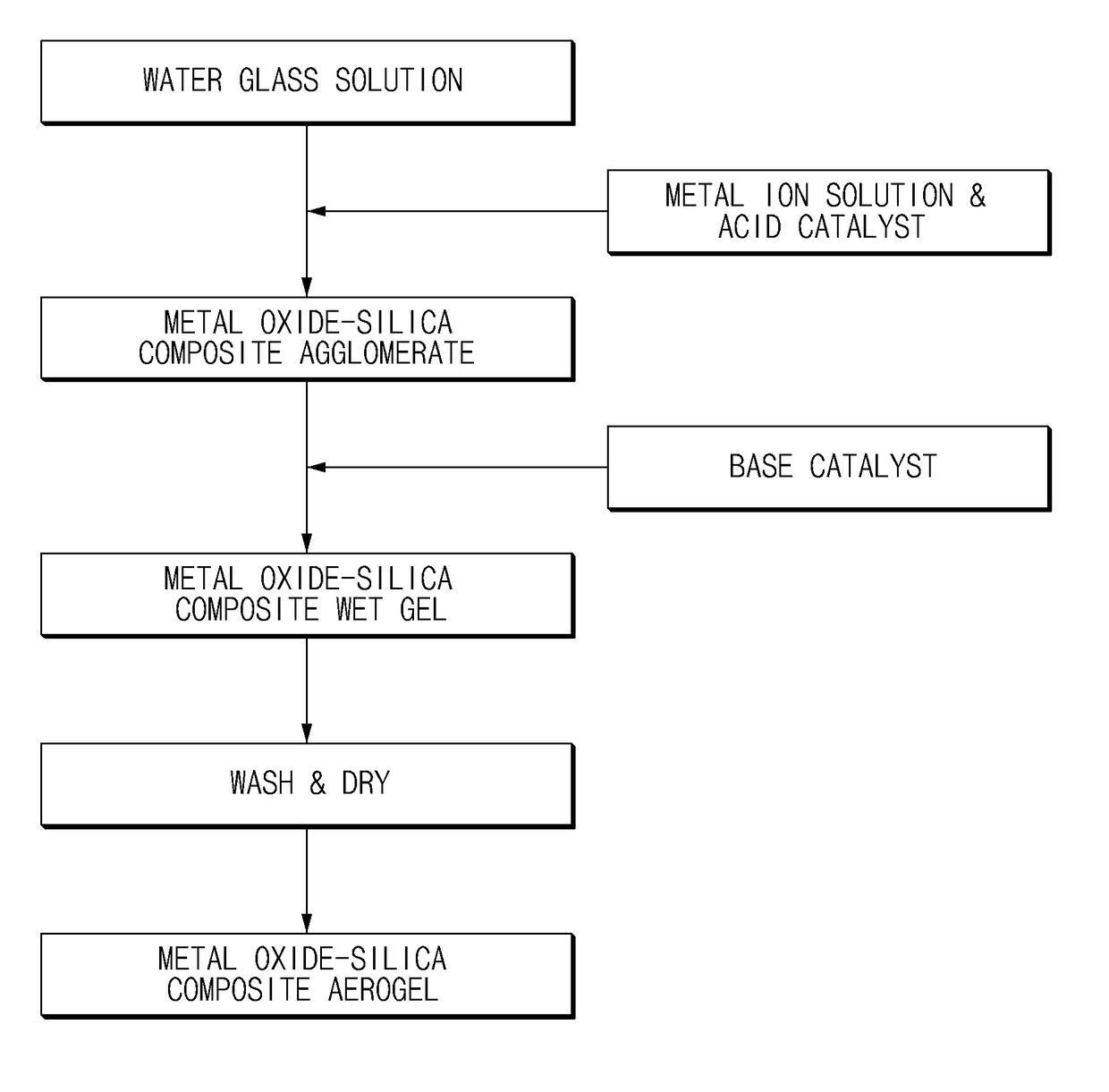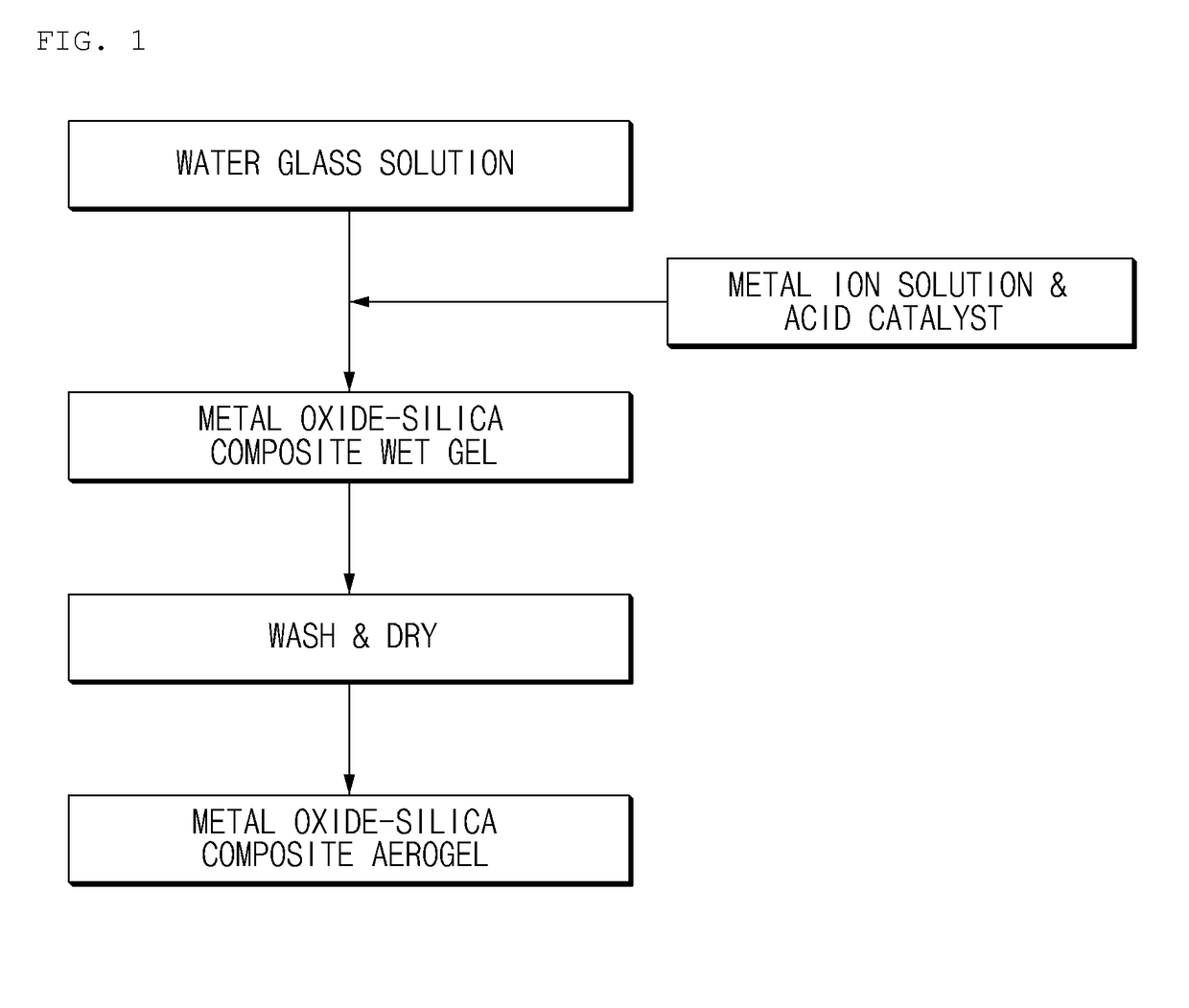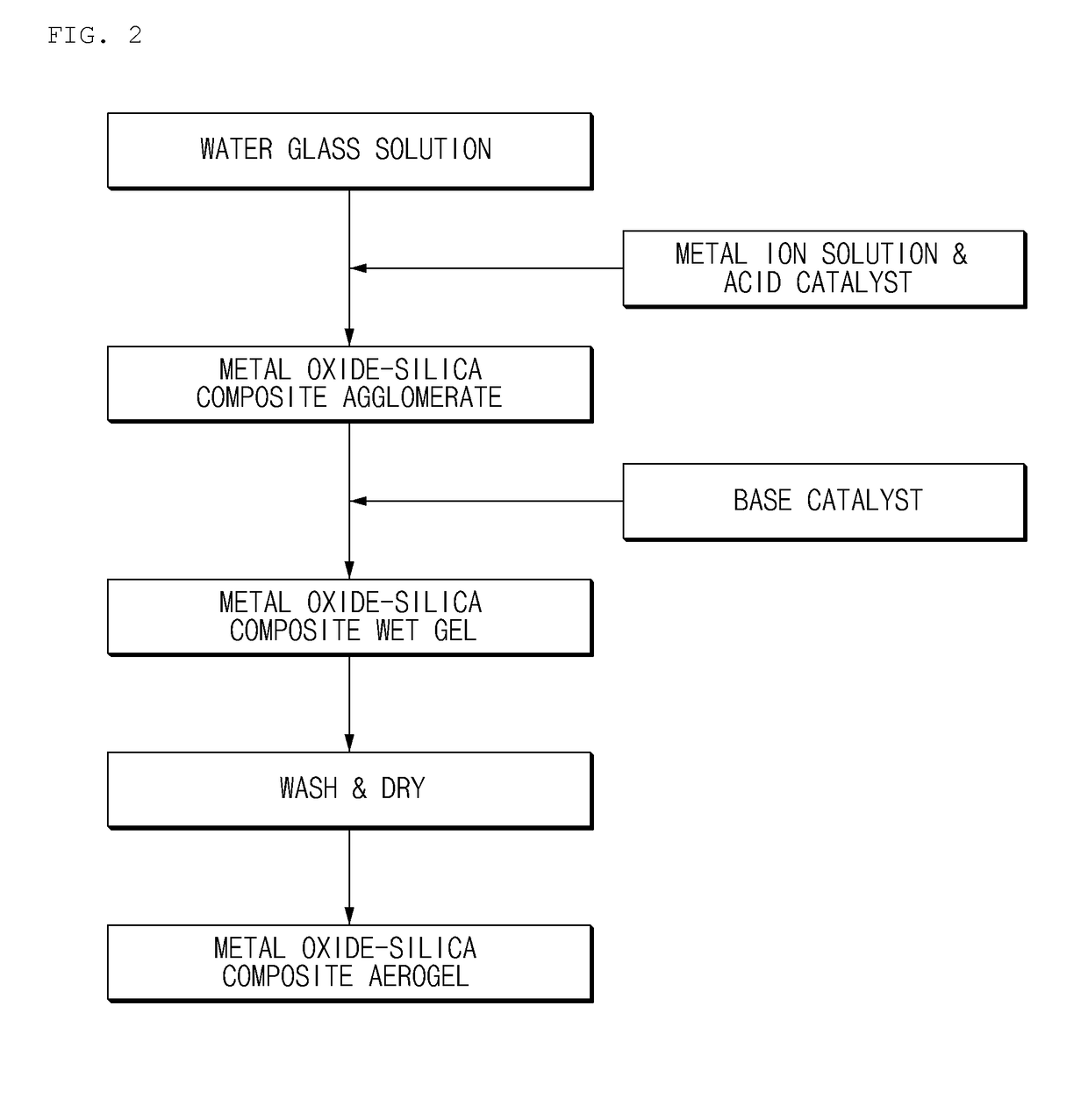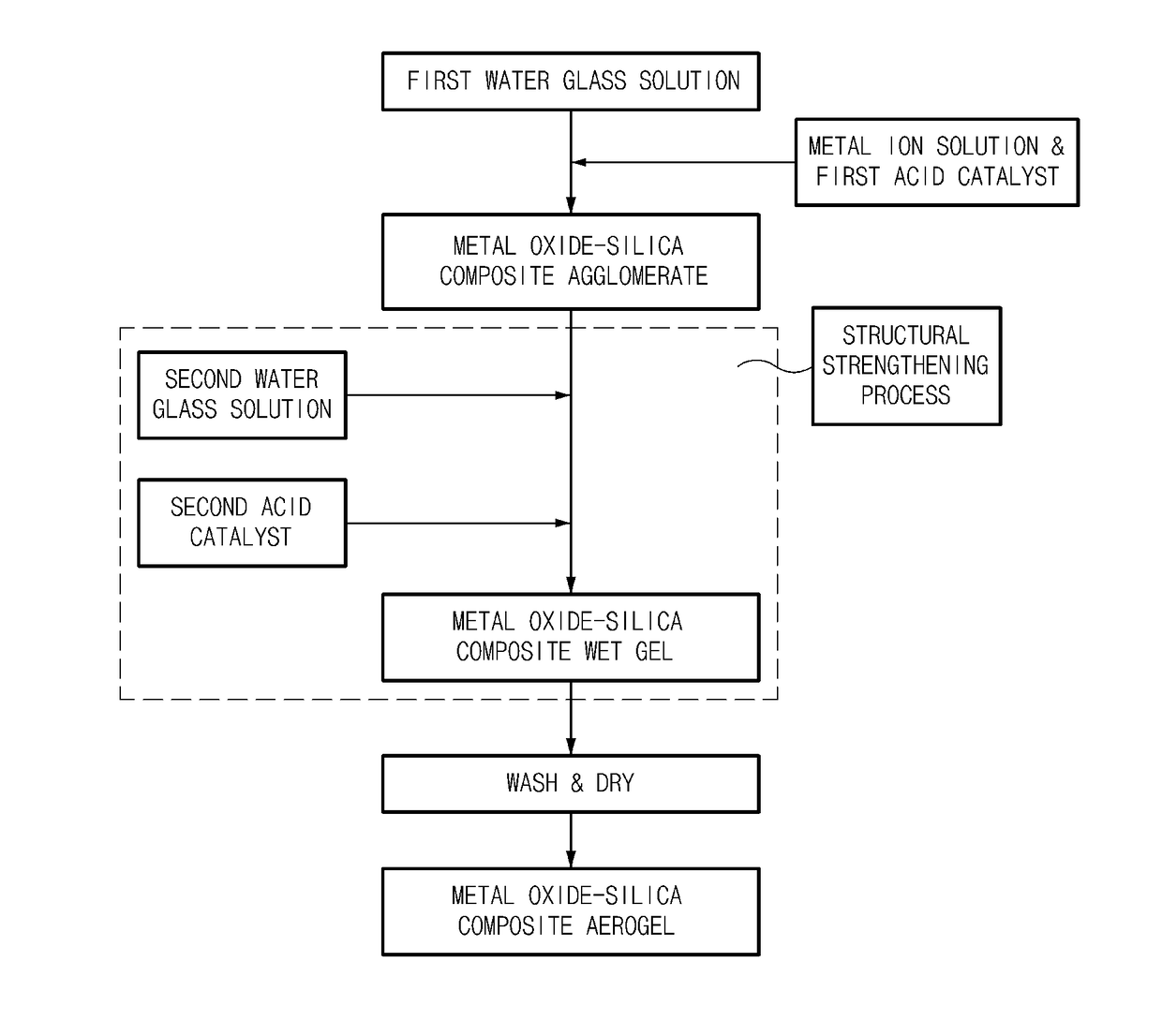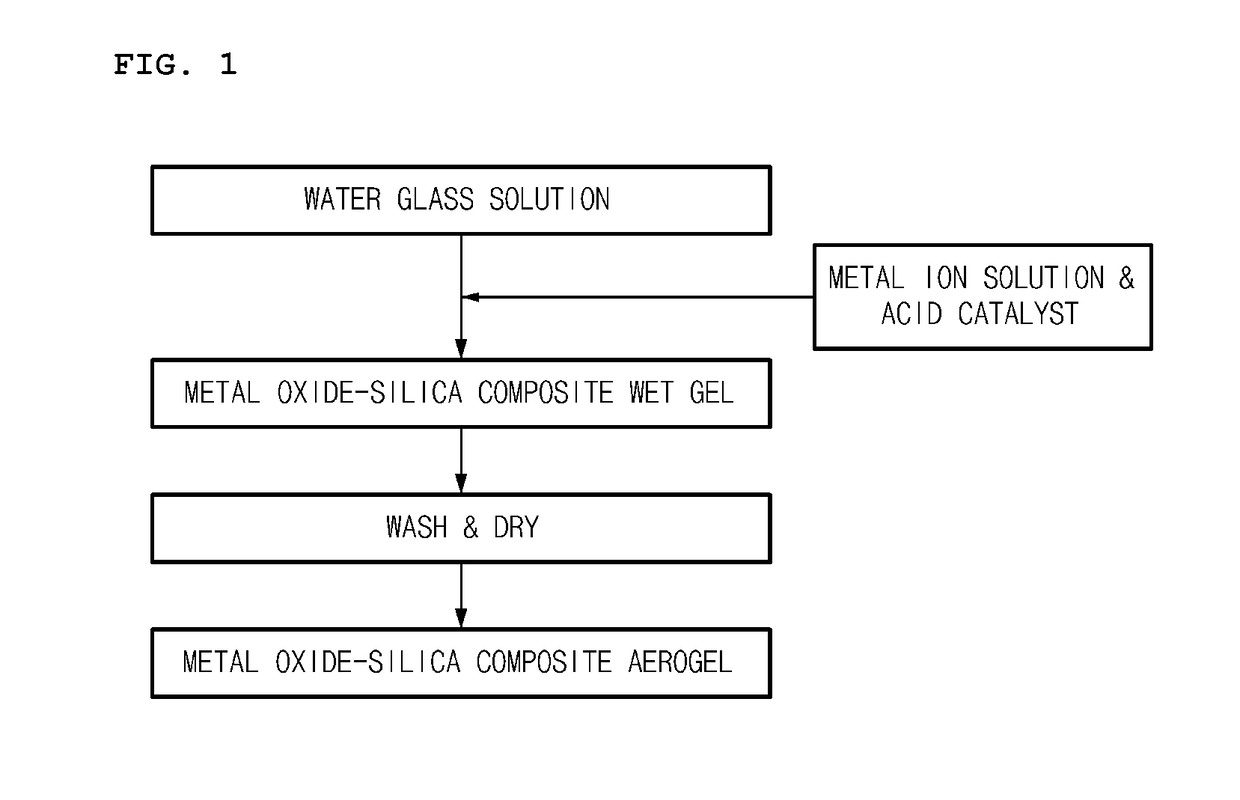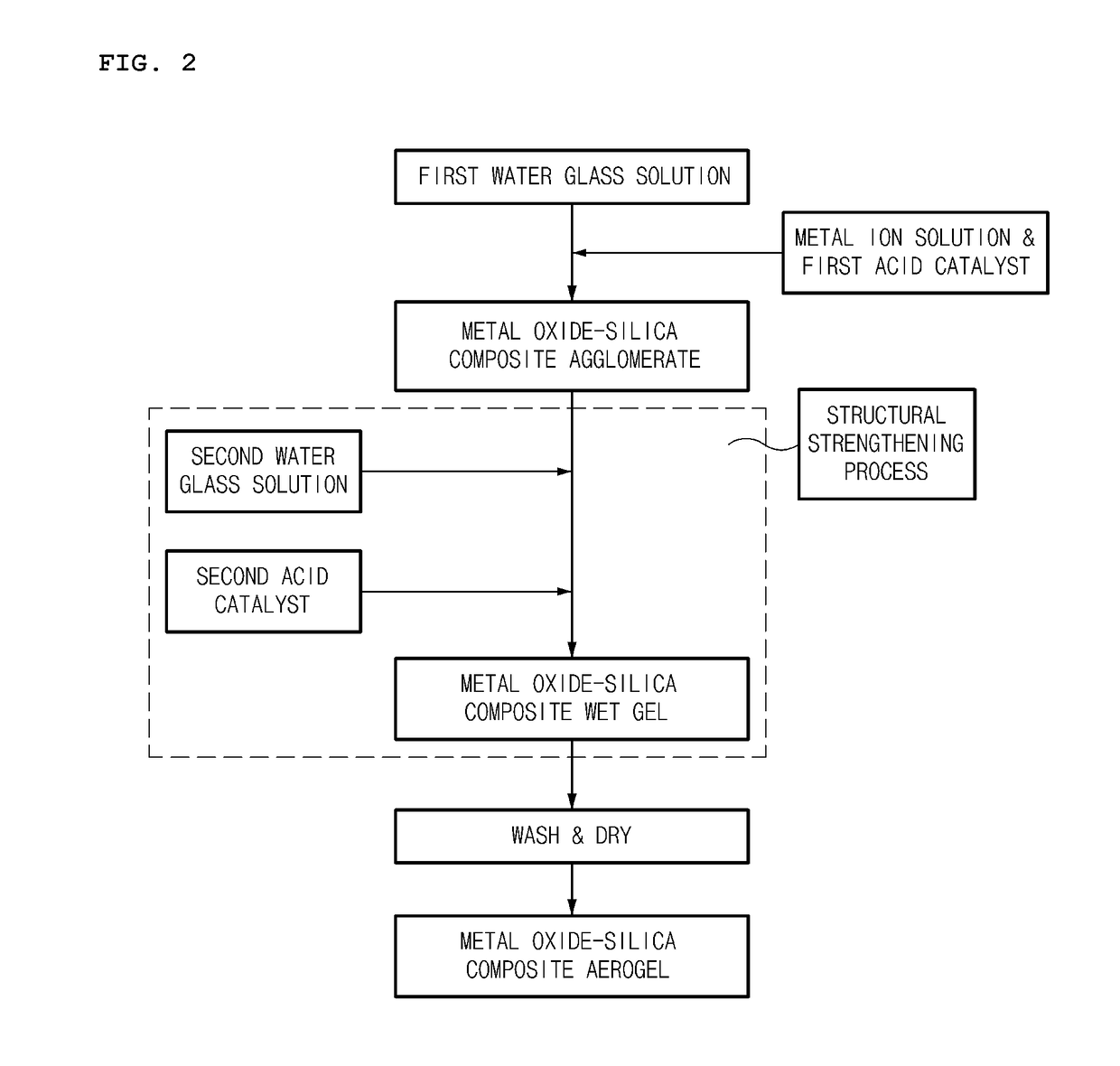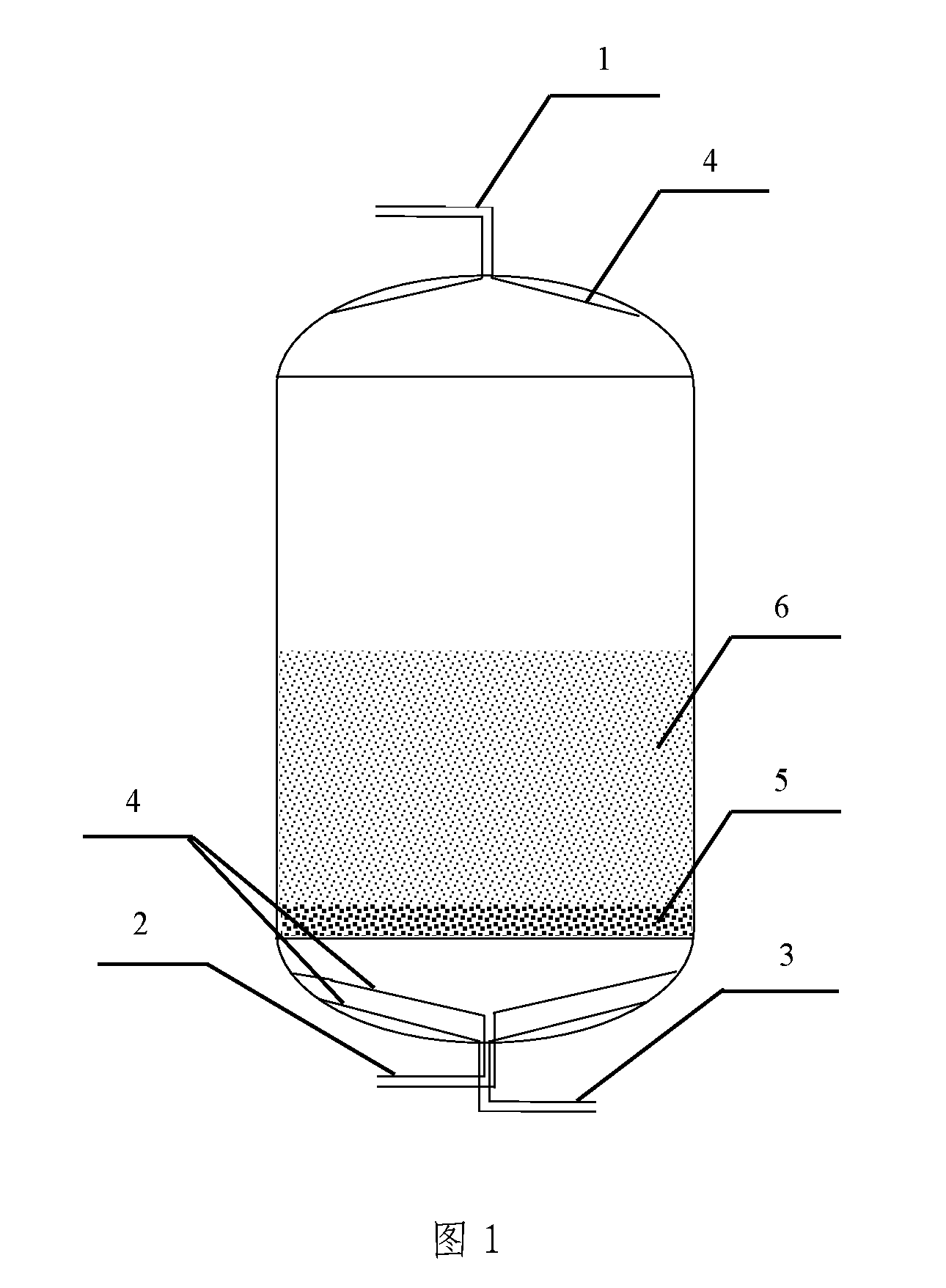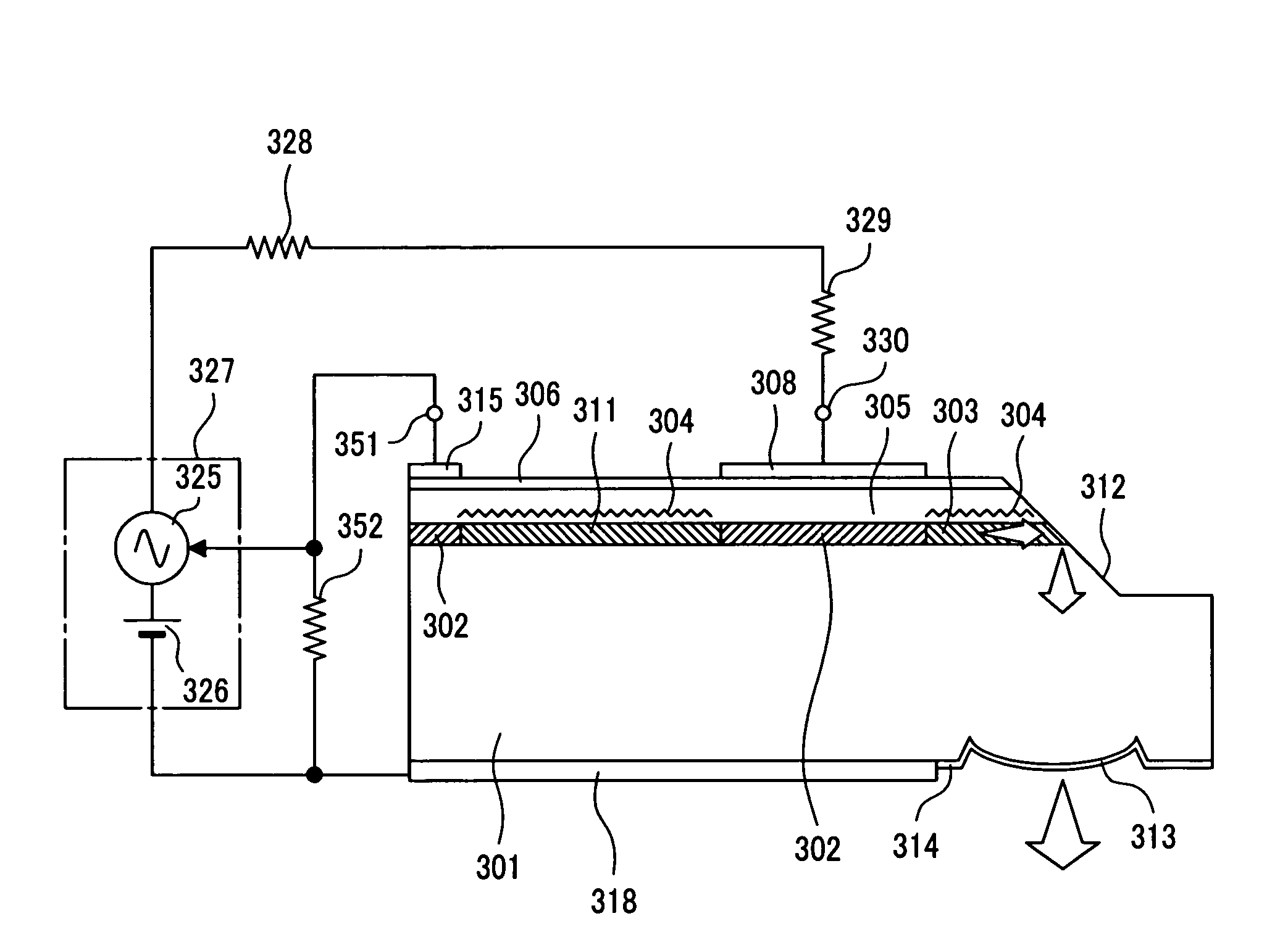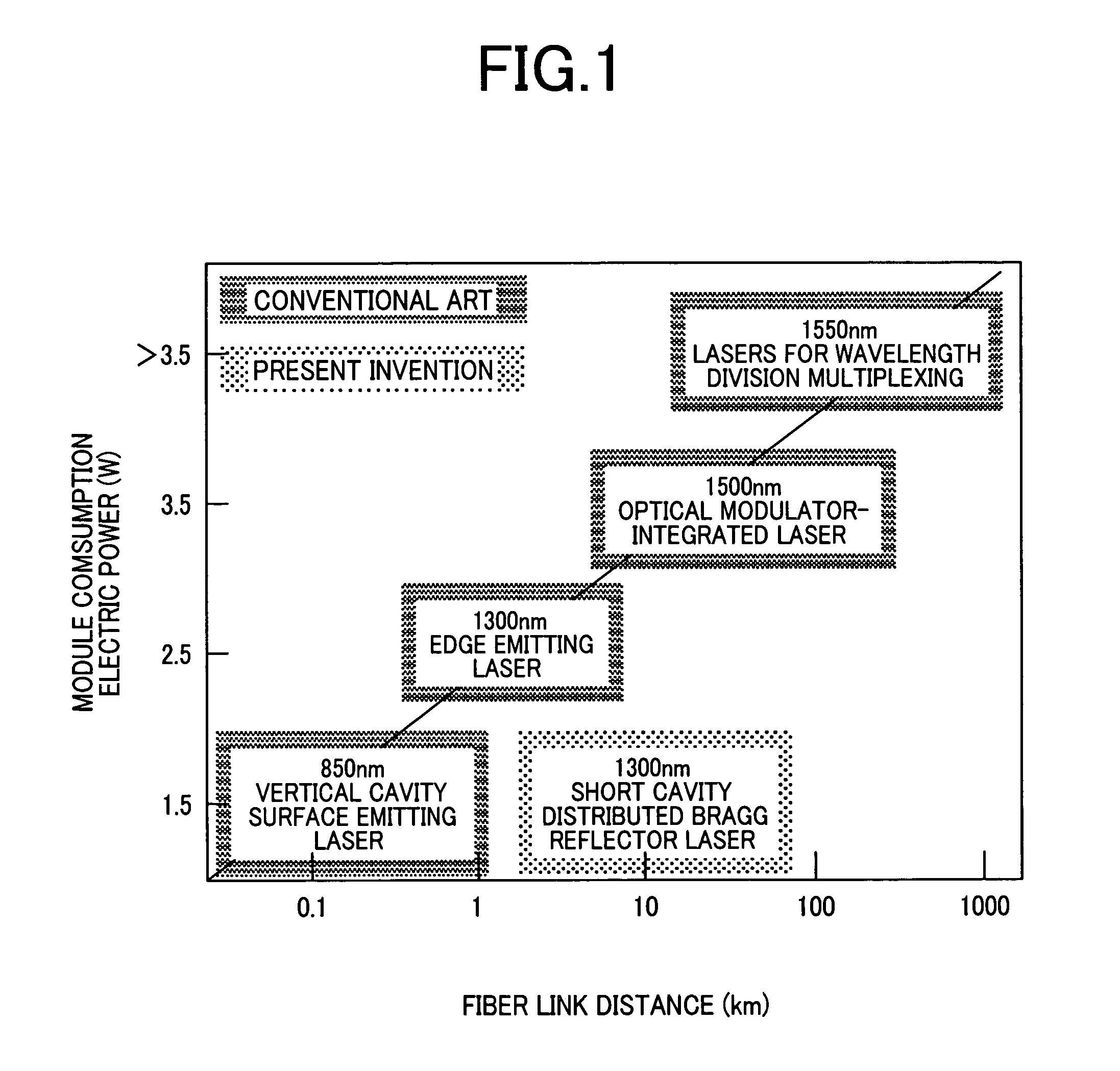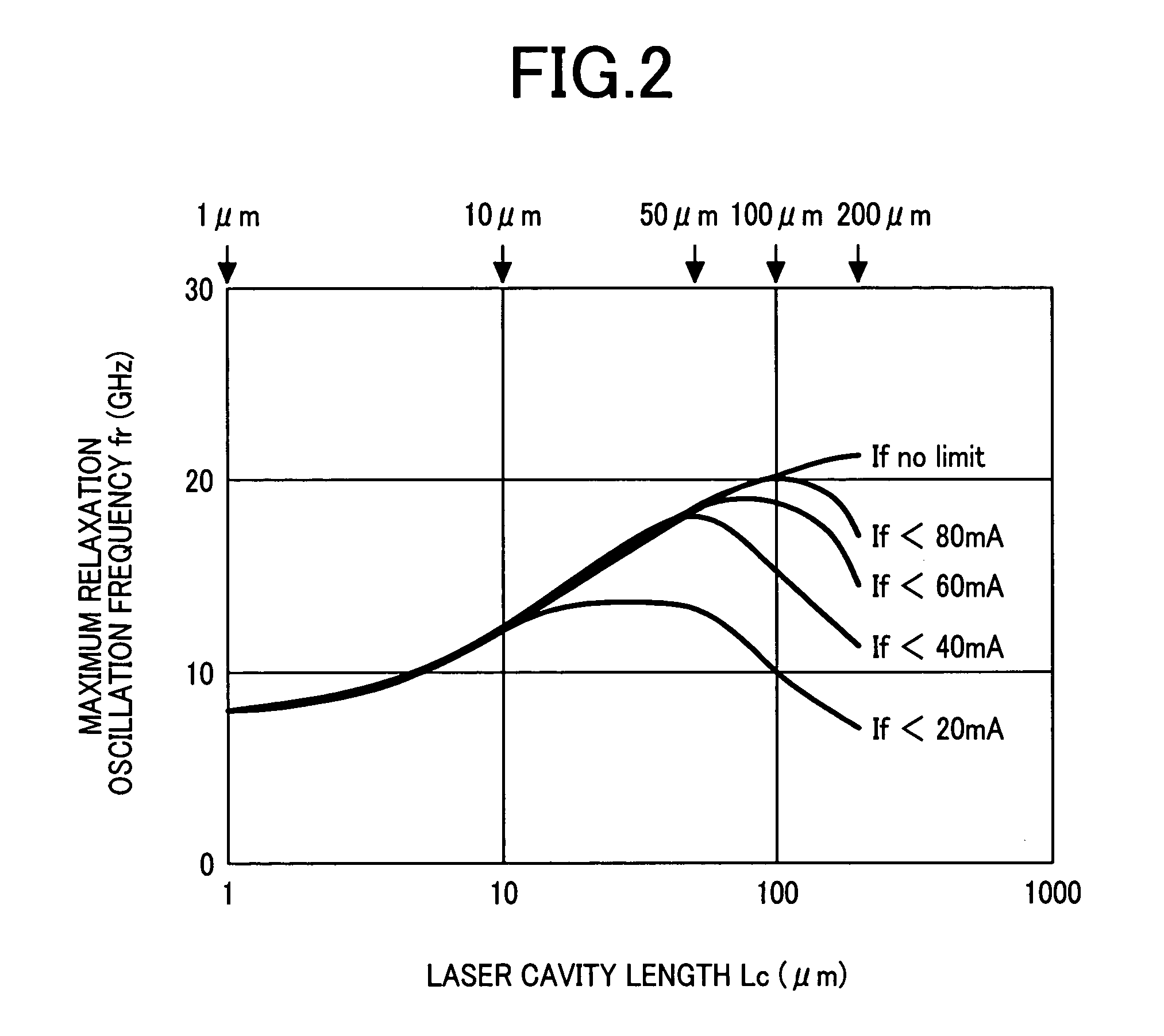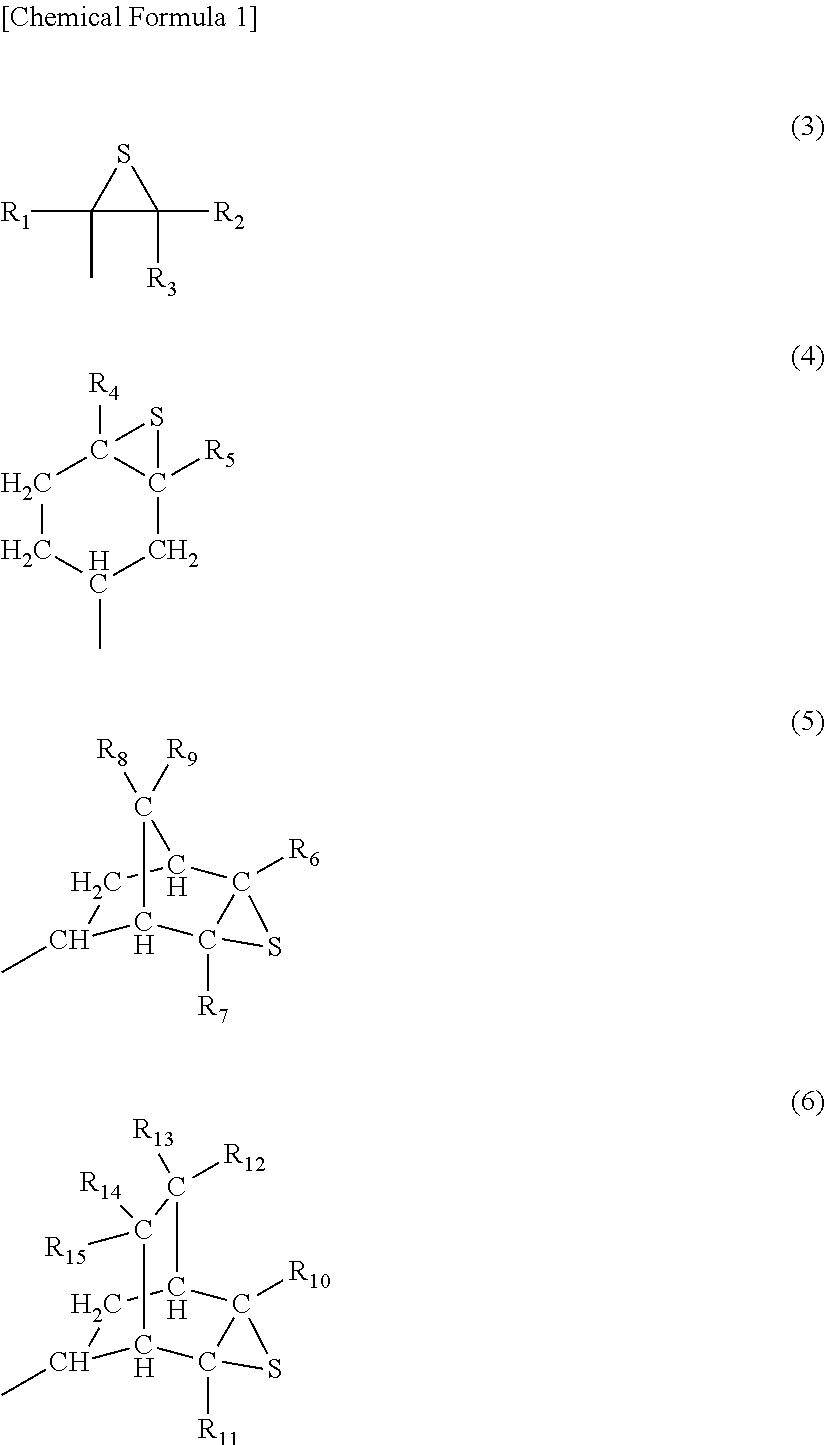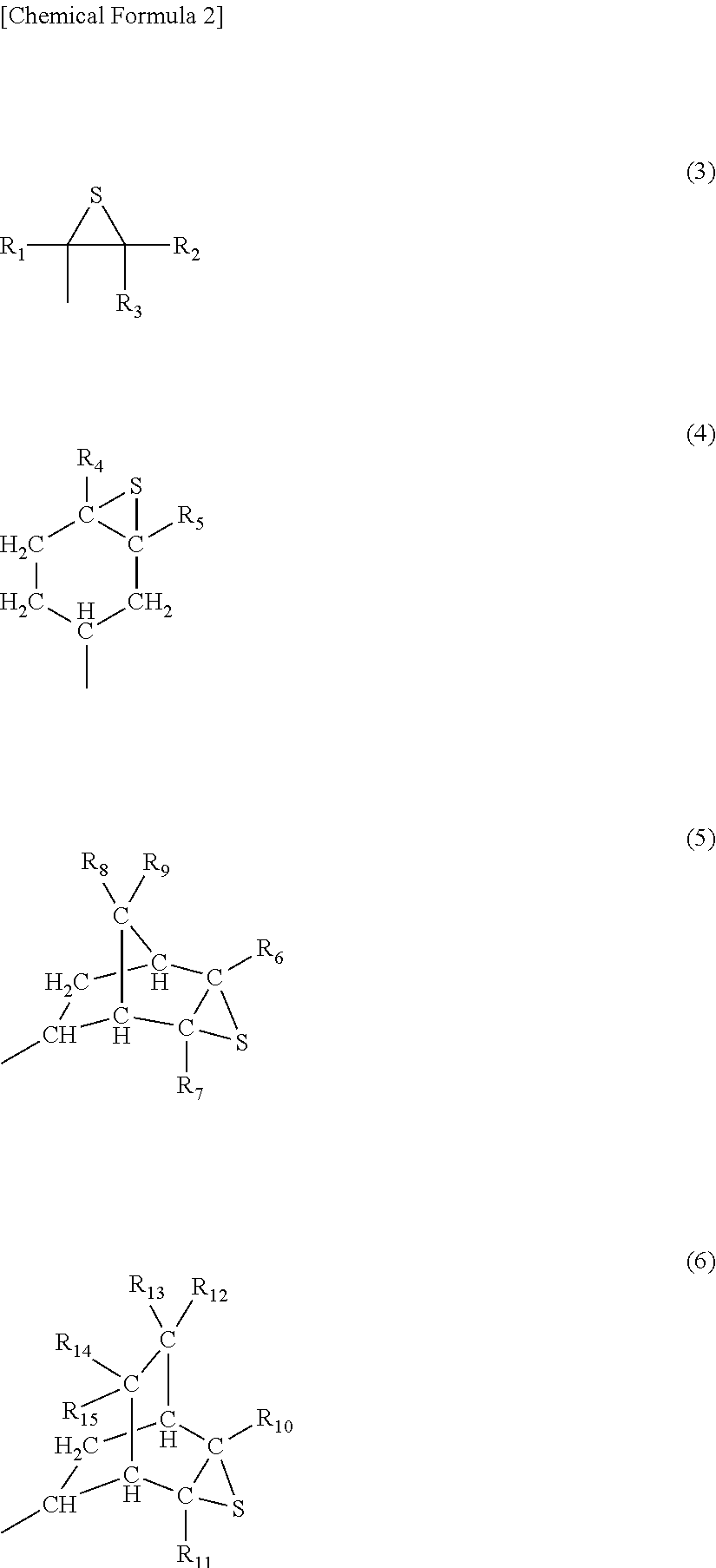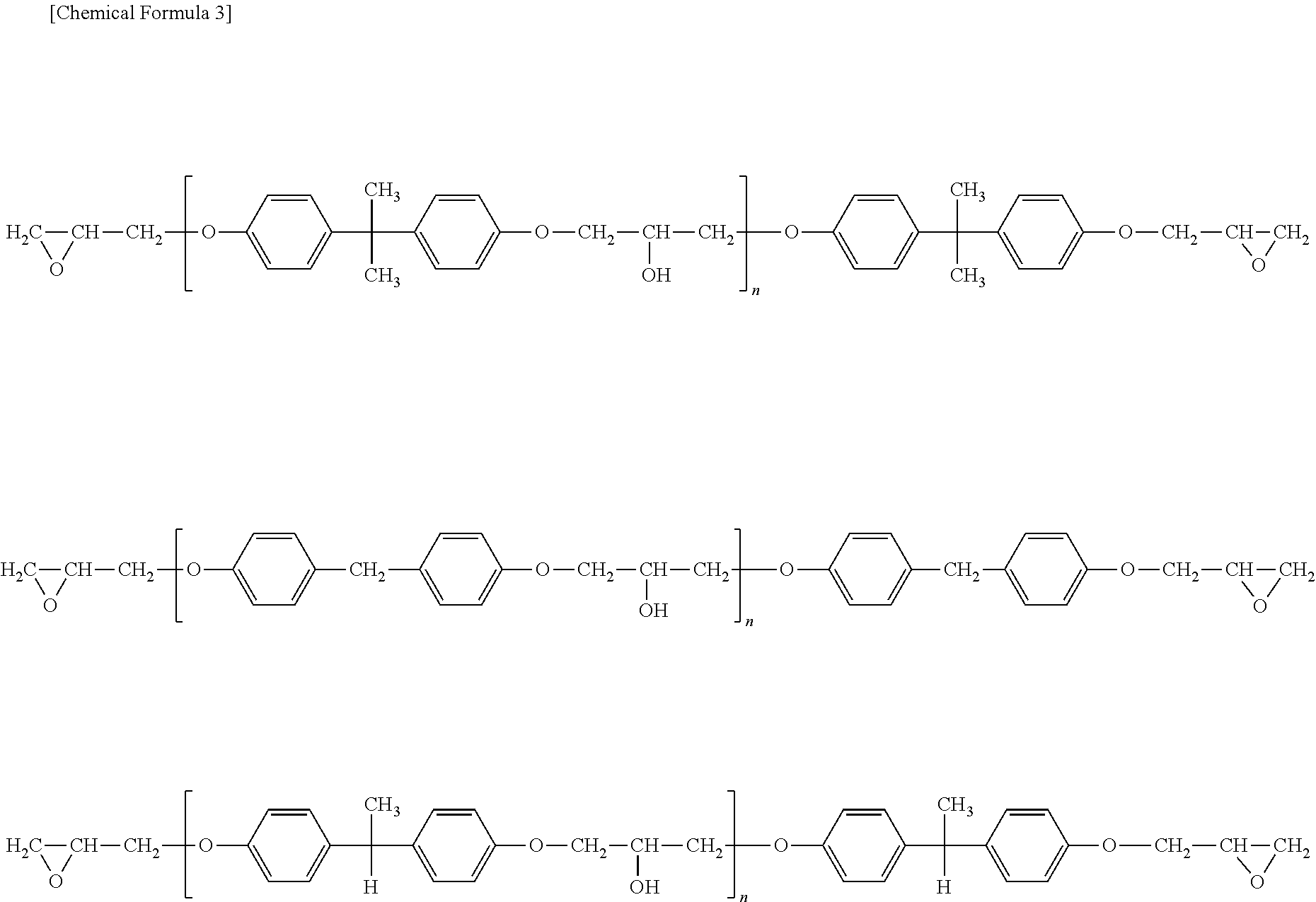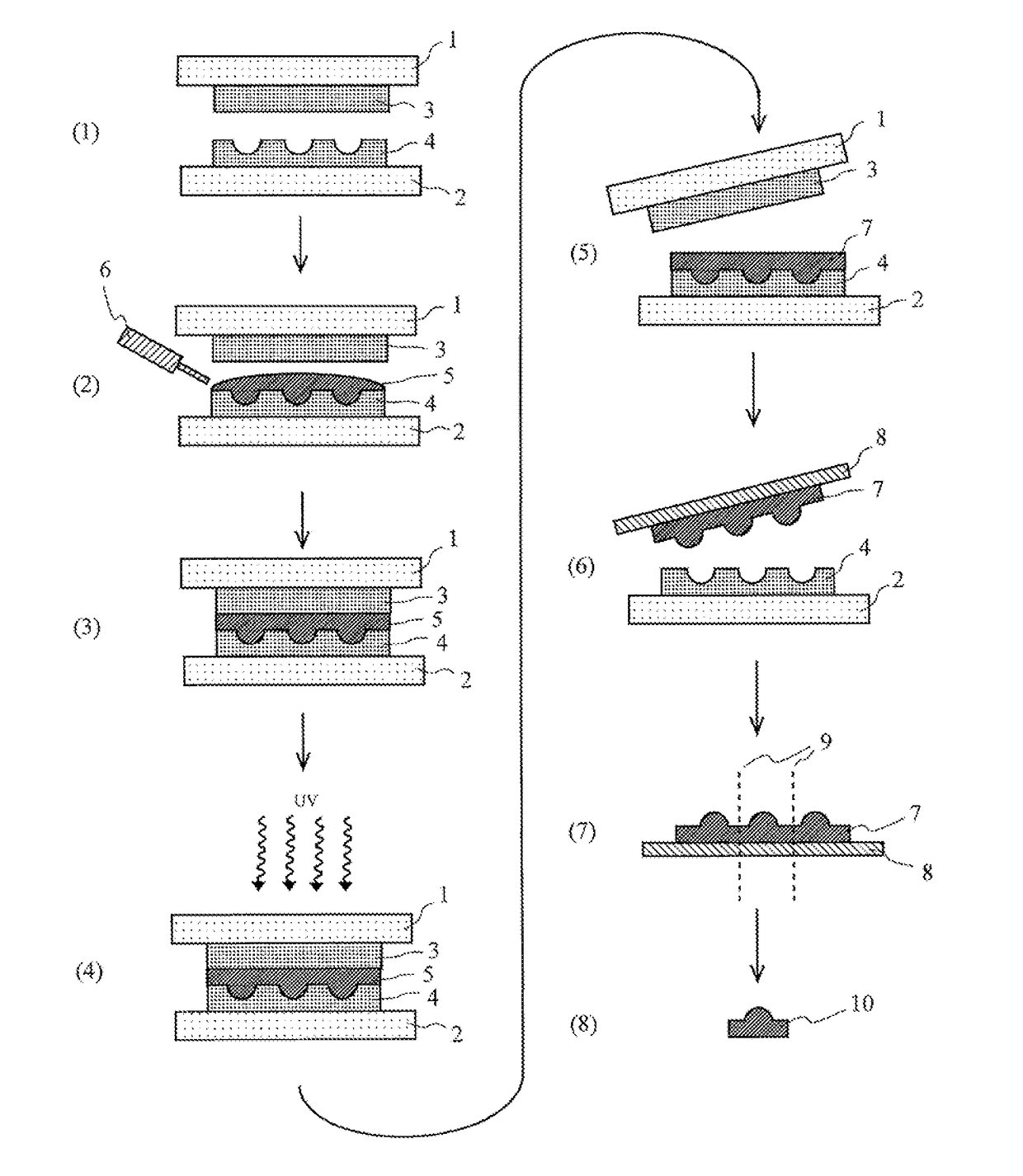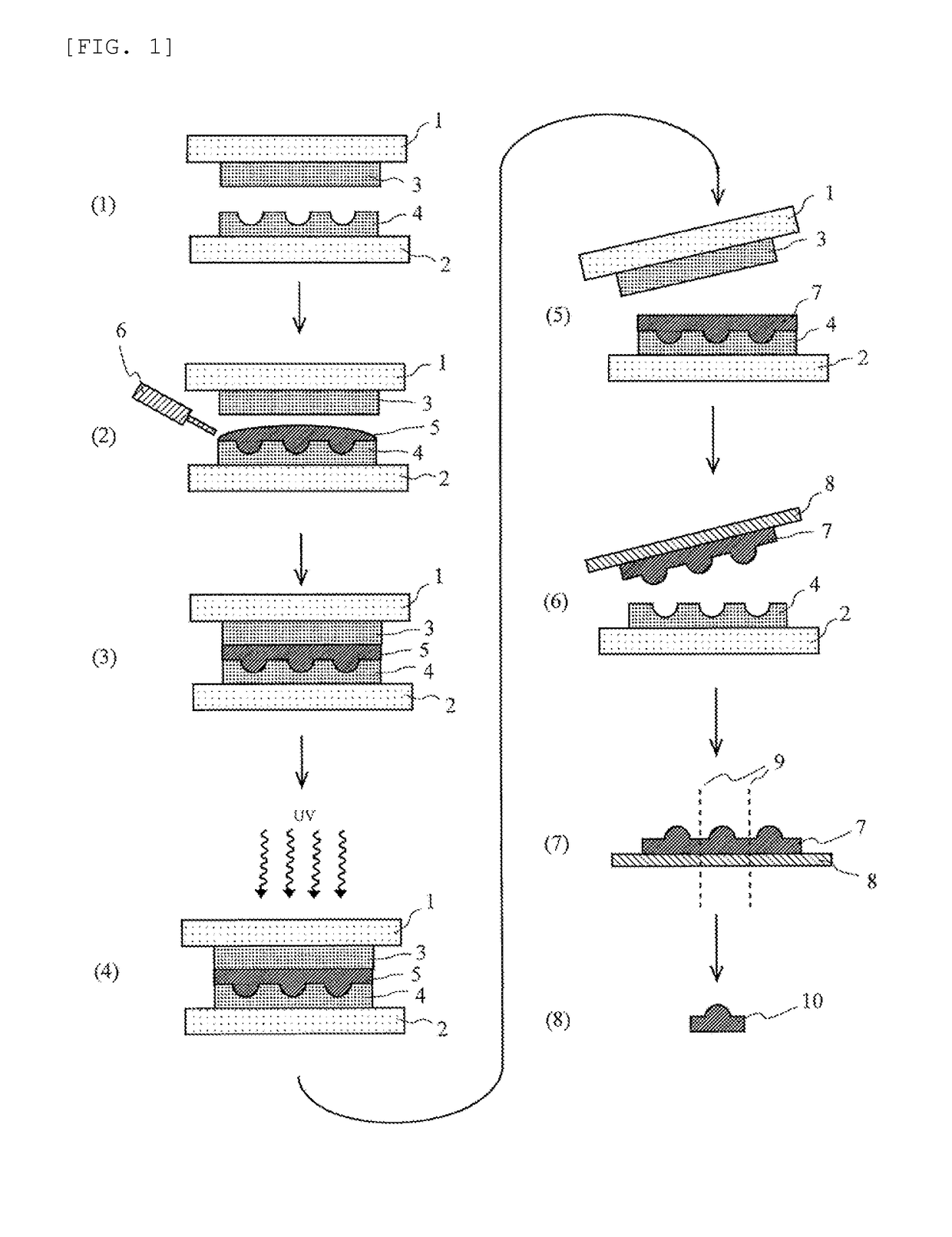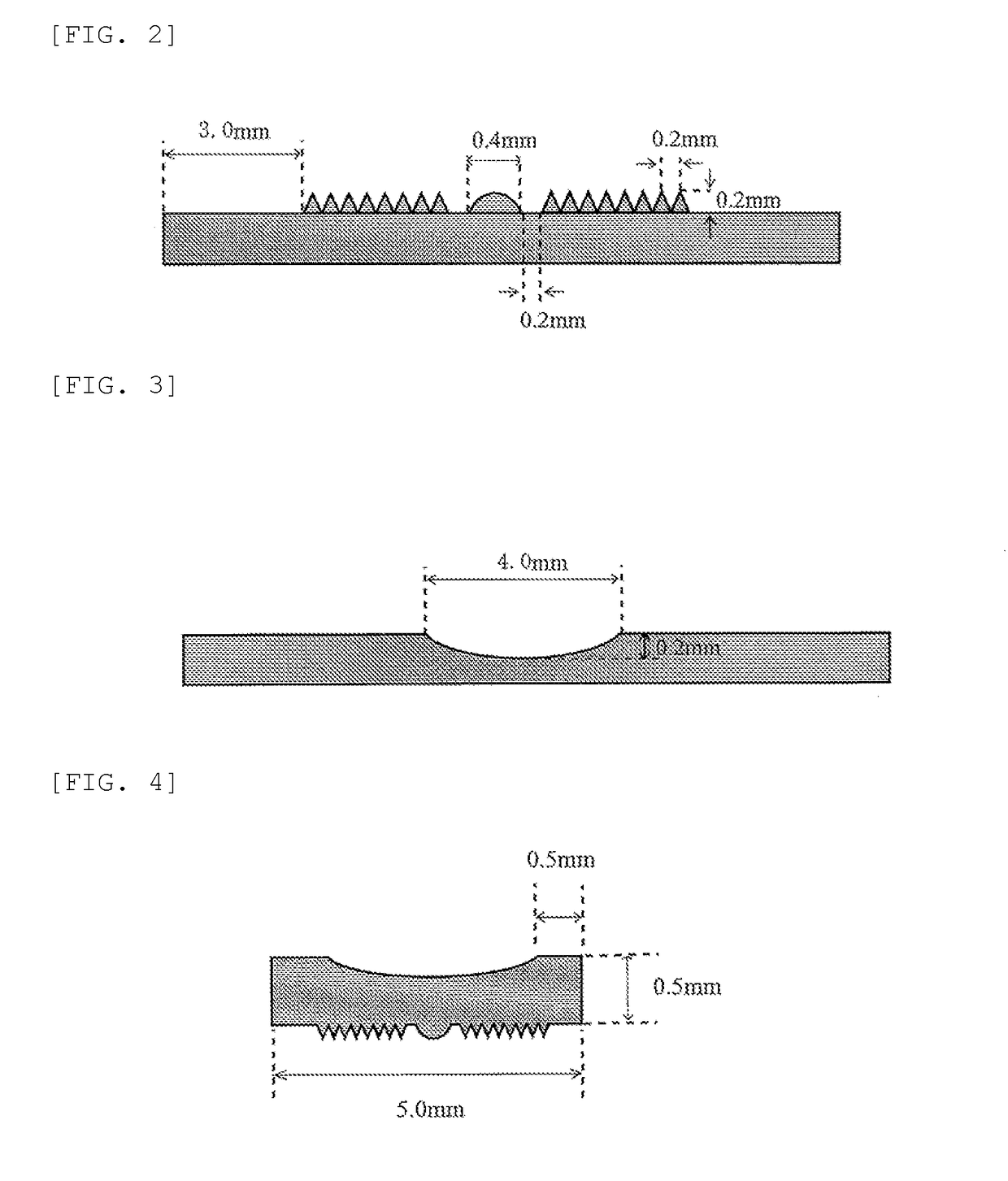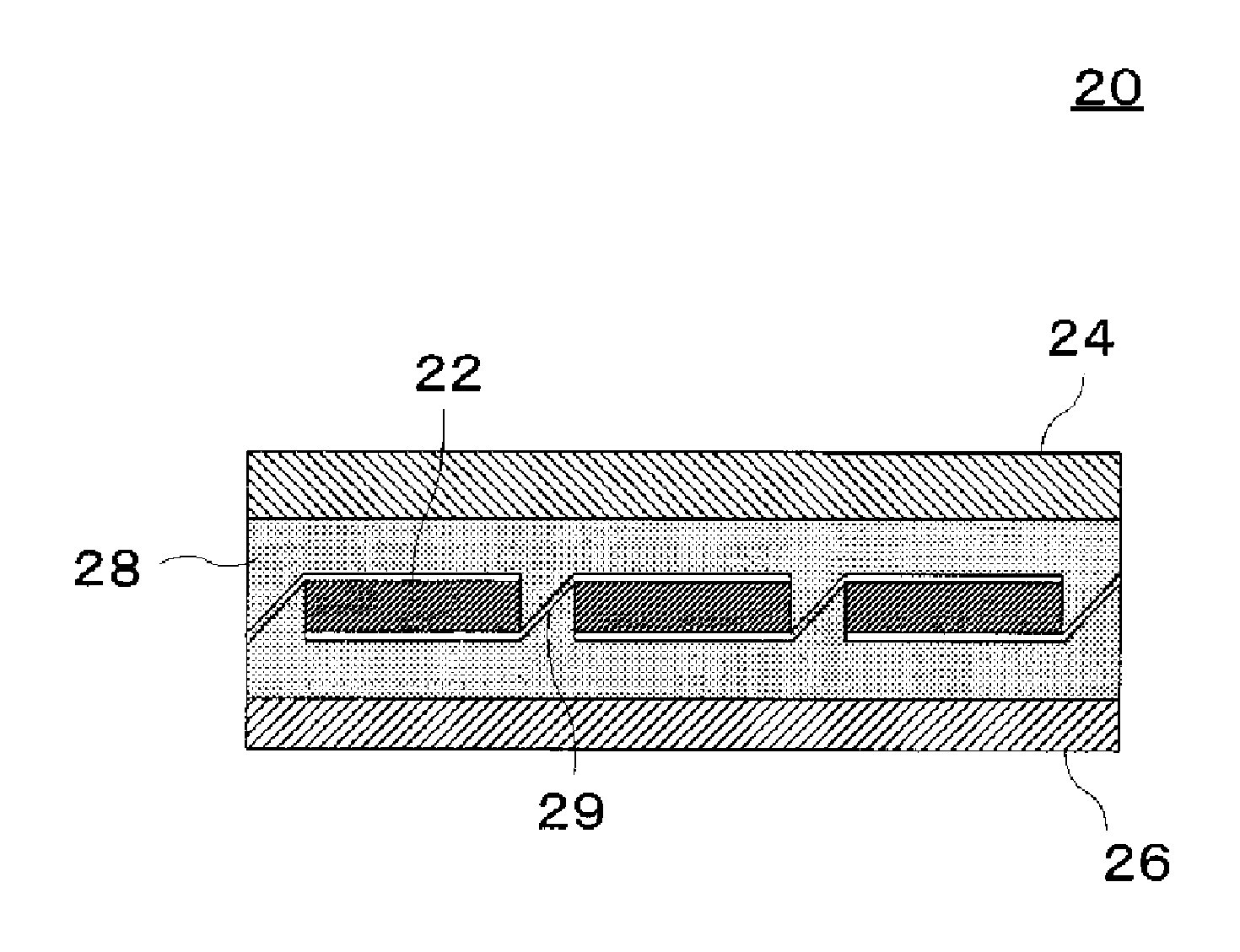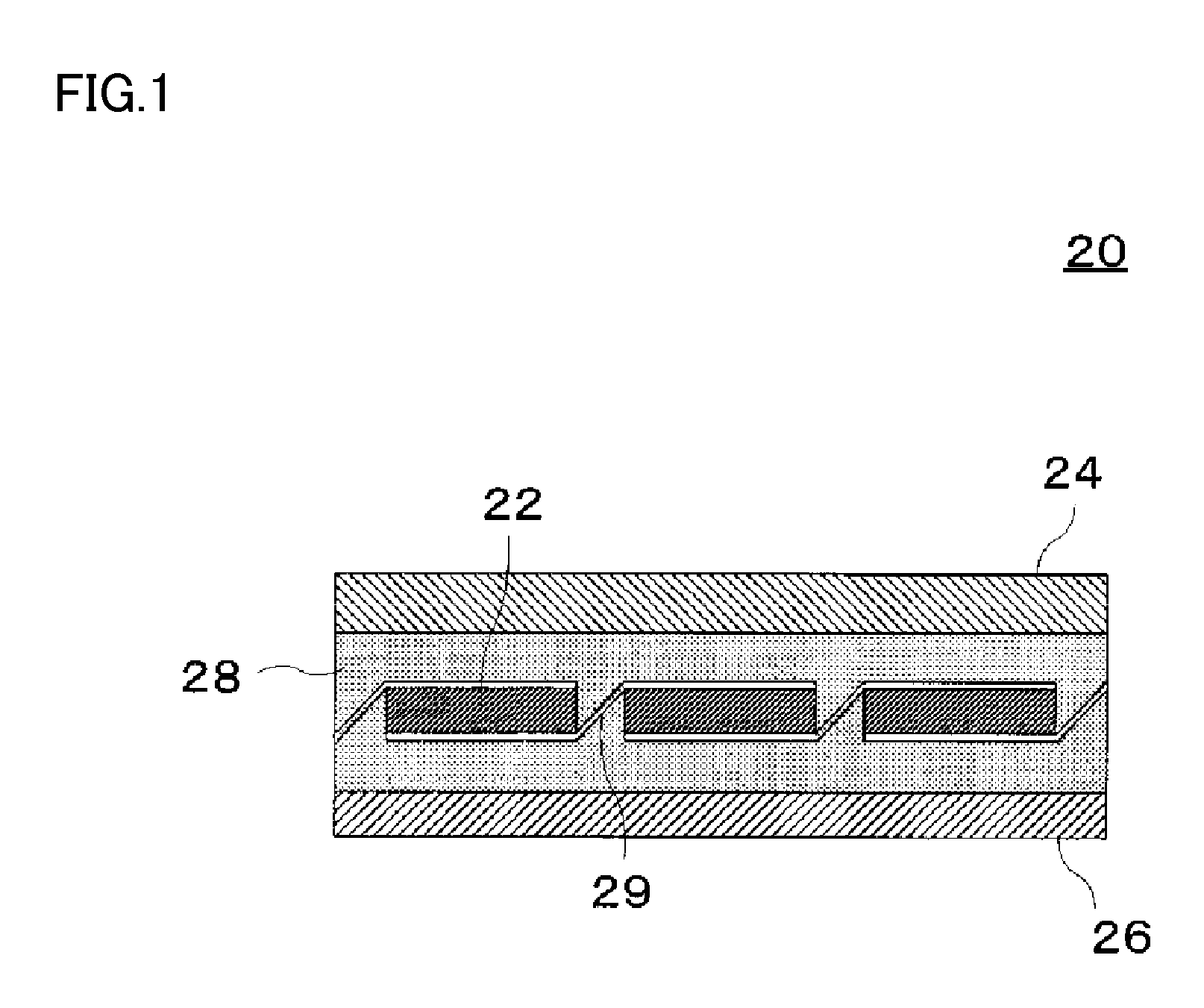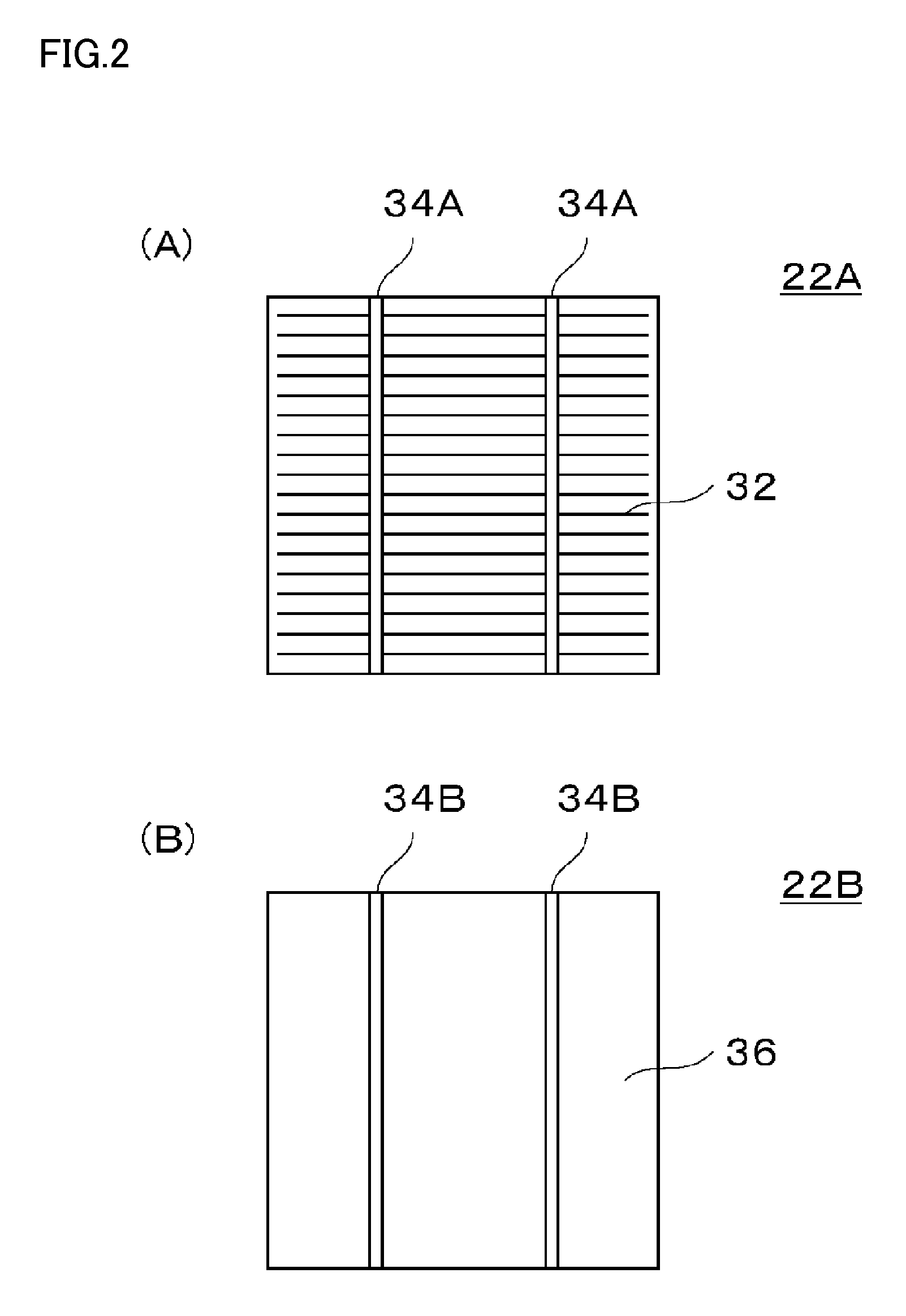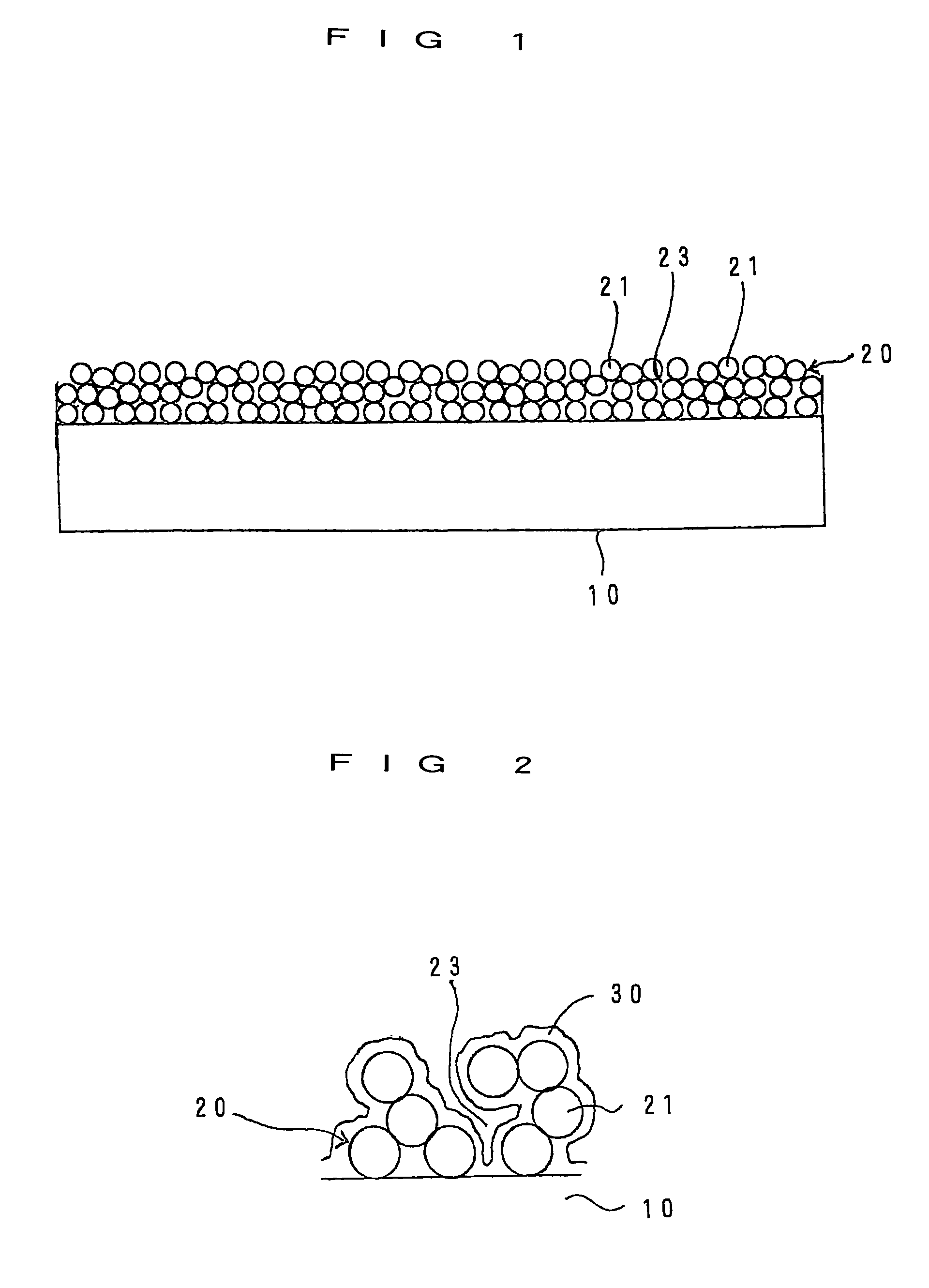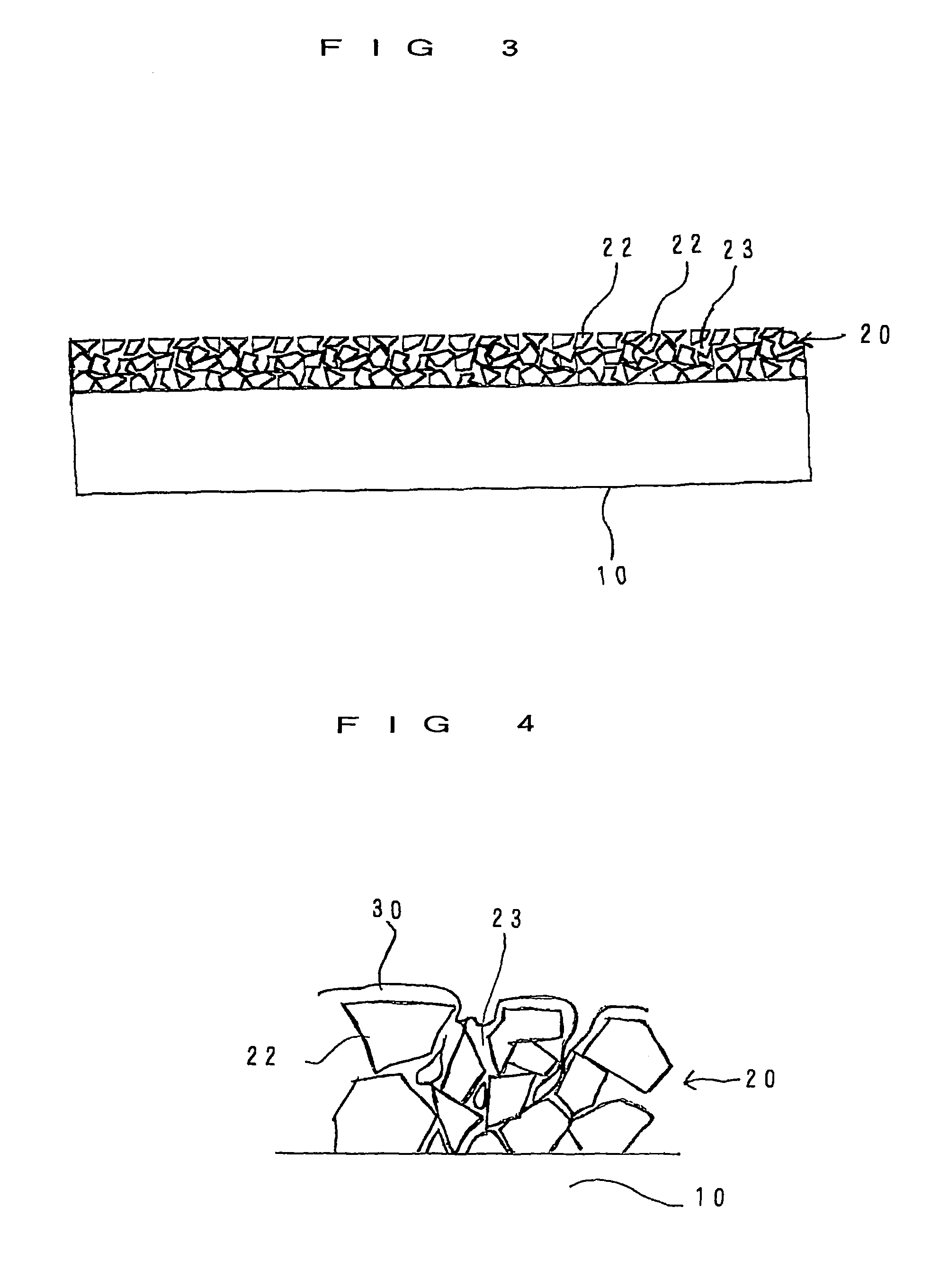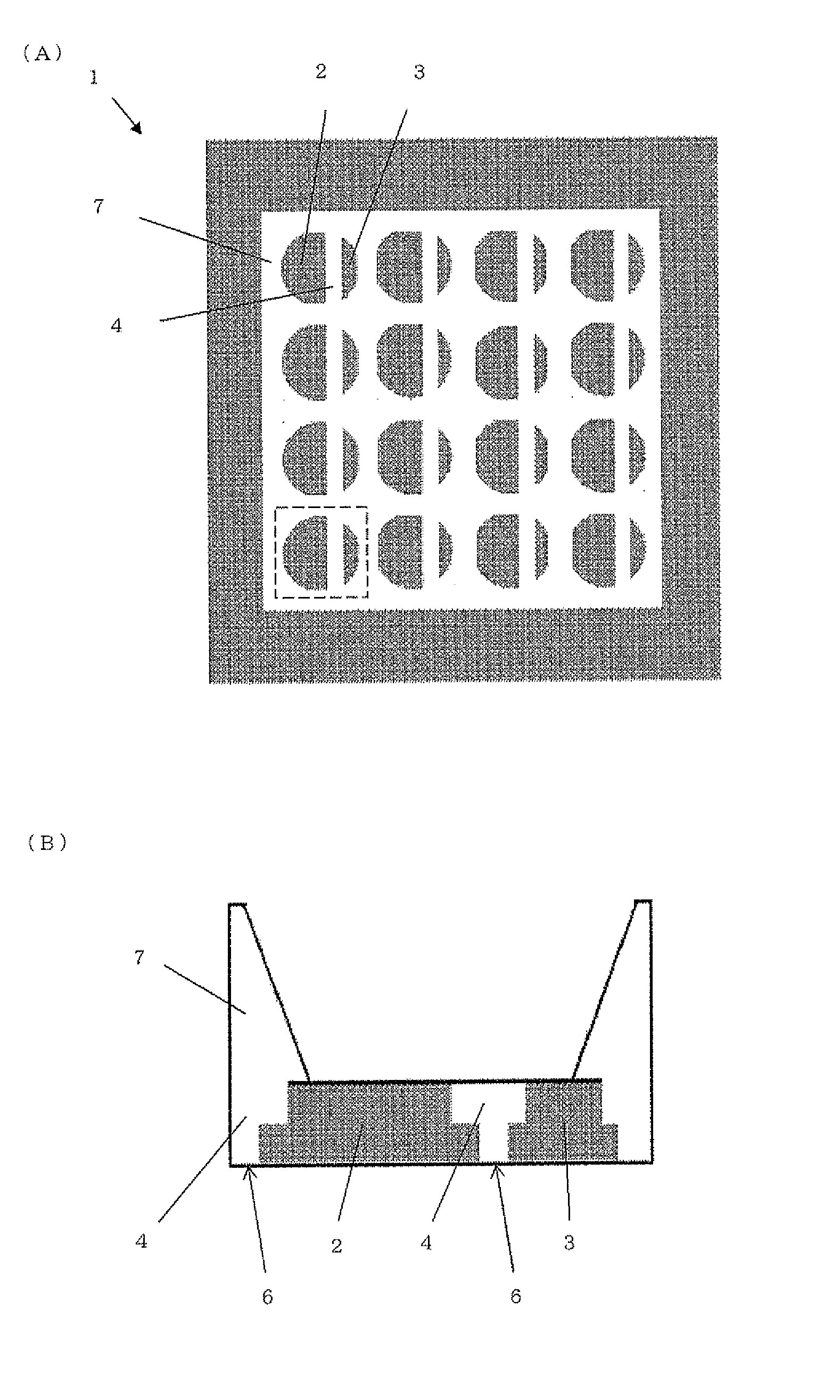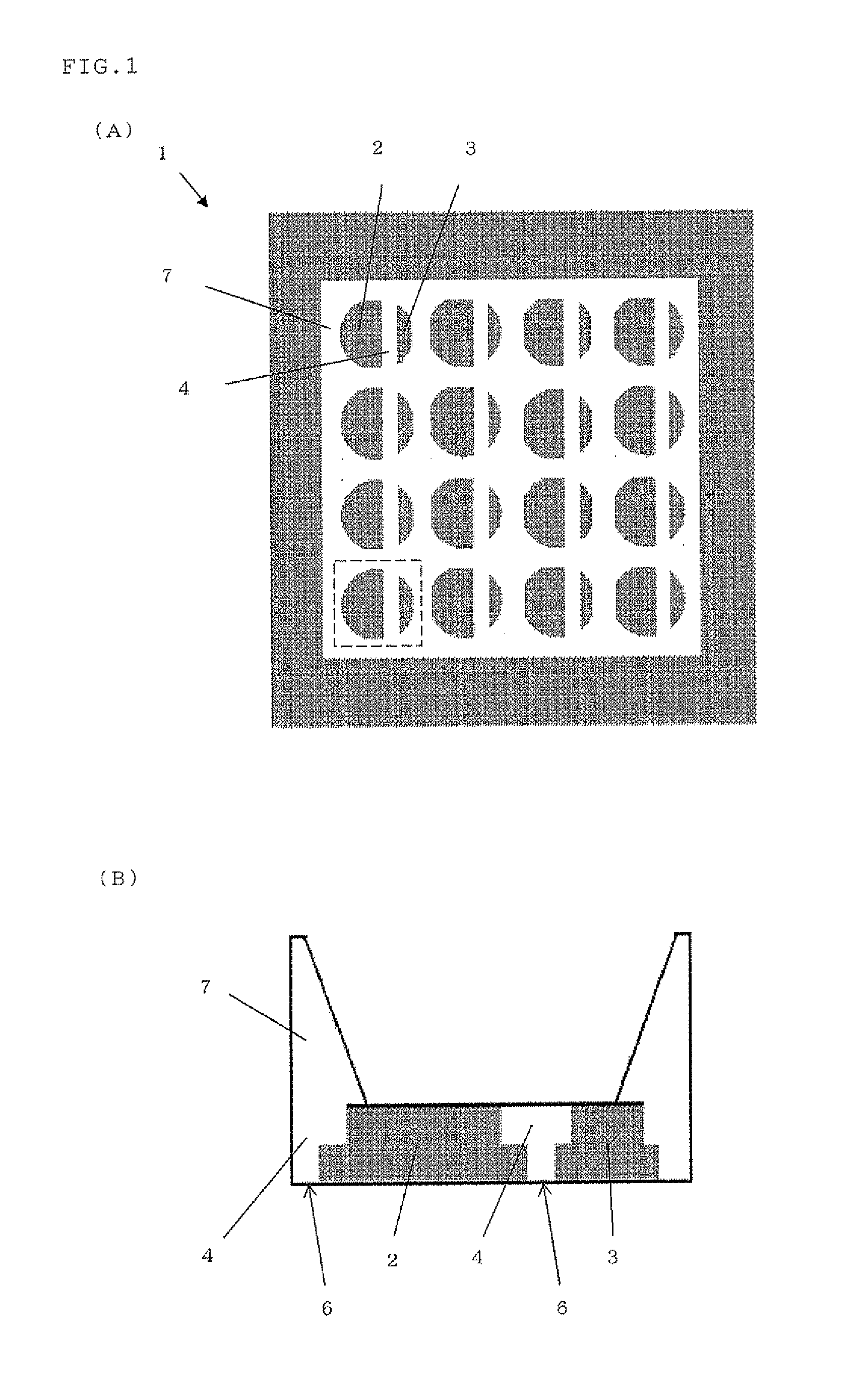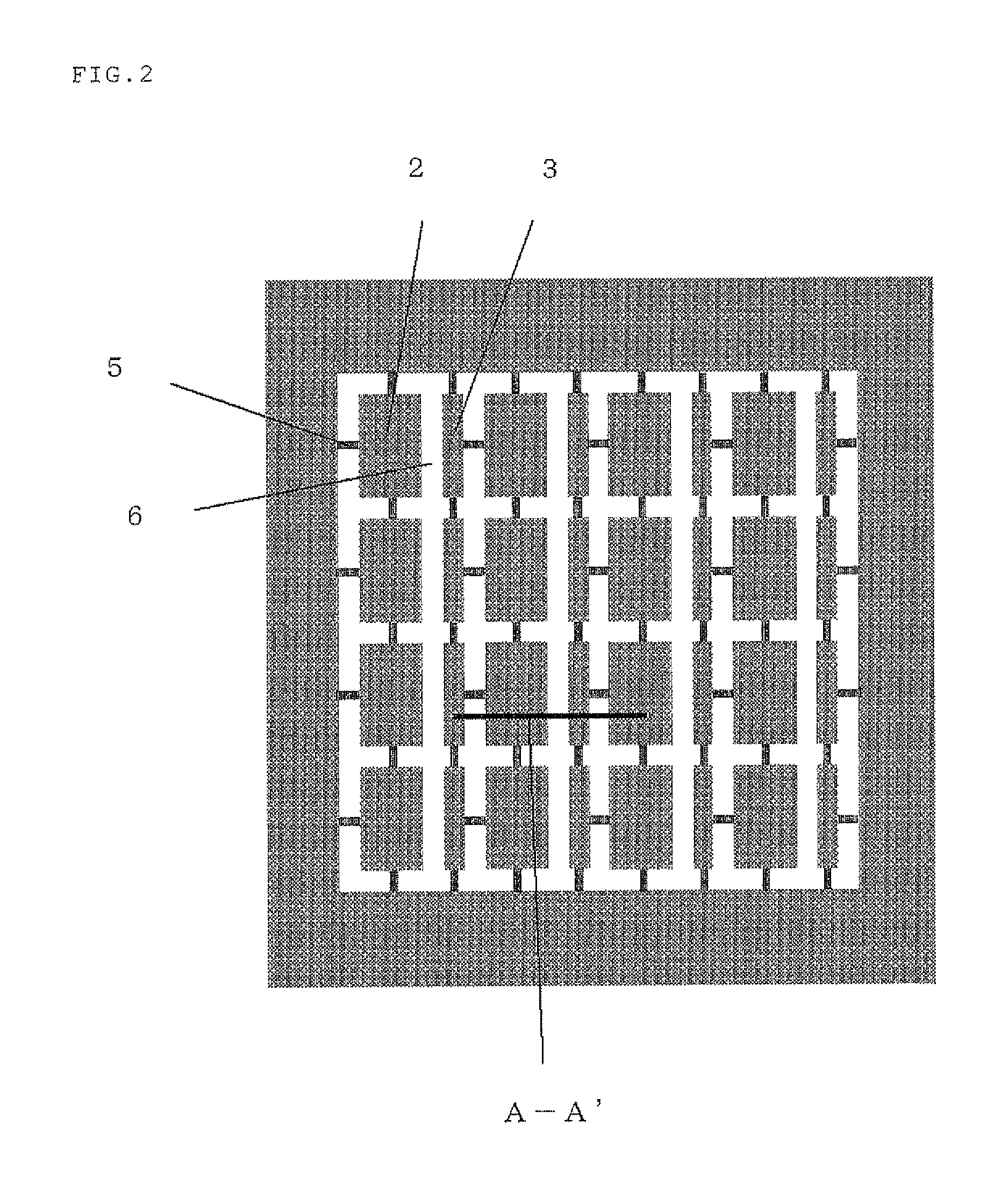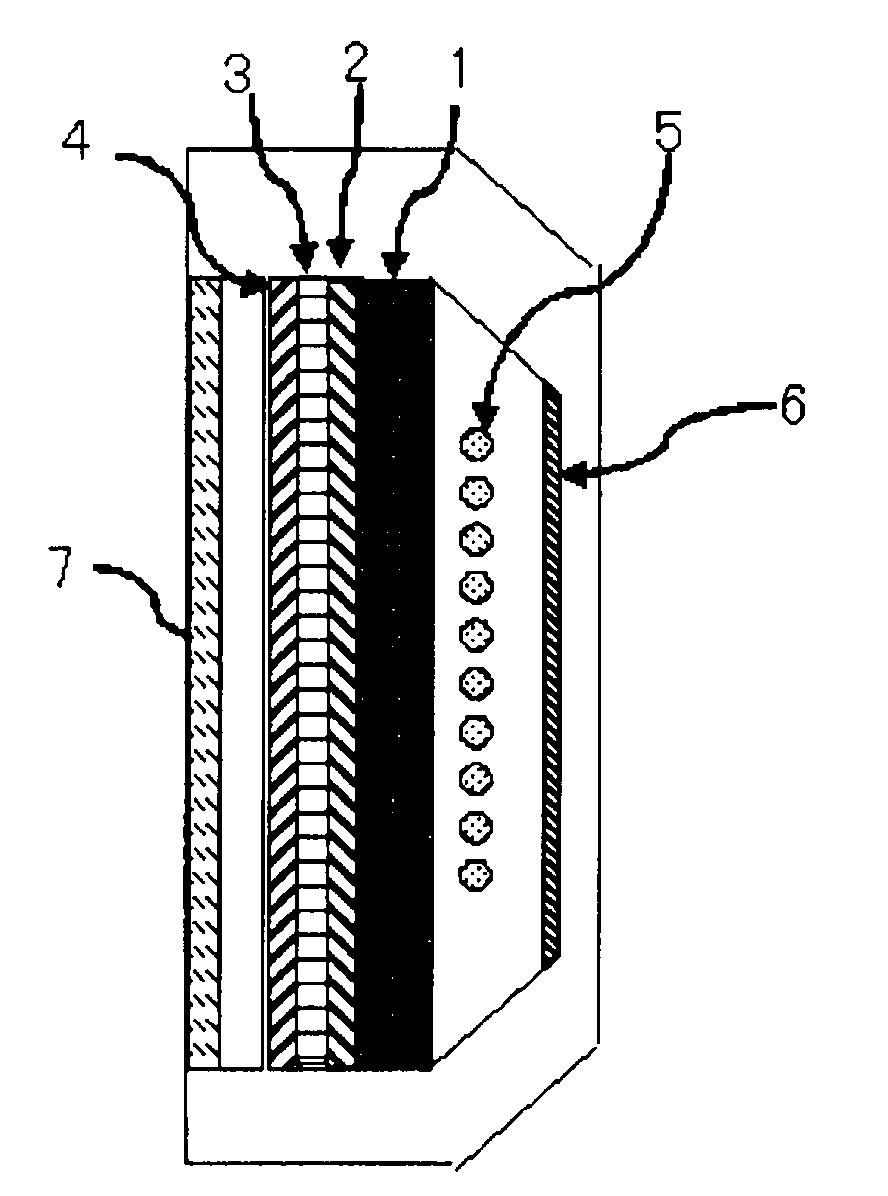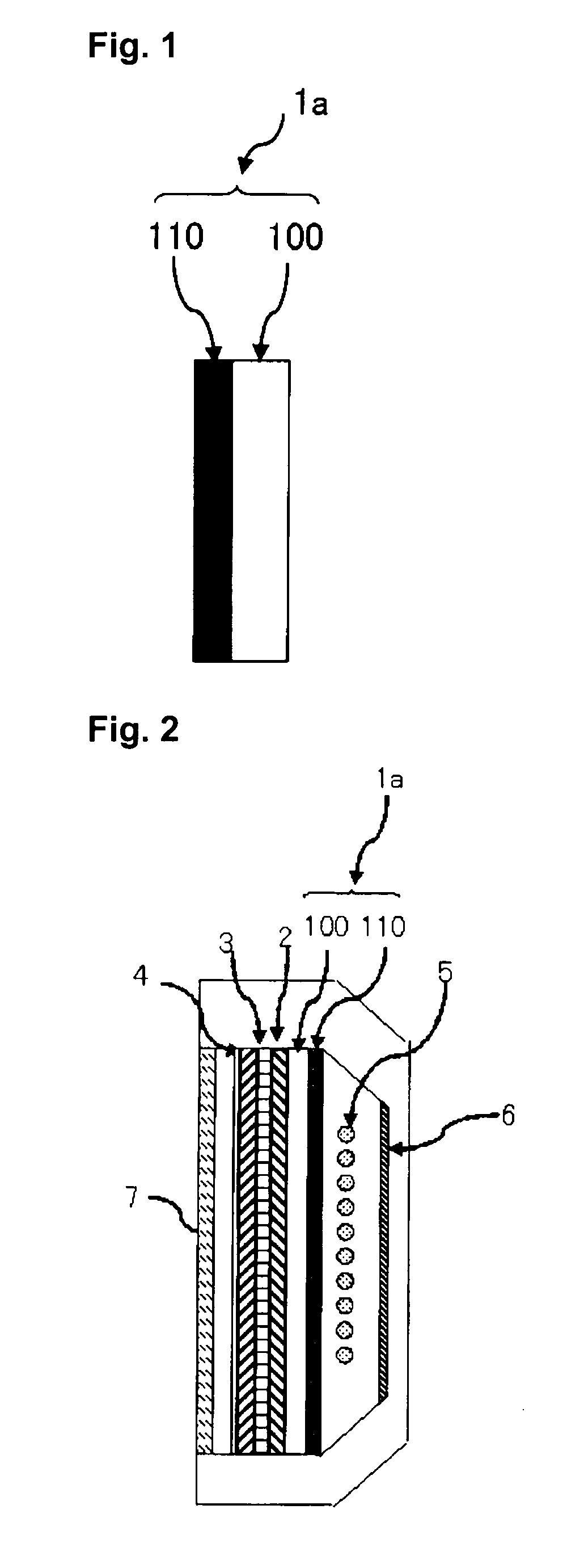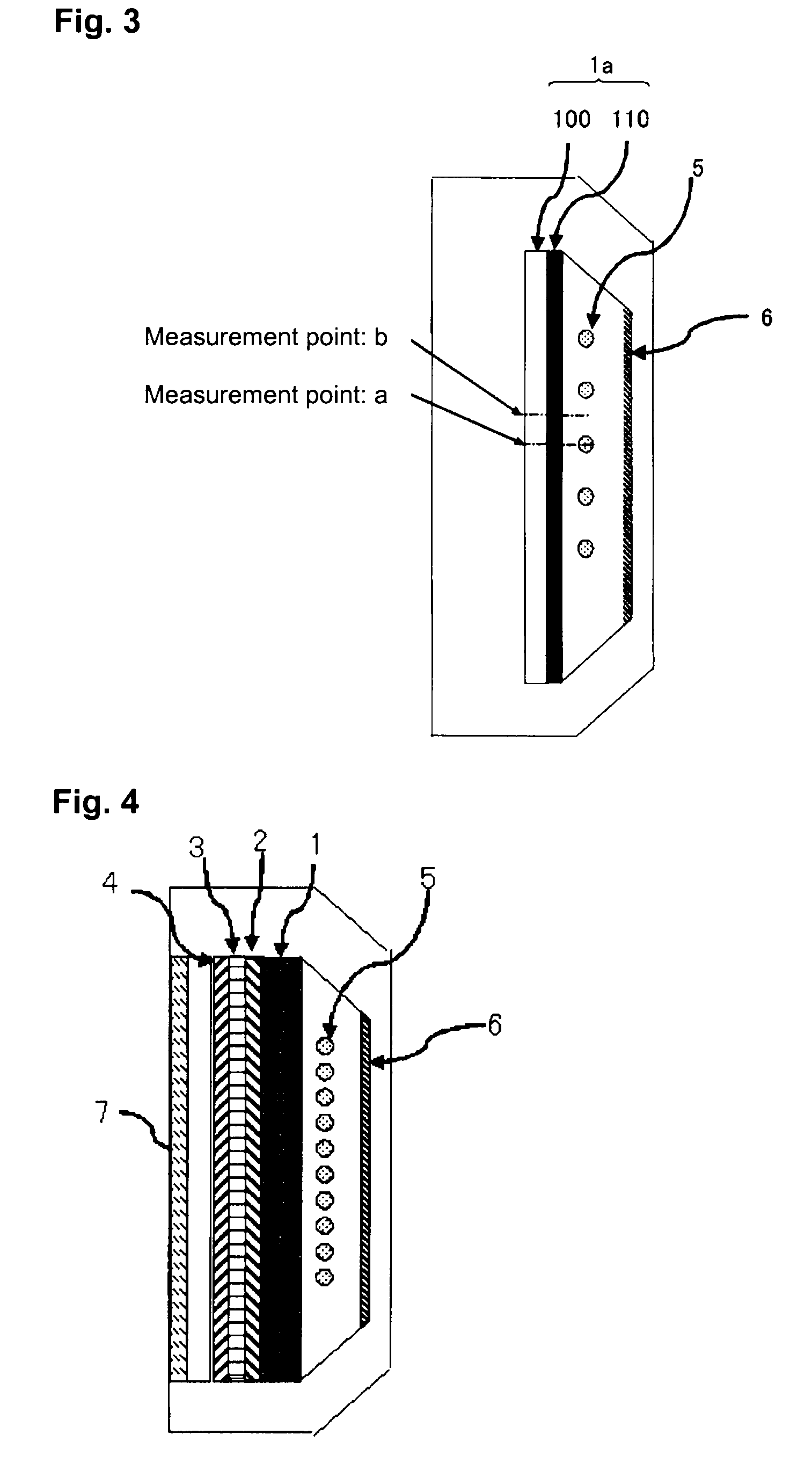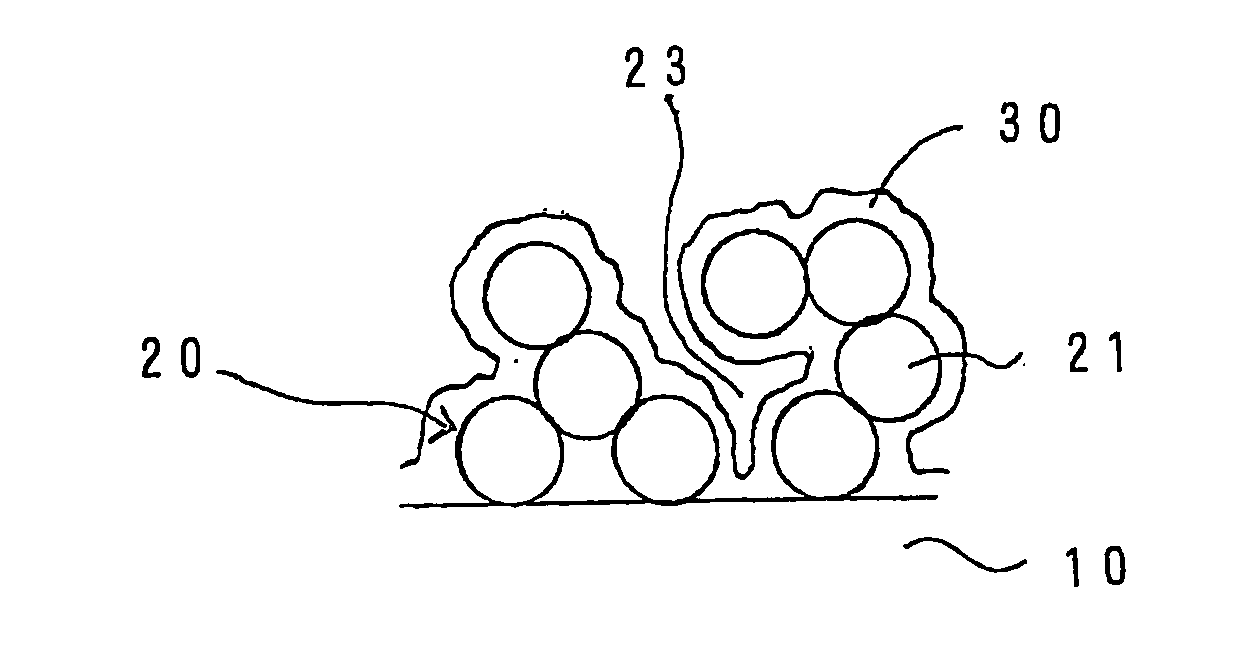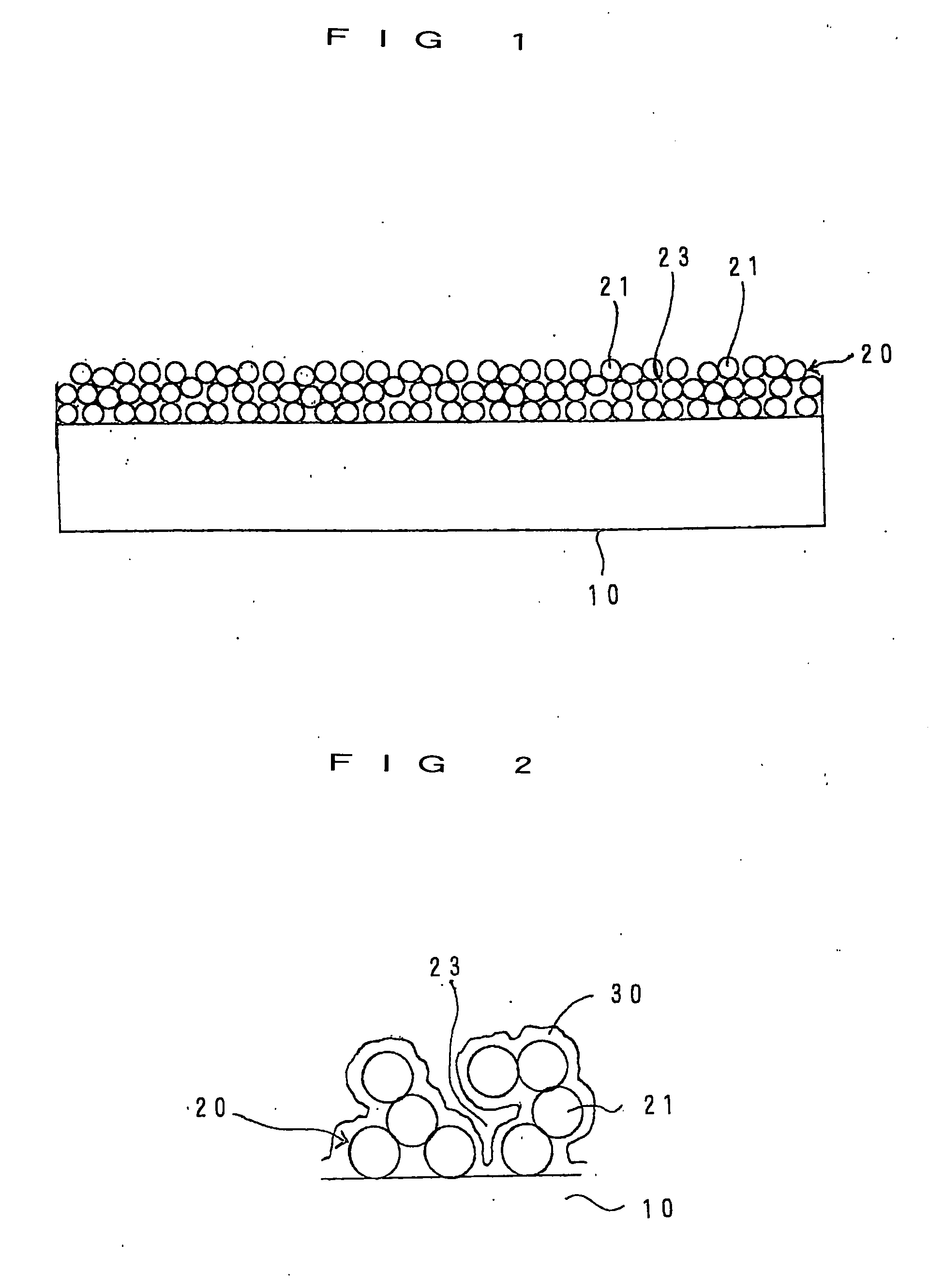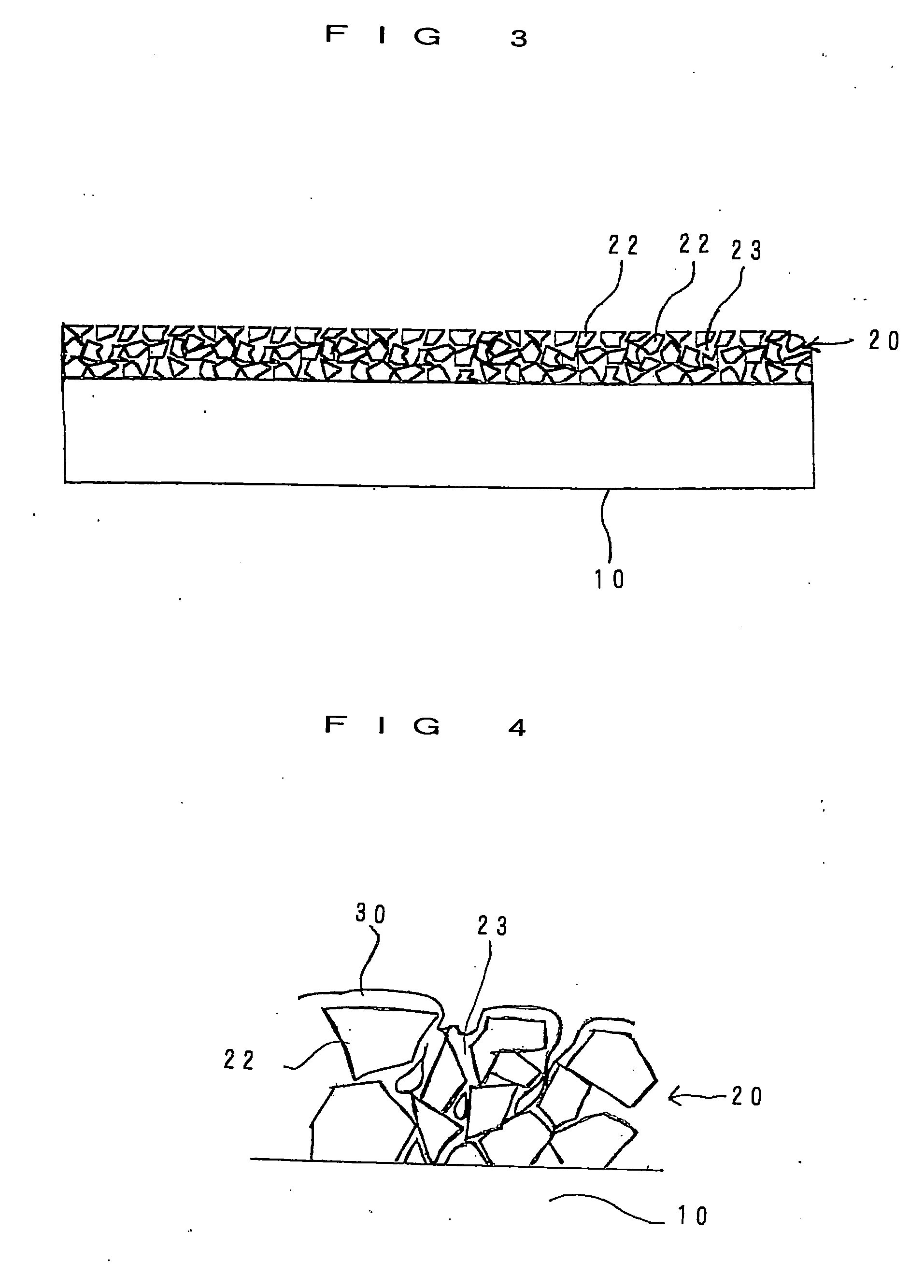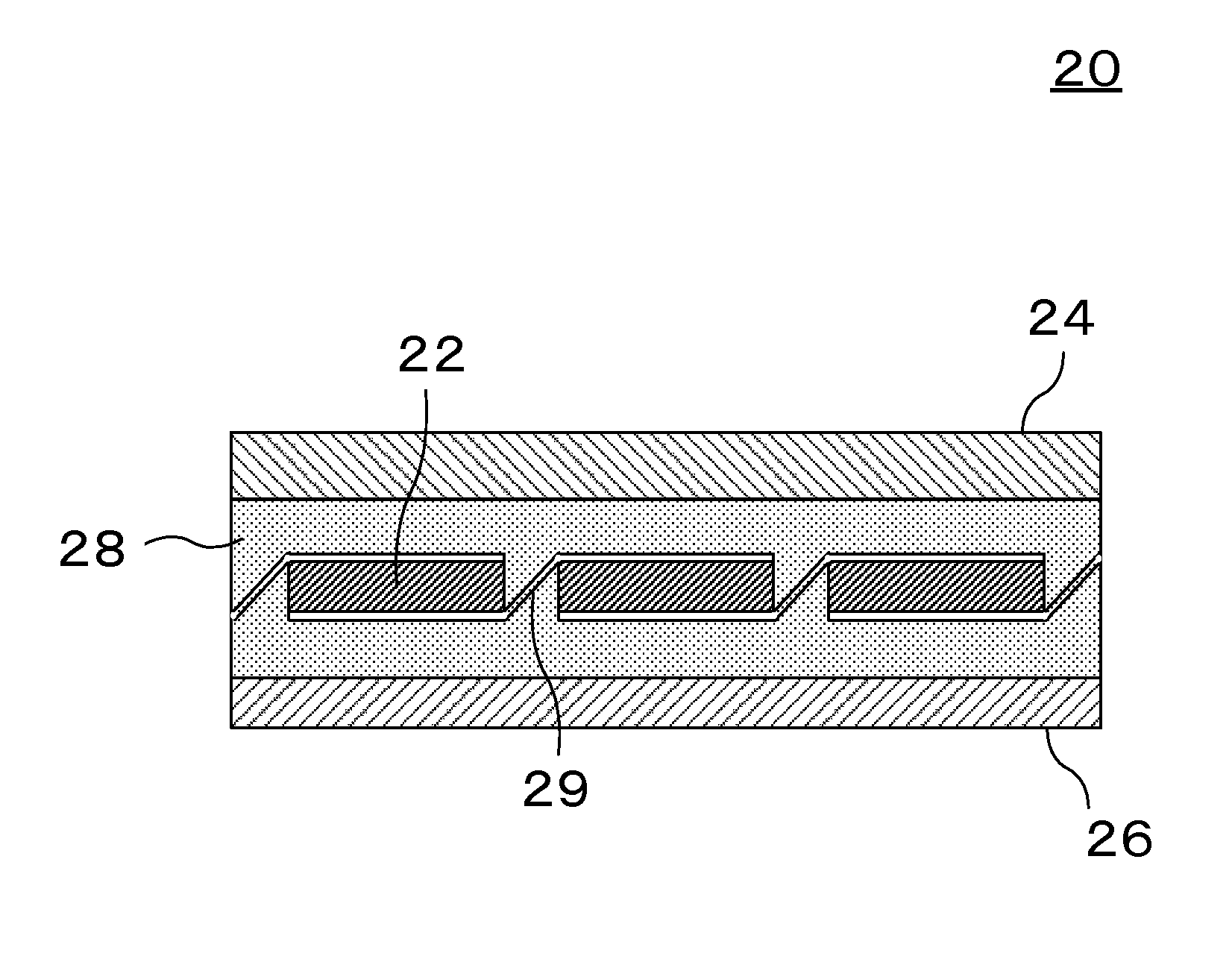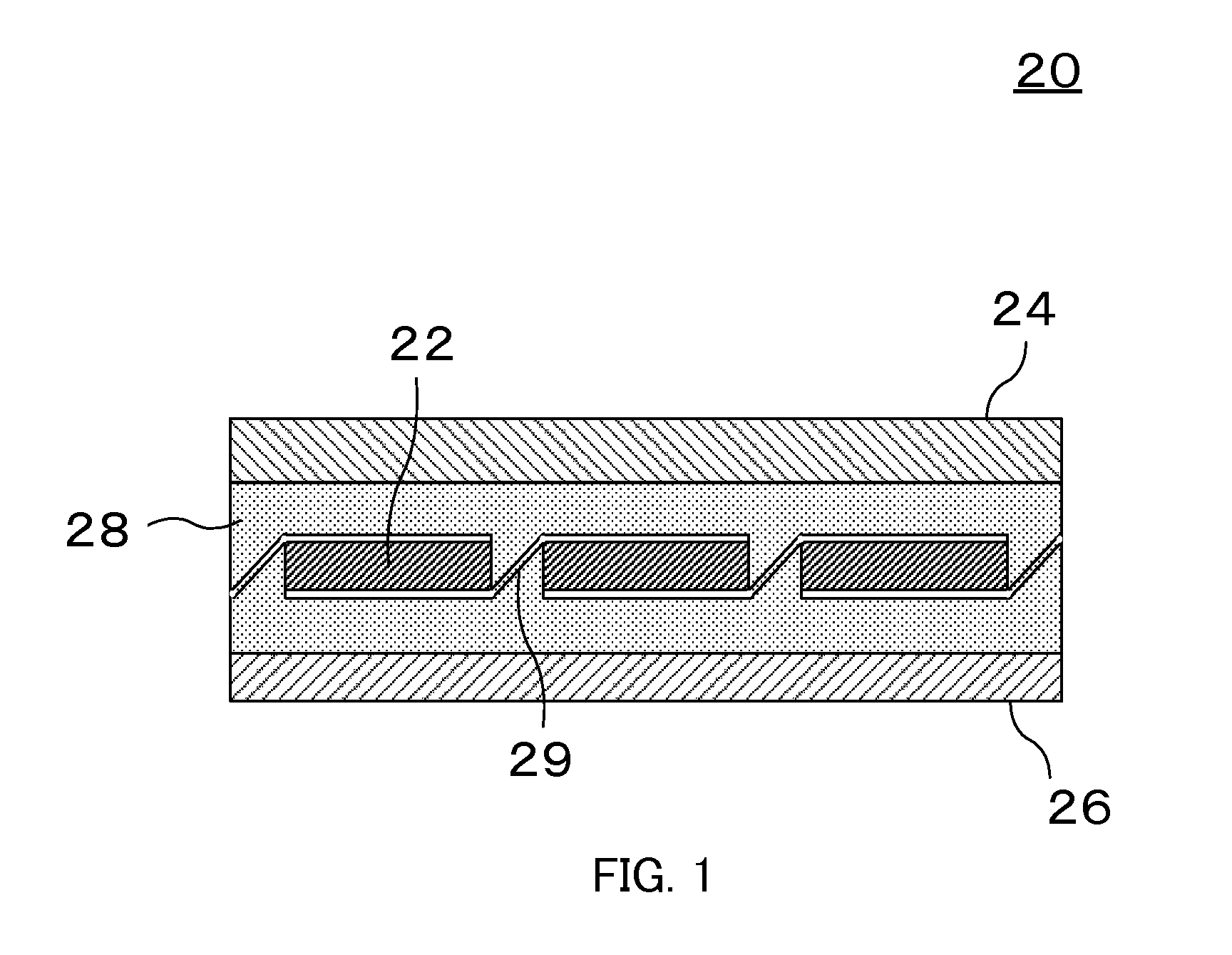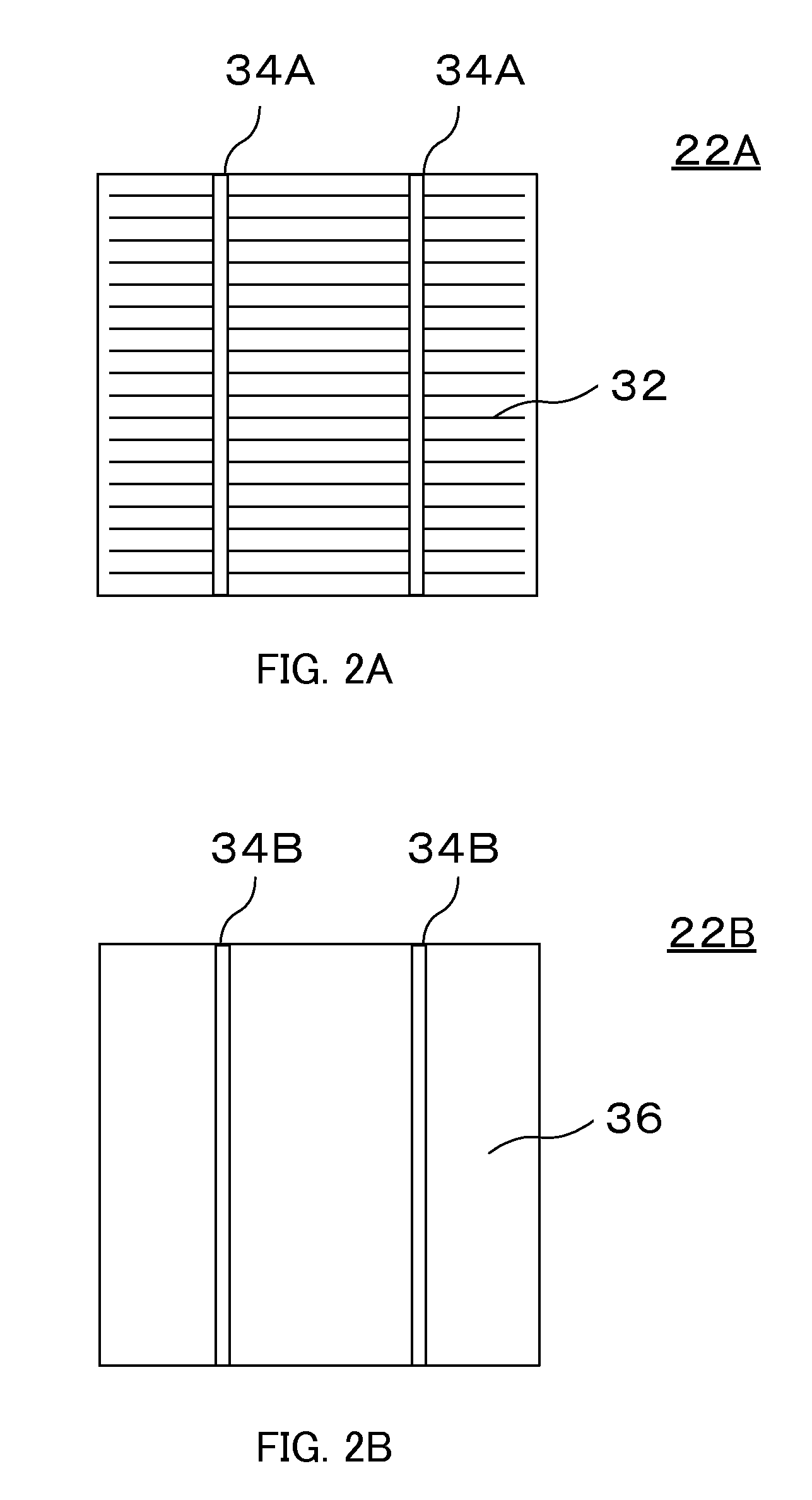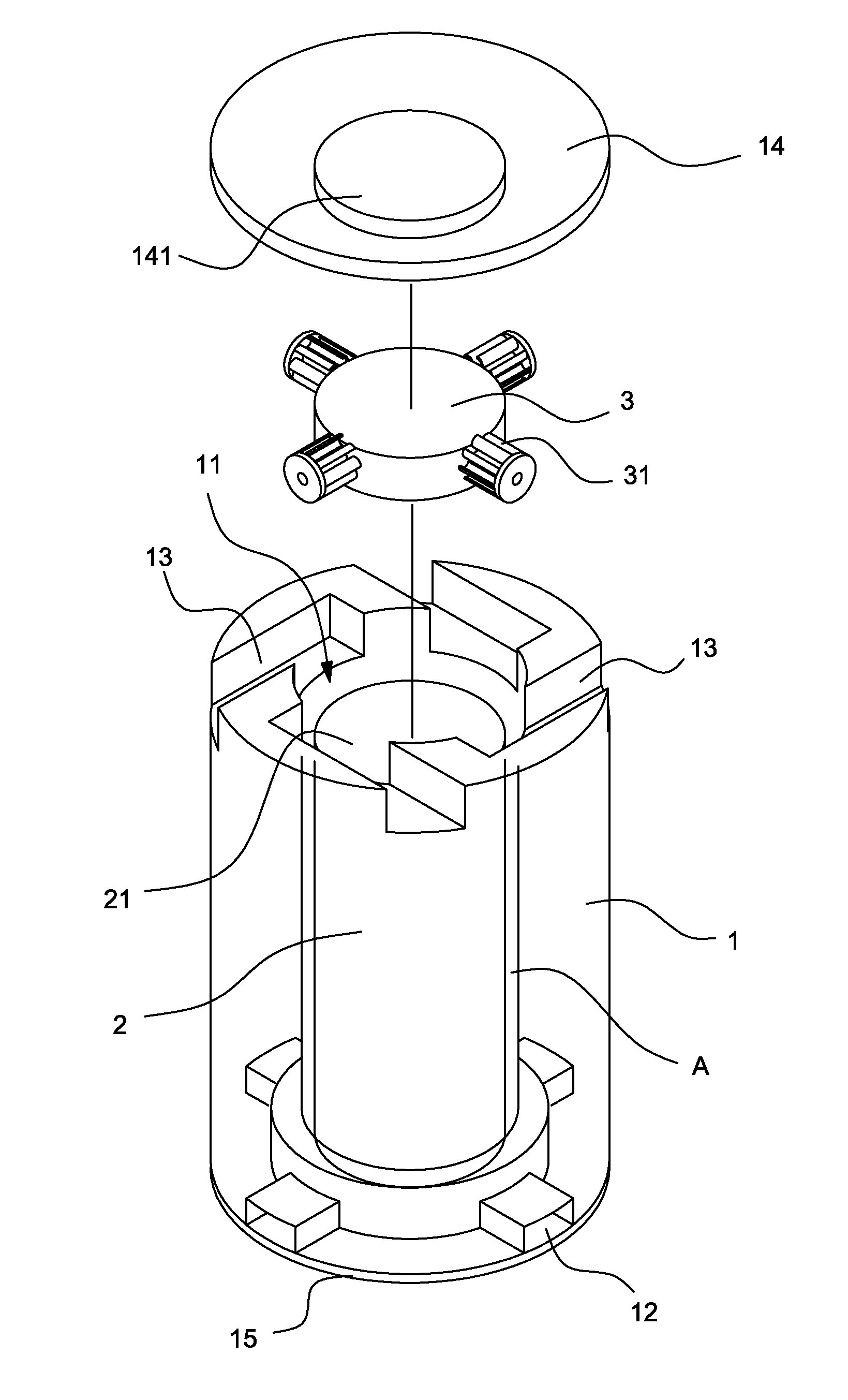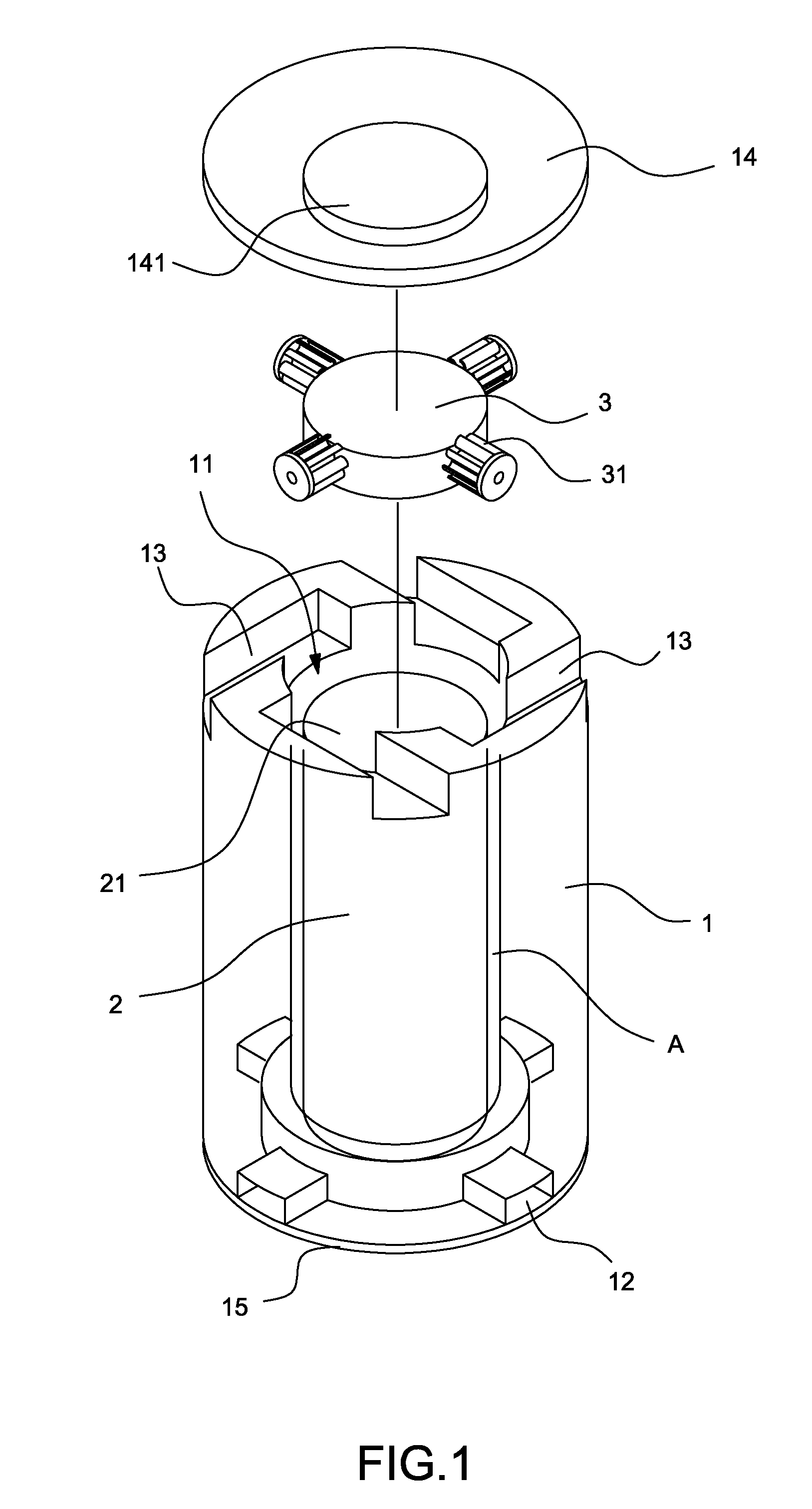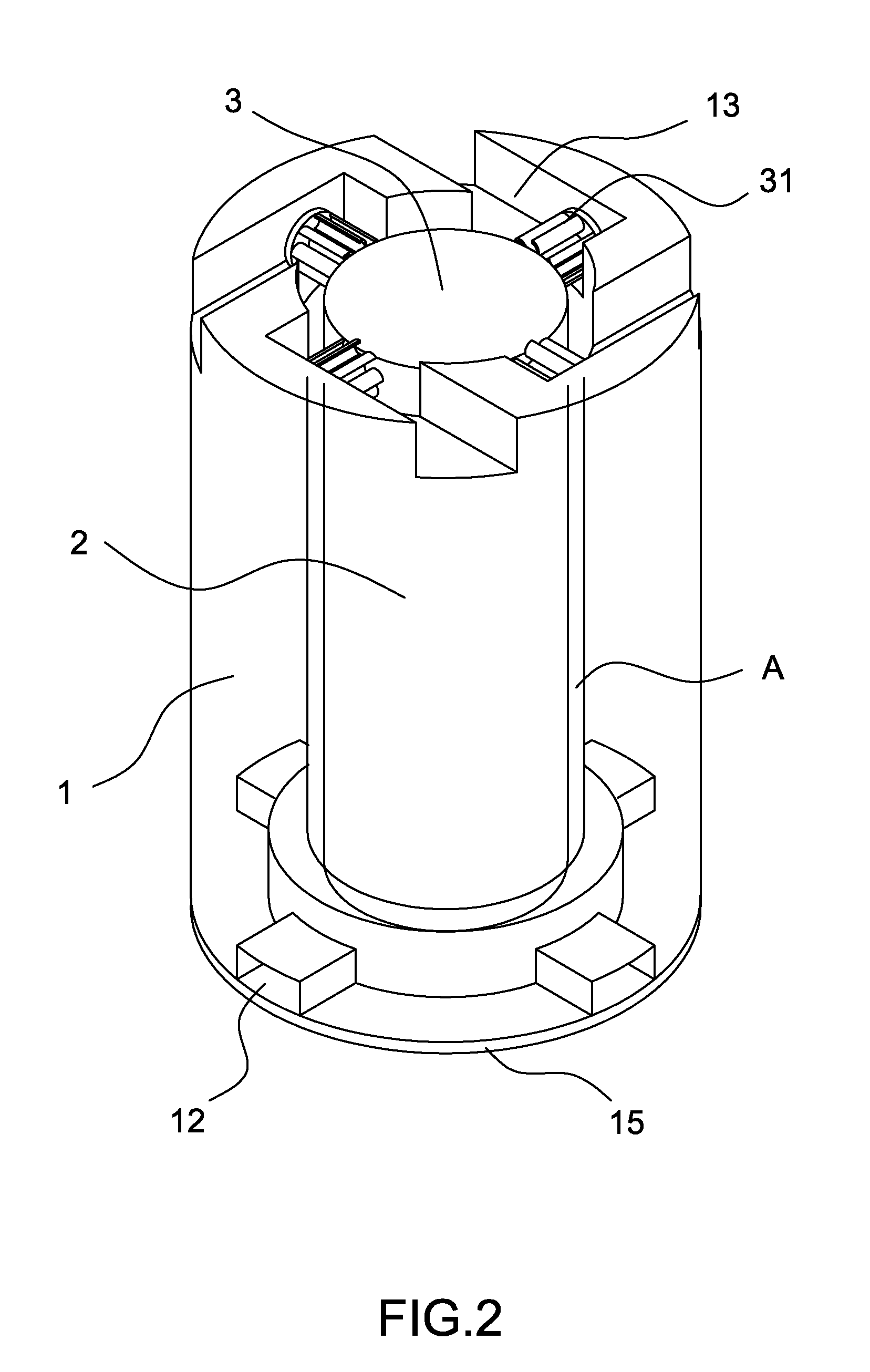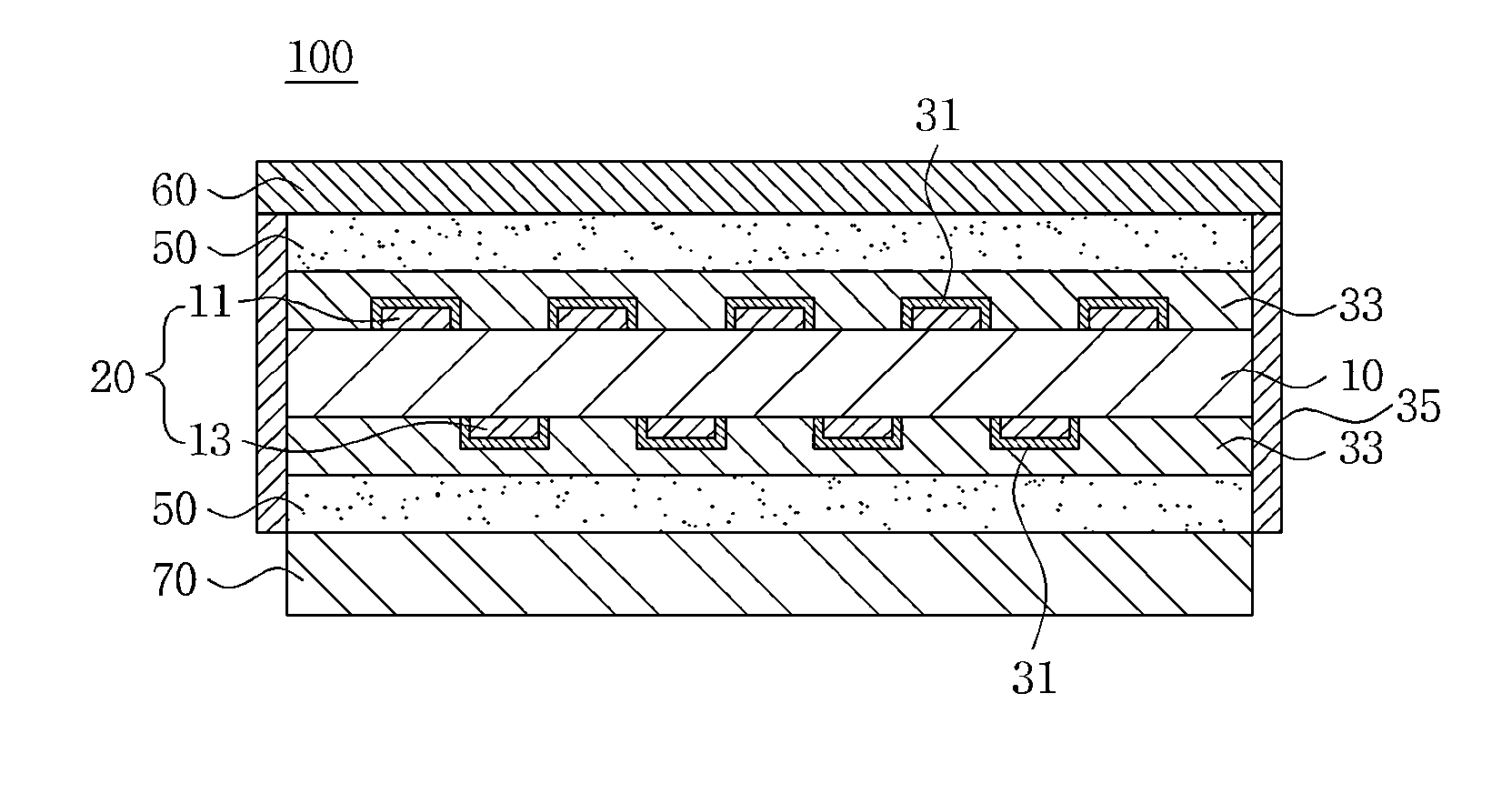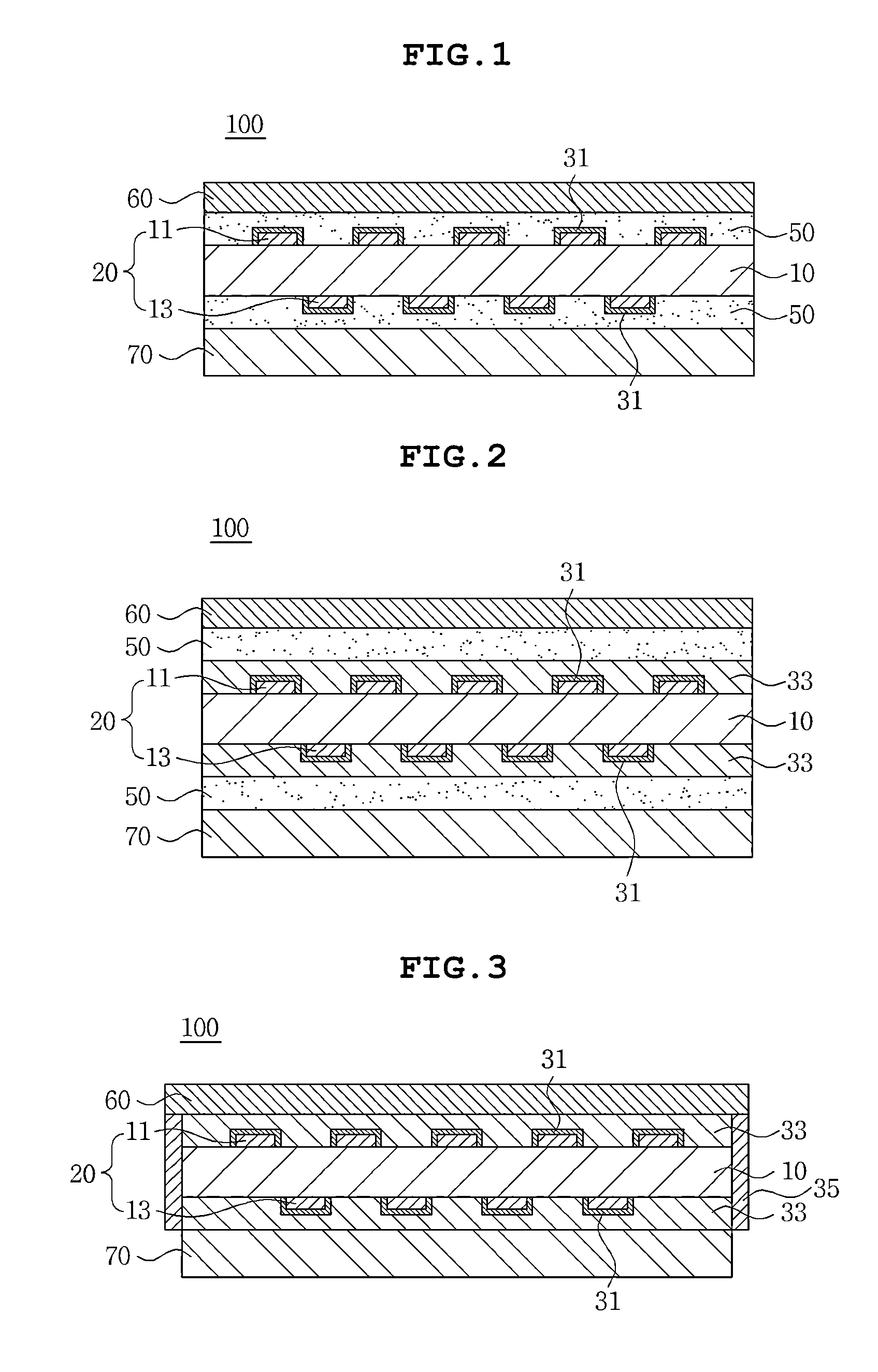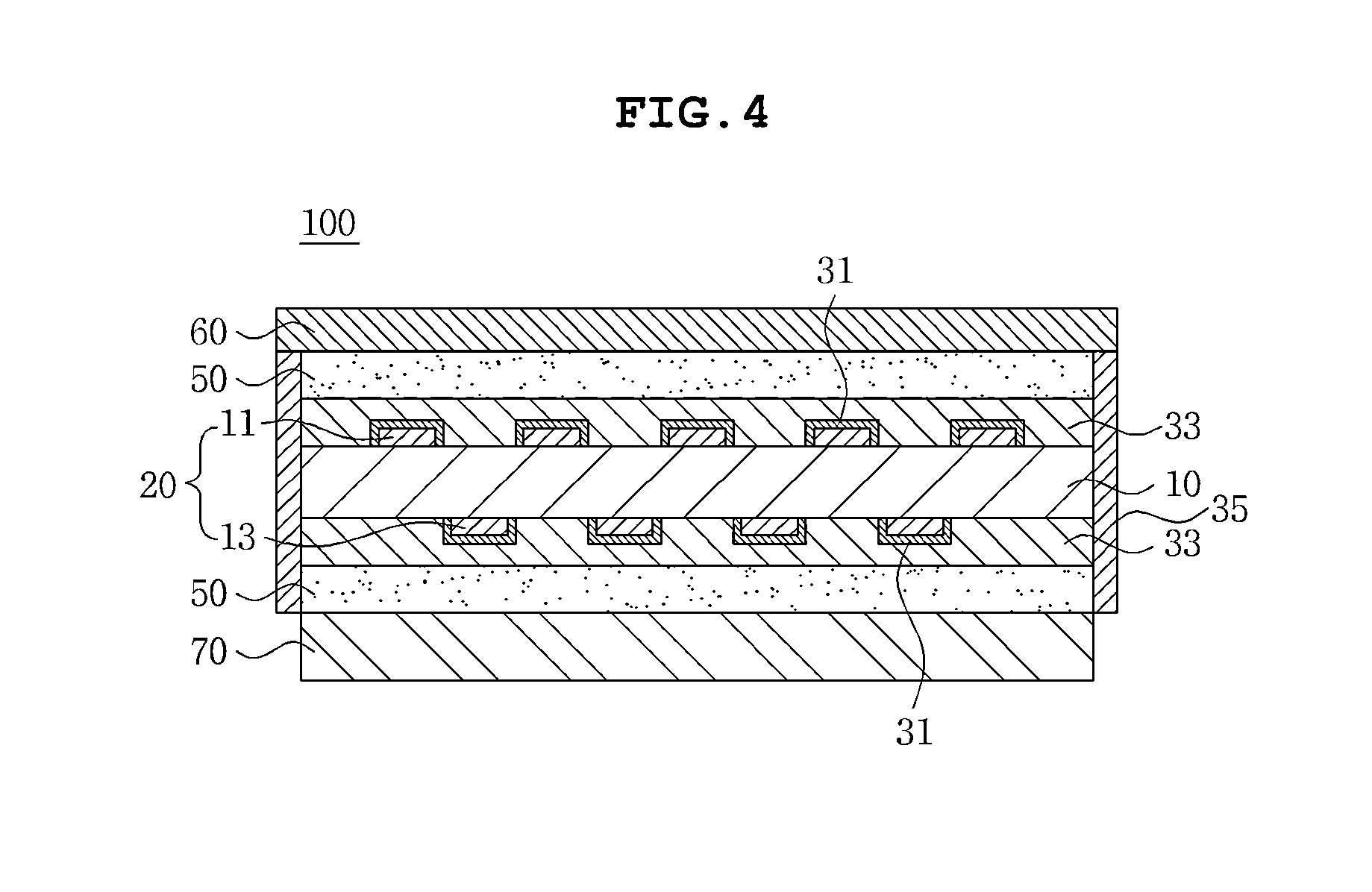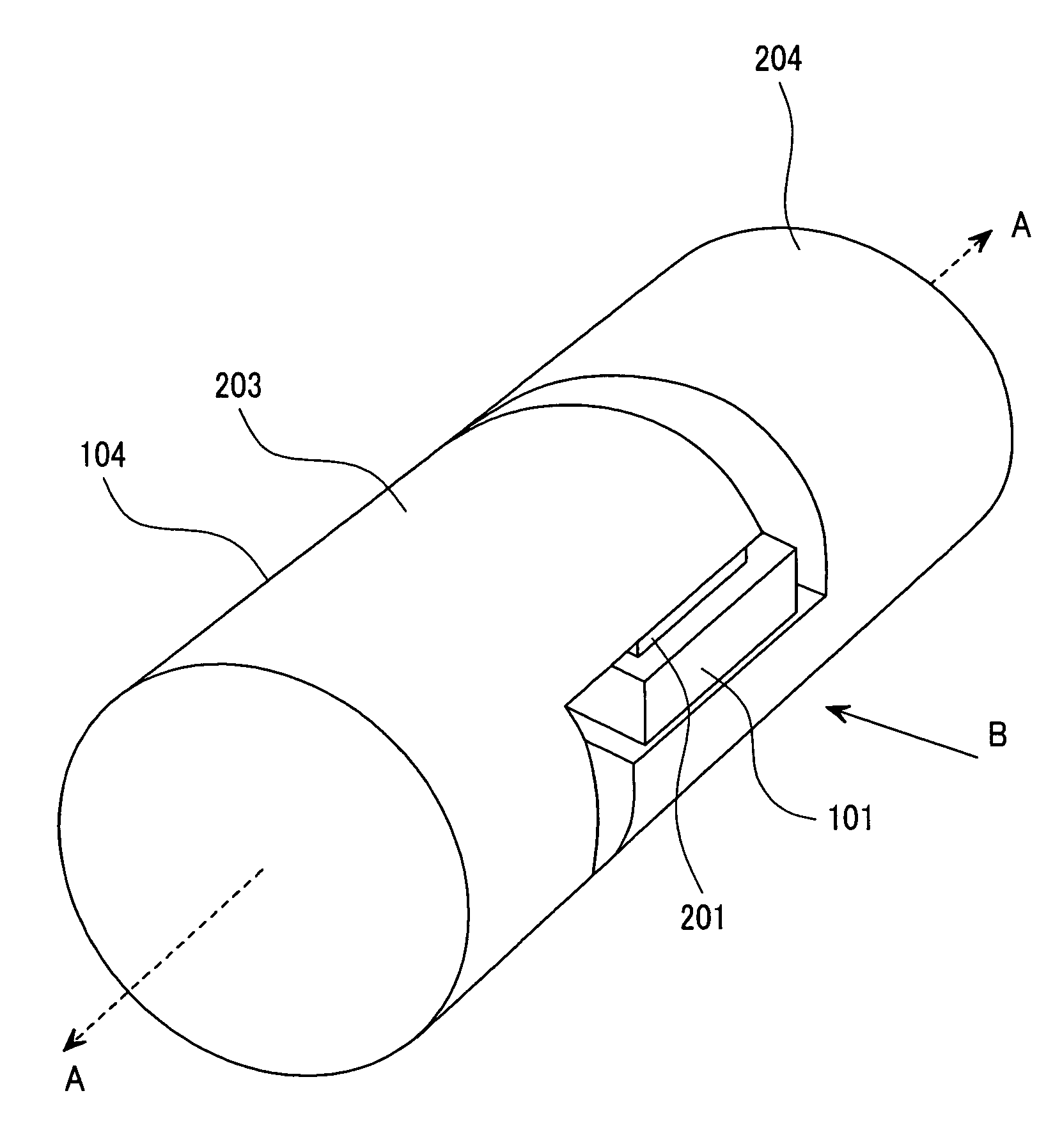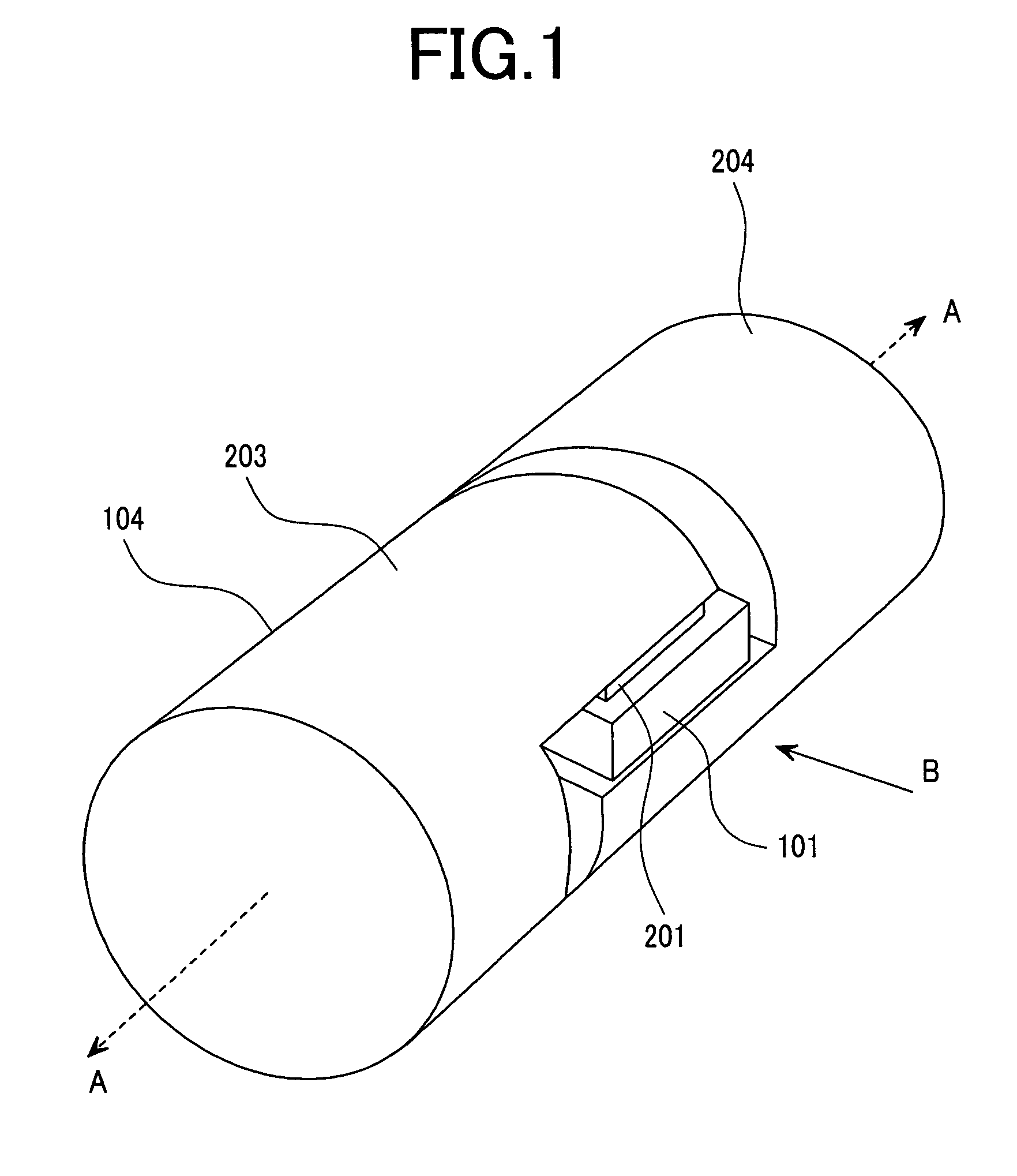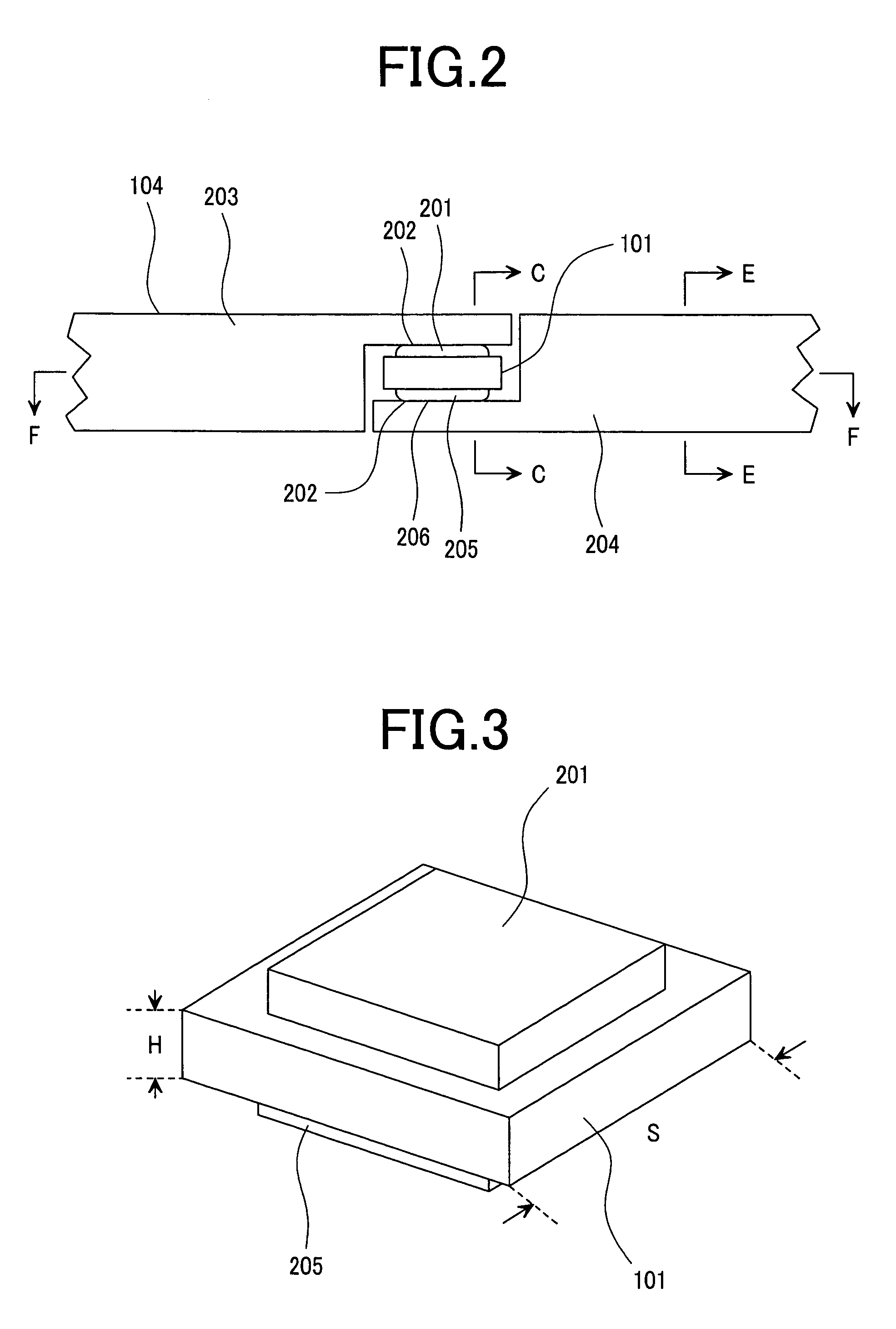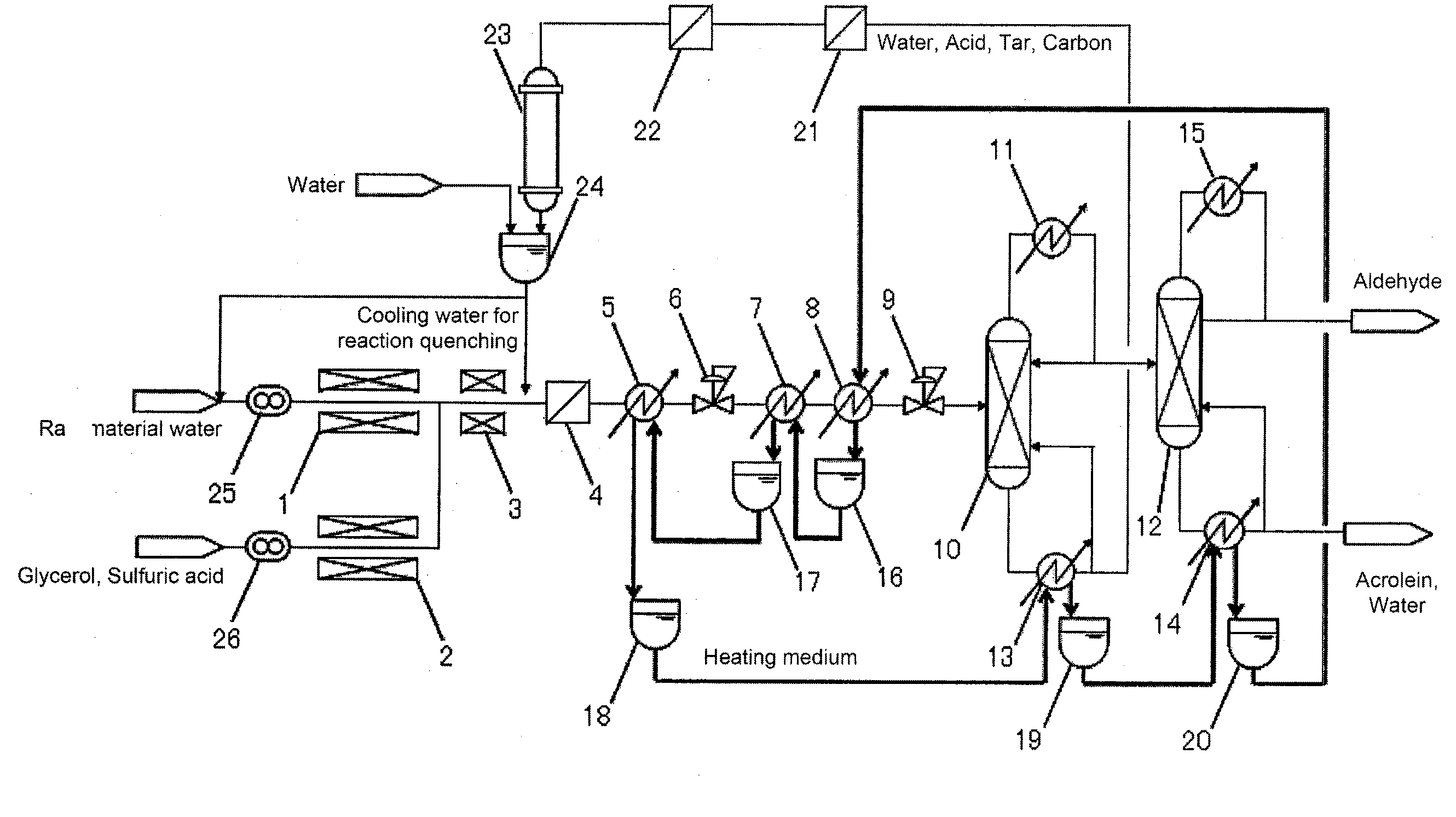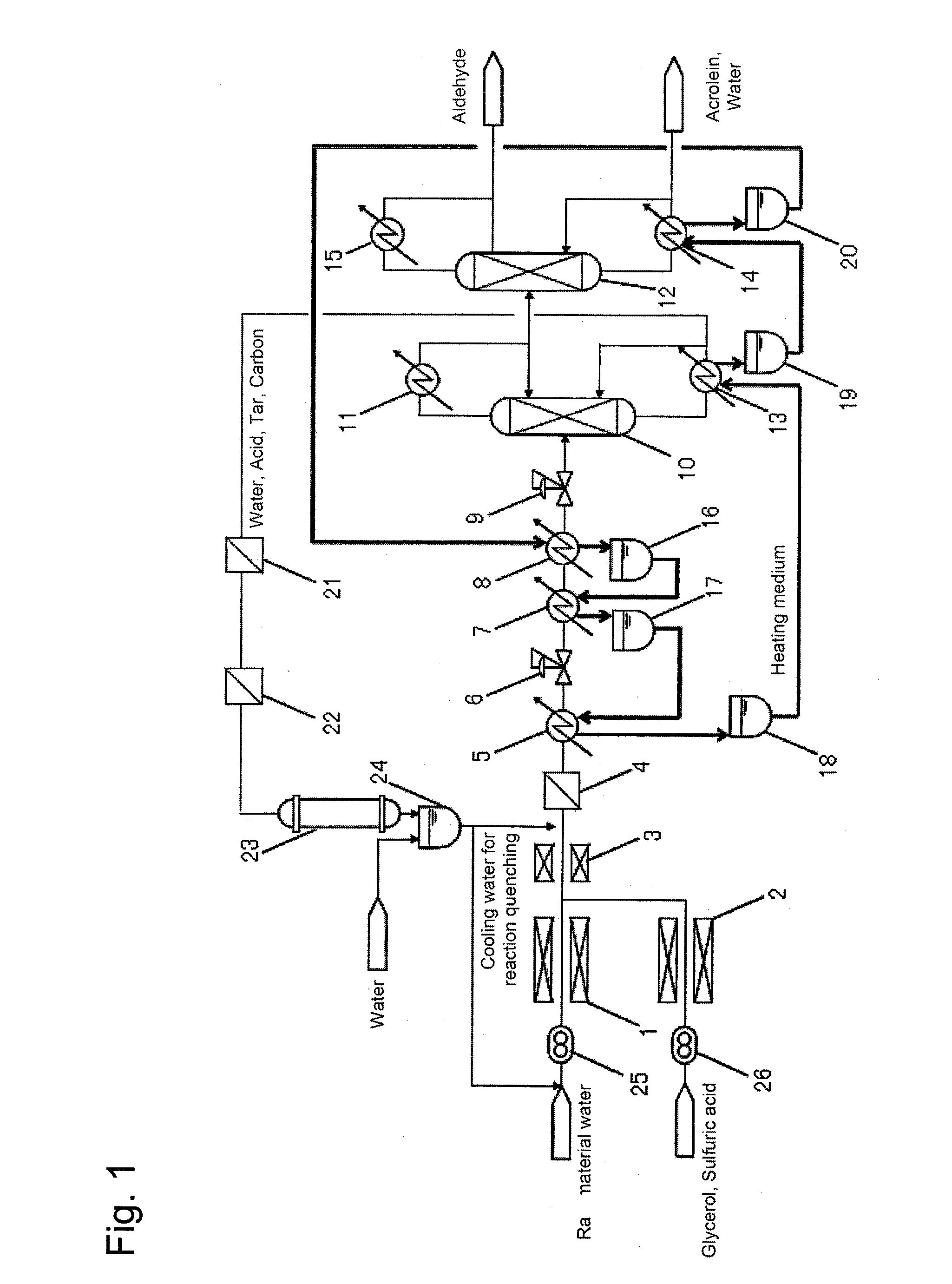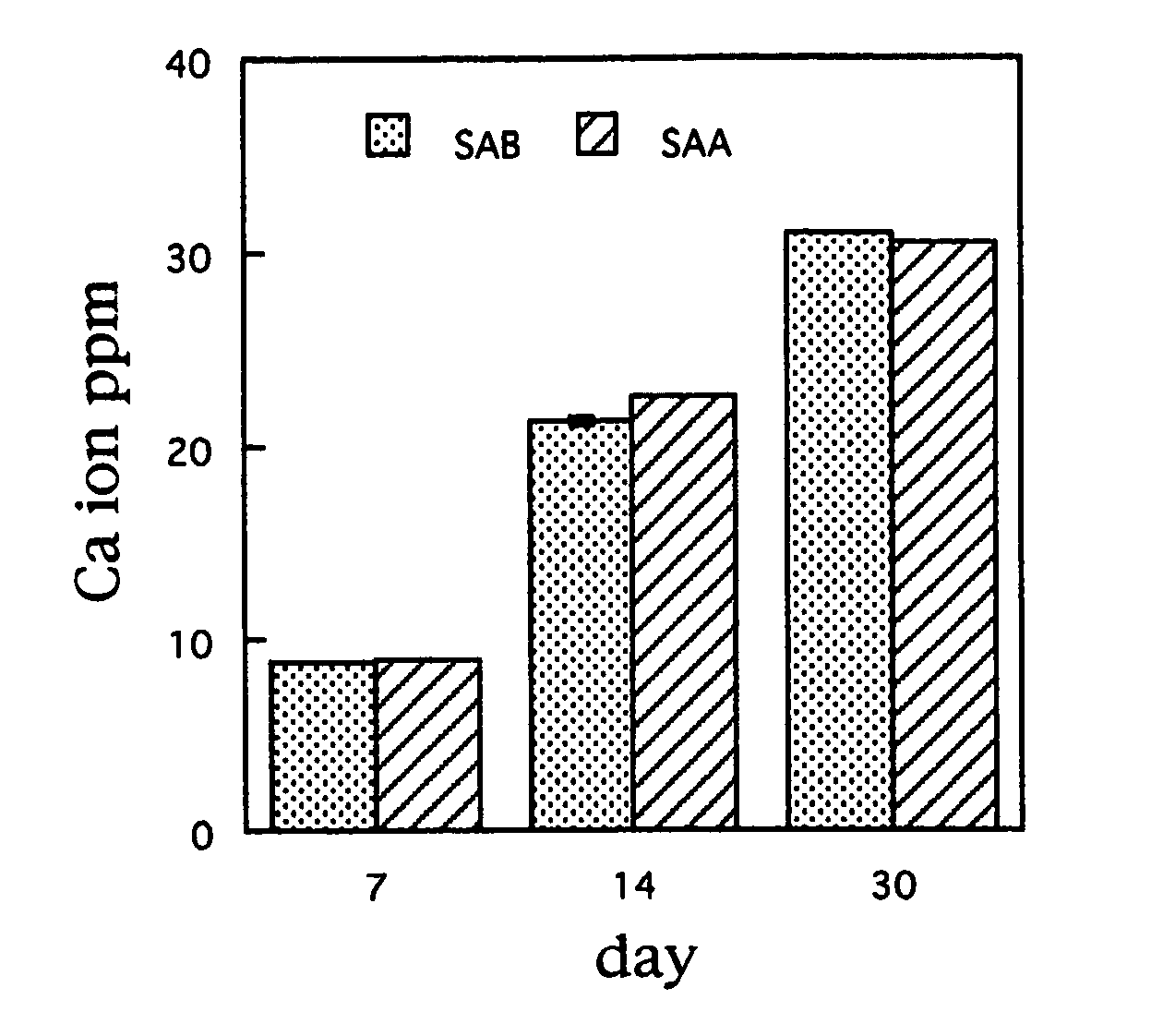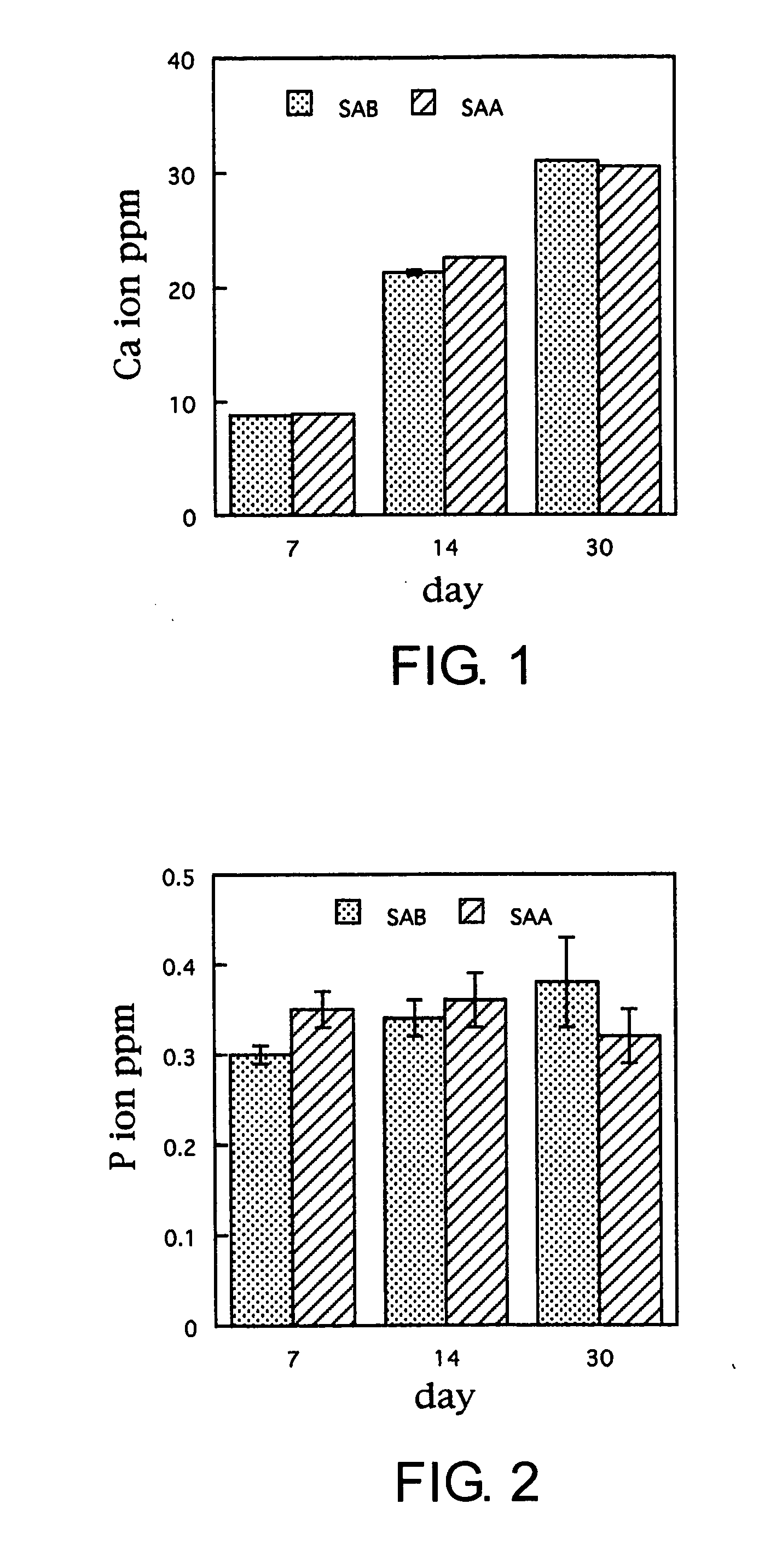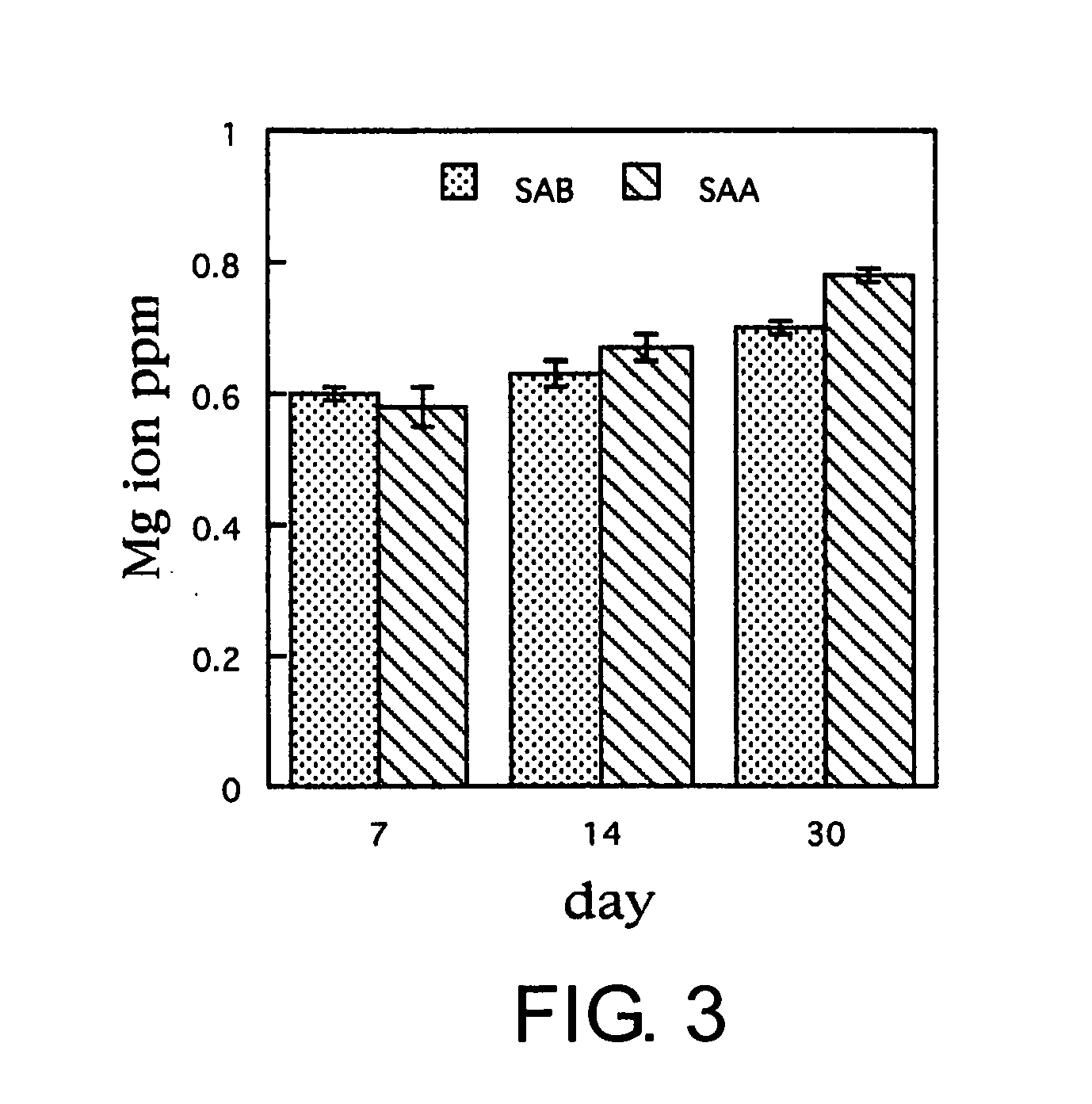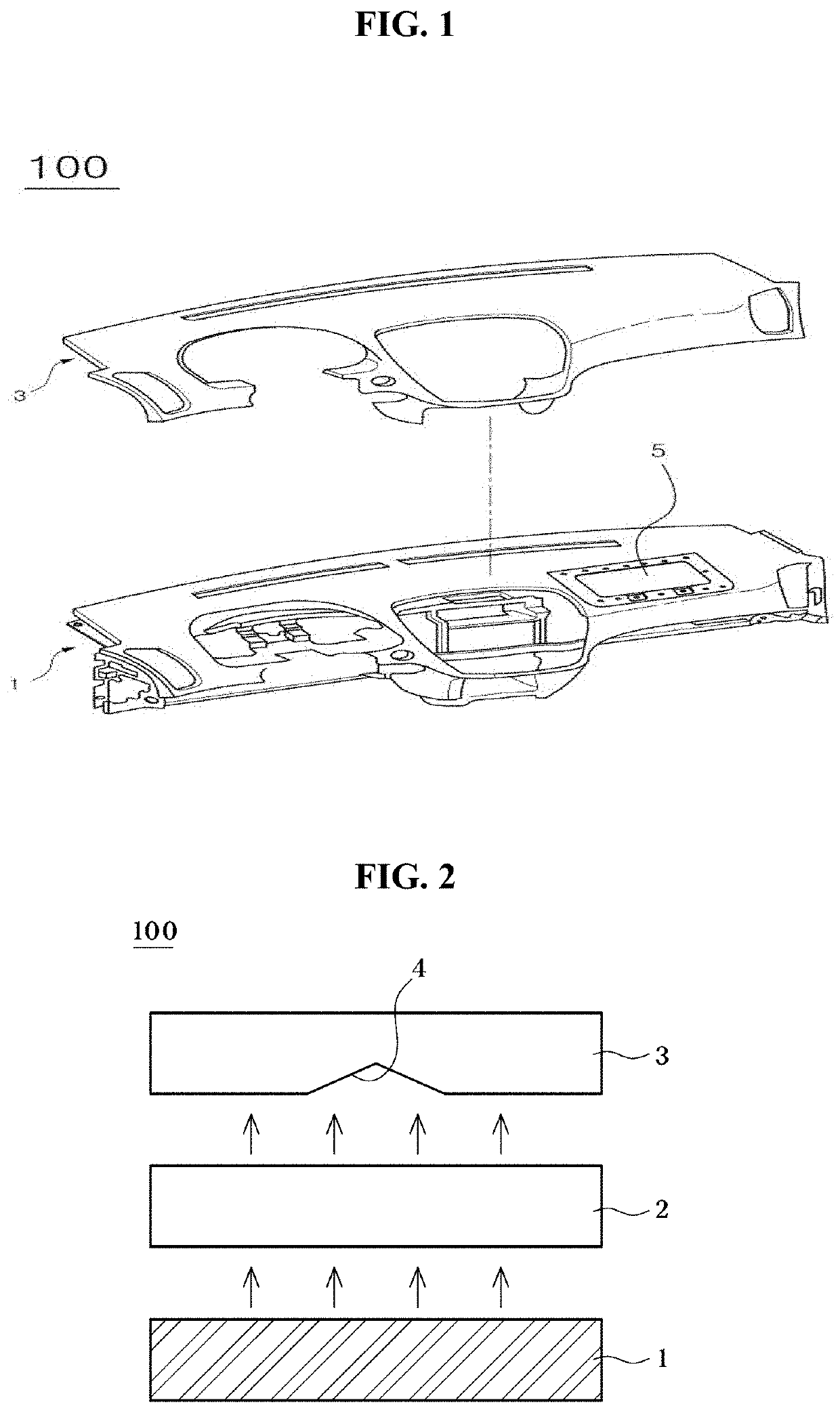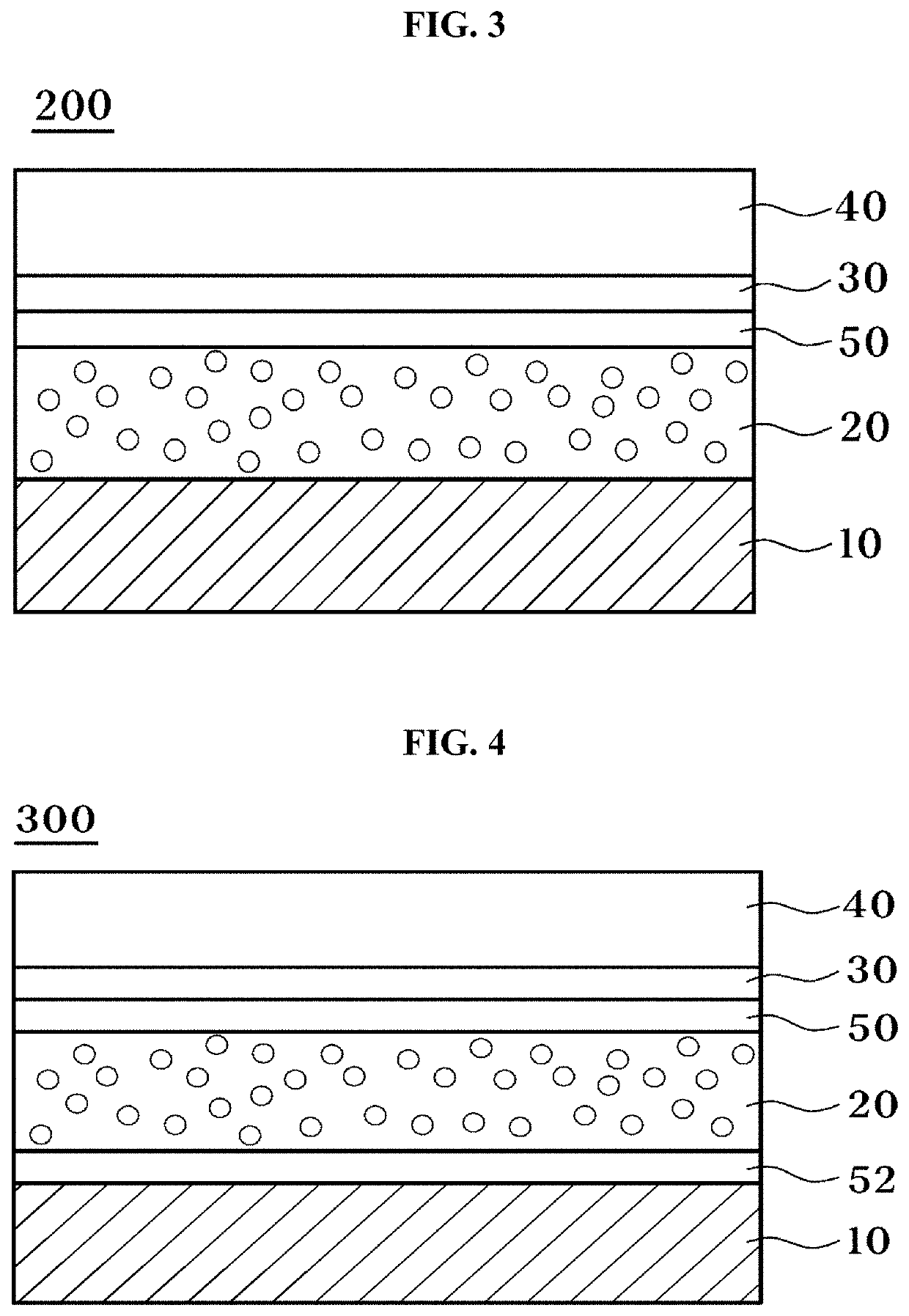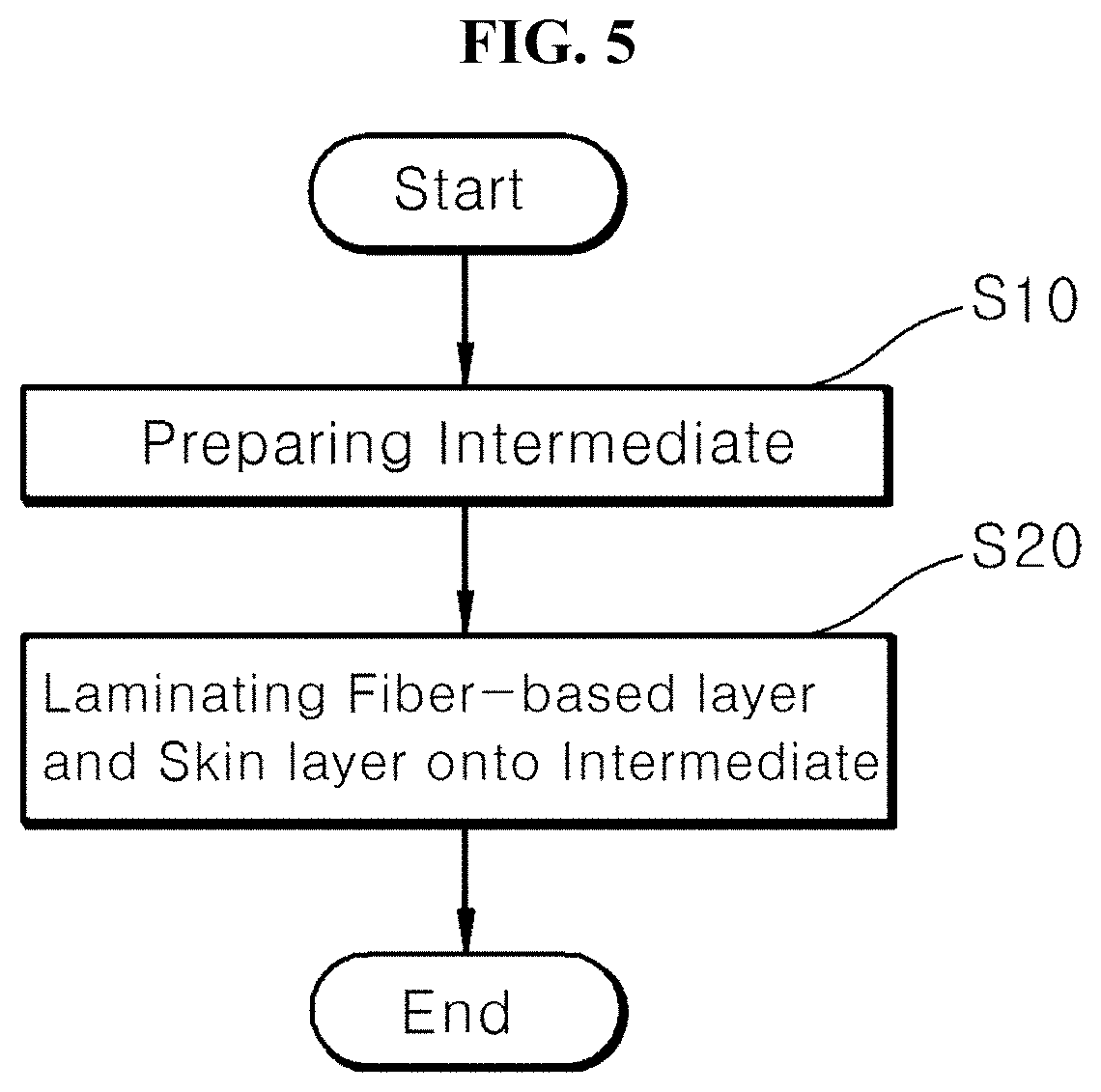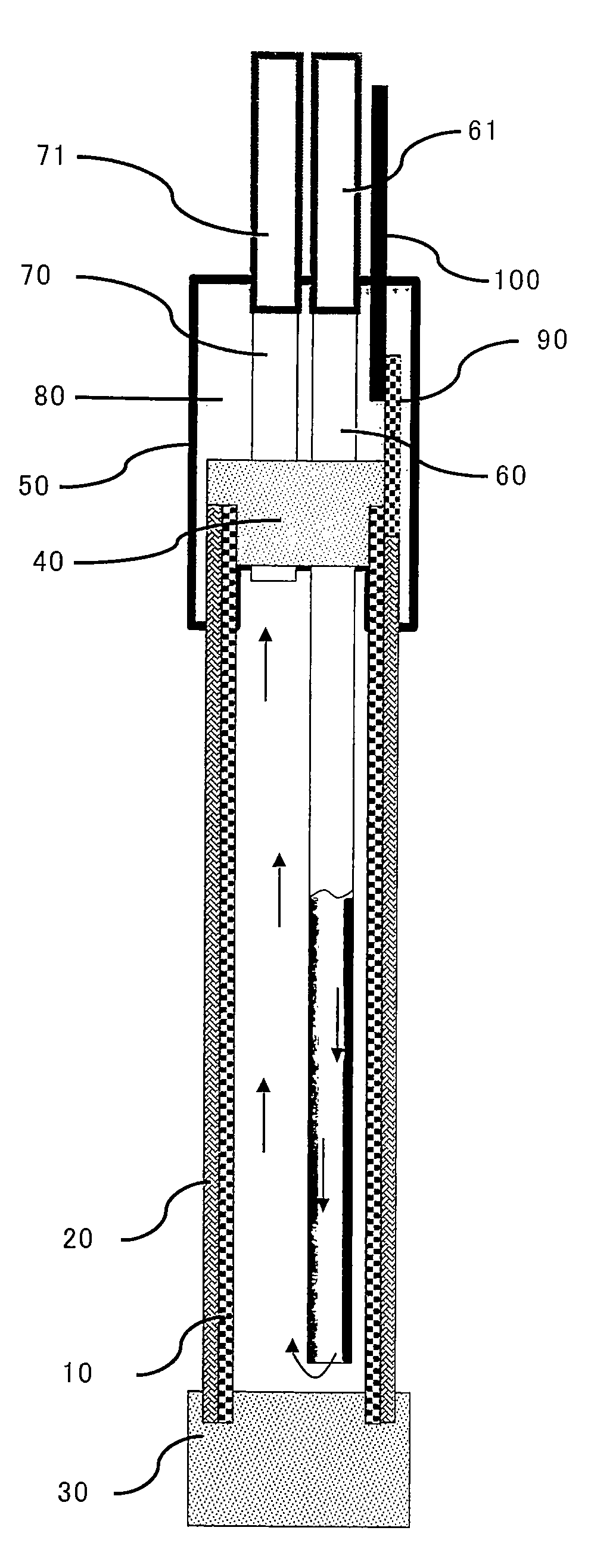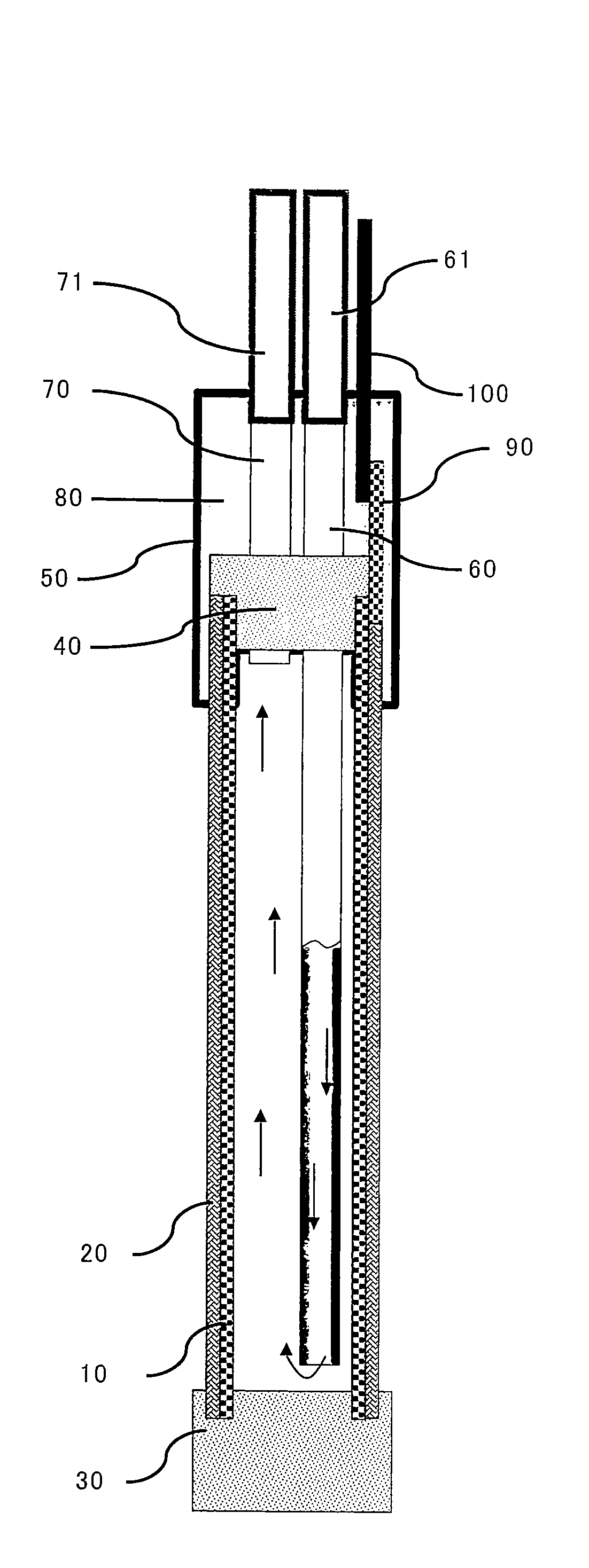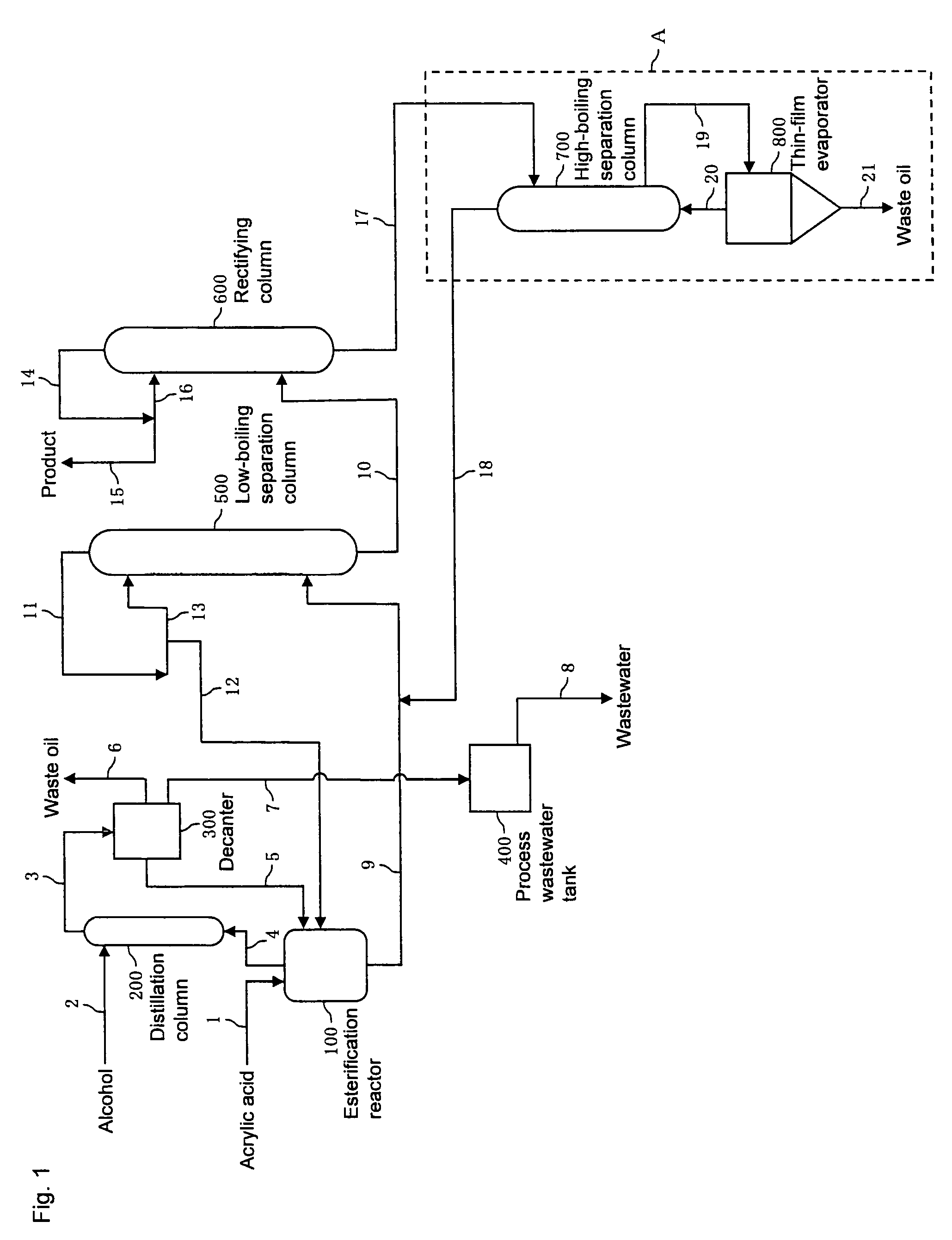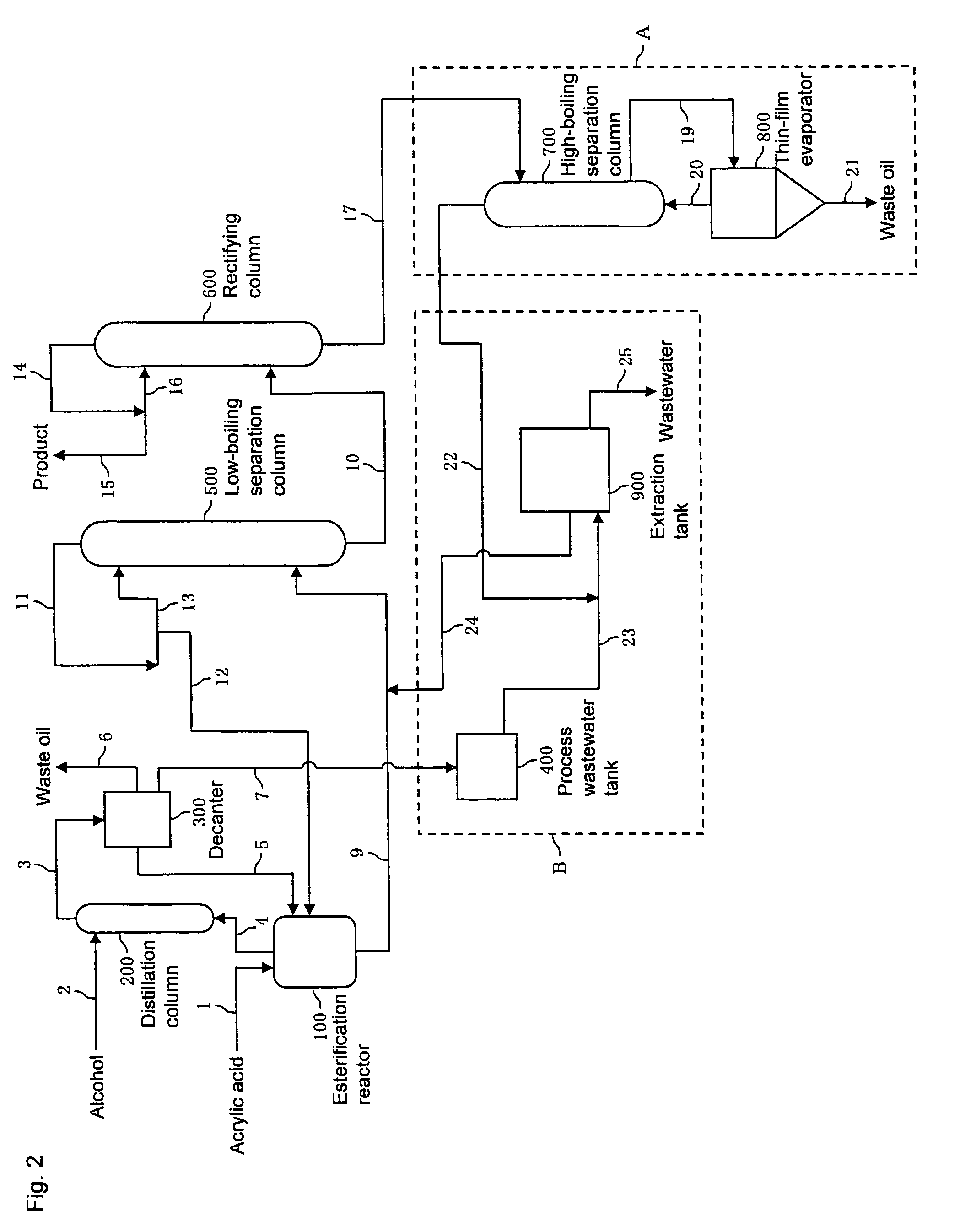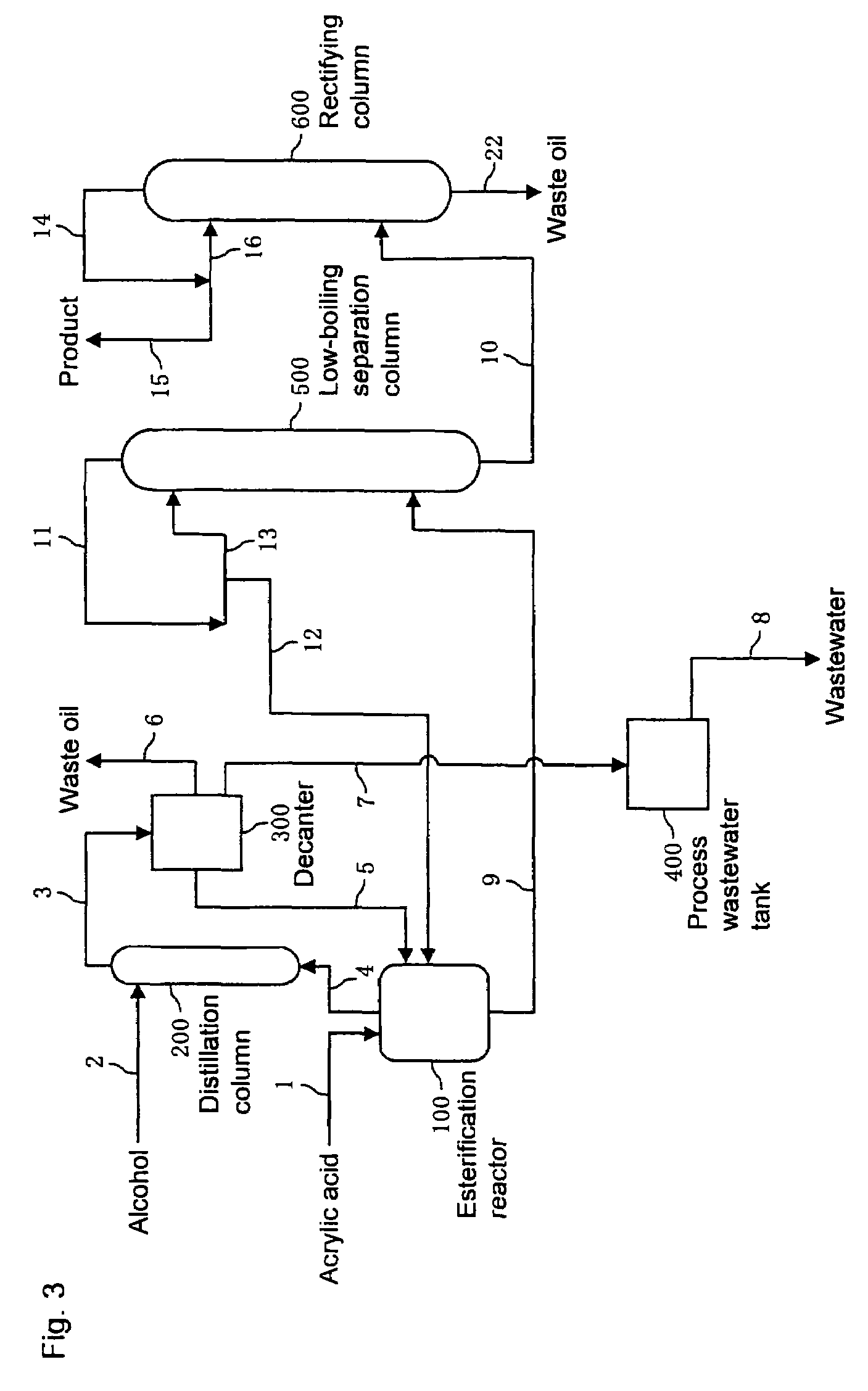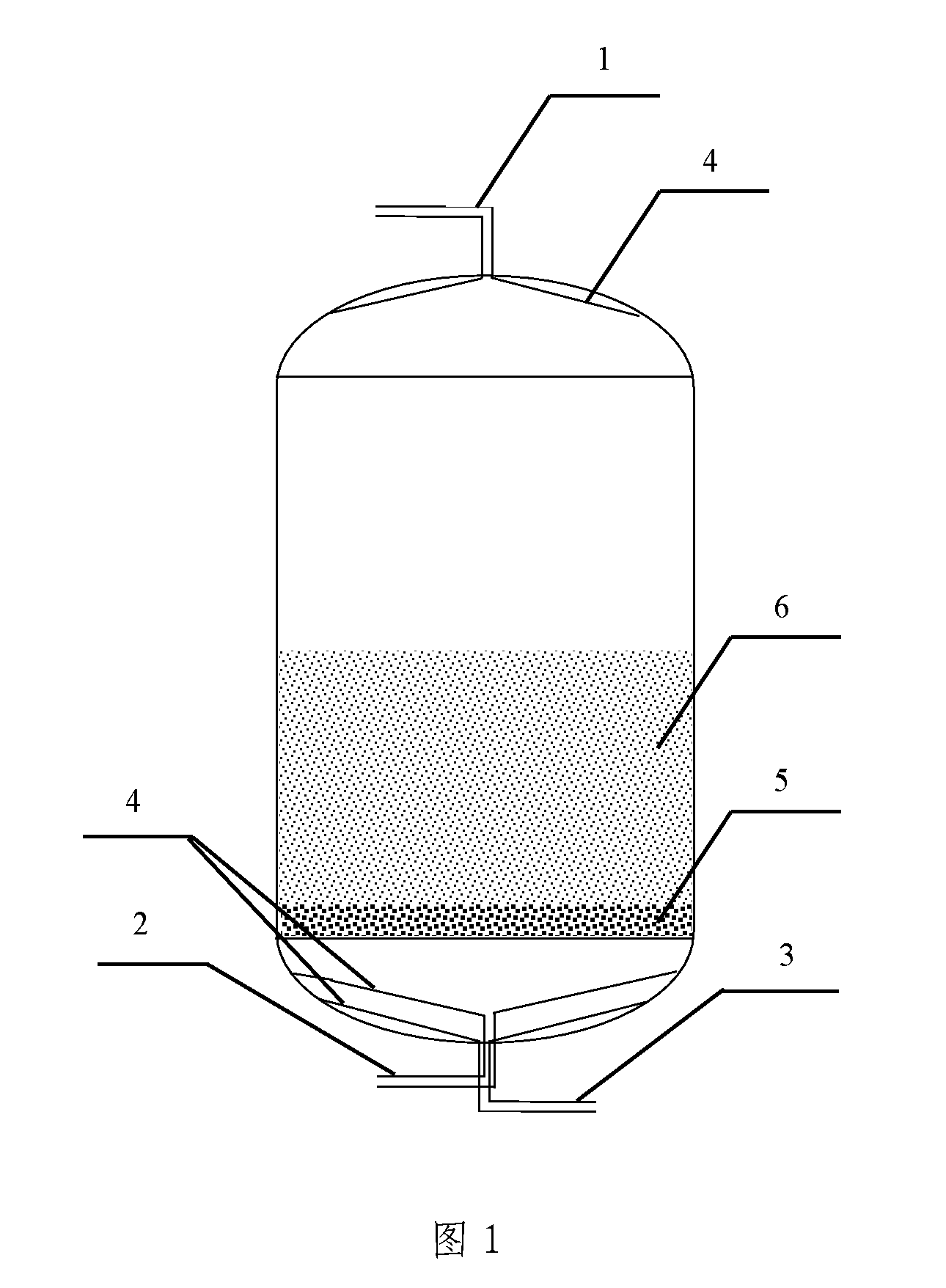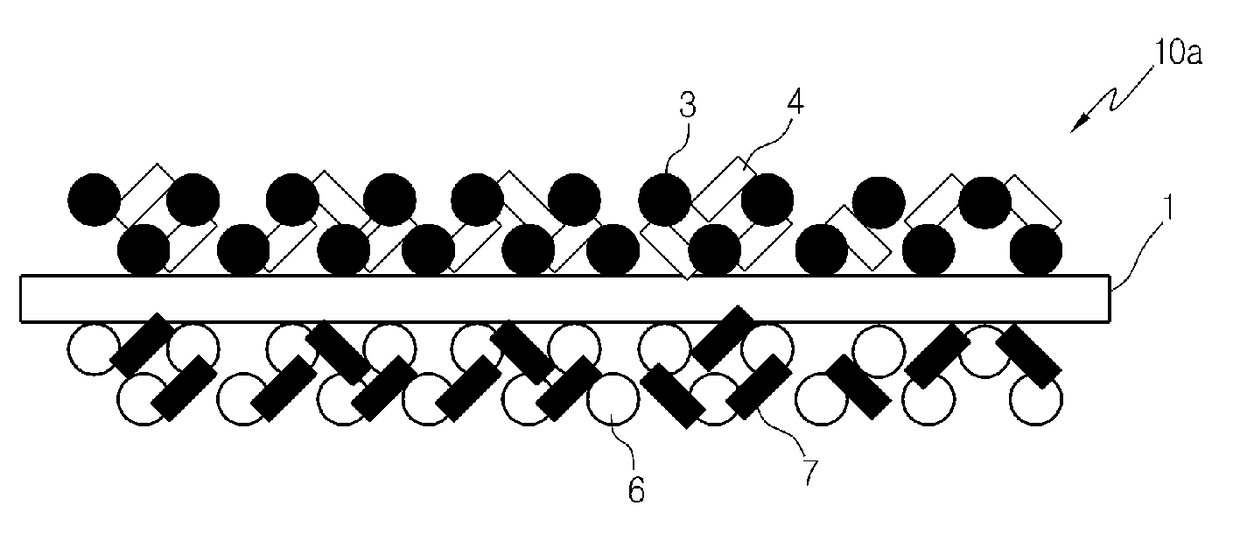Patents
Literature
36results about How to "Economic efficiency is excellent" patented technology
Efficacy Topic
Property
Owner
Technical Advancement
Application Domain
Technology Topic
Technology Field Word
Patent Country/Region
Patent Type
Patent Status
Application Year
Inventor
Three-Dimensional Image Forming System
InactiveUS20090009592A1Simple structureEconomic efficiency is excellentStereoscopic photographySteroscopic systemsOptical axisDistance sensors
Information for each of a right eye and a left eye obtained by a pair of cameras, which is provided on a three-dimensional image information obtaining apparatus, is displayed on a three-dimensional image display apparatus. An optical axis of each of the cameras is disposed so as to intersect each other on a horizontal surface or on a surface inclined with respect to the horizontal surface. Based on a detection result of a distance sensor for detecting a distance between each of the cameras and a subject, an image capturing position of each of the cameras is adjusted such that the intersection point of the optical axes of the cameras is on the subject. The image information for the right eye and the left eye obtained by the three-dimensional image information obtaining apparatus is printed on a recording sheet by a three-dimensional image printer. Hence, it is possible to positively obtain a three-dimensional image in line with a stereoscopic image recognized by a user's eyes.
Owner:SHARP KK
Solar-cell sealant and solar-cell module using same
ActiveUS20130233376A1Improve featuresImprove balanceOther chemical processesPV power plantsPolymer scienceSolar cell
A solar-cell sealant that has excellent properties such as transparency, flexibility, adhesiveness, heat resistance, appearance, cross-linking characteristics, electrical characteristics, and calenderability. A solar-cell sealant that contains an ethylene / α-olefin / unconjugated-polyene copolymer satisfying requirements (a1) through (a3). Requirement (a1) is that constituent units derived from ethylene constitute 80-90 mol %, constituent units derived from C3-20 α-olefin constitute 9.99-19.99 mol %, and constituent units derived from an unconjugated polyene constitute 0.01-5.0 mol % of said copolymer. Requirement (a2) is that the MFR of said copolymer, as measured in accordance with ASTM D1238 at 190° C. under a 2.16 kg load, be at least 2 g / 10 min. and less than 10 g / 10 min. Requirement (a3) is that the Shore A hardness of said copolymer, as measured in accordance with ASTM D2240, be 60 to 85.
Owner:MITSUI CHEM TOHCELLO INC
Encapsulating material for solar cell and solar cell module
ActiveUS20130213471A1Improve balanceImprove economyCoatingsPhotovoltaic energy generationHeat resistanceHardness
An encapsulating material for solar cell excellent in a balance among properties including transparency, flexibility, adhesiveness, heat resistance, appearance, crosslinking properties, electrical properties and calender moldability. The encapsulating material includes an ethylene / α-olefin copolymer satisfying the following requirements: (a1) the content ratio of structural units derived from ethylene is from 80 to 90 mol % and the content ratio of structural units derived from α-olefin having 3 to 20 carbon atoms is from 10 to 20 mol %; (a2) MFR is equal to or more than 2 g / 10 minutes and less than 10 g / 10 minutes as measured under the conditions of a temperature of 190 degrees centigrade and a load of 2.16 kg in accordance with ASTM D1238; (a3) the density is from 0.865 to 0.884 g / cm3 as measured in accordance with ASTM D1505; and (a4) the shore A hardness is from 60 to 85 as measured in accordance with ASTM D2240.
Owner:MITSUI CHEM TOHCELLO INC
Sulfur-modified asphalt emulsion and binder compositions
ActiveUS20130104776A1Reduce probabilityImproves asphalt binder asphalt binder emulsion user safetyRoads maintainenceEmulsionPolymer science
A Performance Grade sulfur-extended asphalt binder emulsion is made by combining a viscosifier, an emulsifier, a Performance Grade sulfur-extended asphalt binder, optionally a saponification agent, and a base aqueous solution. During creation of the asphalt emulsion, none of the components or combinations of them exceeds 275° F. A Performance Grade sulfur-extended asphalt binder emulsion residue is made by treating the Performance Grade sulfur-extended asphalt binder emulsion using the Texas Department of Transportation Evaporation Recovery Procedure. A Performance Grade sulfur-extended asphalt binder composition is made by combining free or element sulfur, a linear alkane material, optionally a saturated-backbone polymer modifier, optionally a non-aqueous acid, and a base asphalt. During creation of the asphalt binder, none of the components or combinations of them exceeds 275° F.
Owner:SAUDI ARABIAN OIL CO
Method of preparing metal oxide-silica composite aerogel and metal oxide-silica composite aerogel prepared thereby
ActiveUS20180208474A1Economic efficiency is excellentWell formedOrganic-compounds/hydrides/coordination-complexes catalystsSilicon compoundsNetwork structureSilicon dioxide
The present invention relates to a method of preparing a metal oxide-silica composite aerogel containing a high ratio of a metal oxide and a metal oxide-silica composite aerogel prepared thereby. The method of preparing a metal oxide-silica composite aerogel according to the present invention may adjust a metal oxide ratio to a high level while easily forming a uniform network structure by performing a primary reaction under an acidic condition and a secondary reaction under a basic condition, and thus, since the prepared metal oxide-silica composite aerogel may contain a high ratio of the metal oxide, mechanical properties may not only be excellent, but high specific surface area and low tap density characteristics may also be exhibited.
Owner:LG CHEM LTD
Method of preparing metal oxide silica composite aerogel and metal oxide silica composite aerogel prepared thereby
ActiveUS20180193825A1Economic efficiency is excellentPrevent crashOxide/hydroxide preparationOrganic-compounds/hydrides/coordination-complexes catalystsPorositySilicon dioxide
The present invention relates to a method of preparing an ultra-light metal oxide-silica composite aerogel having high specific surface area and high pore volume and a metal oxide-silica composite aerogel prepared thereby. The preparation method according to the present invention may not only have good economic efficiency because production costs are relatively reduced in comparison to the related art, but may also effectively prevent the collapse of a pore structure by suppressing a shrinkage phenomenon during drying, and thus, a metal oxide-silica composite aerogel having ultra-light properties as well as high porosity characteristics, such as high specific surface area and high pore volume, may be prepared.
Owner:LG CHEM LTD
The ferric and manganese binary oxide based adsorbent, and the methods for the preparation and applicaiton of the adsorbent
ActiveUS20100181258A1High activityGood removal effectInorganic chemistryOther chemical processesSorbentManganese
The present invention relates to a ferric and manganese binary oxide (FMBO) based adsorbent, its preparation and application method. The FMBO based adsorbent comprises a ferric and manganese binary oxide (FMBO) and a carrier. The mass ratio of FMBO to the carrier is between 0.2:100 and 15:100. The FMBO based adsorbent effectively removes the arsenic in groundwater, particularly the arsenite. The present invention also provides the equipment for preparation and application of the adsorbent.
Owner:RES CENT FOR ECO ENVIRONMENTAL SCI THE CHINESE ACAD OF SCI
Distributed bragg reflector type directly modulated laser and distributed feed back type directly modulated laser
ActiveUS7760782B2Economic efficiency is excellentLess power consumptionOptical resonator shape and constructionSemiconductor lasersDistributed Bragg reflector laserLaser light
The invention aims at realizing a 1300-nm-band direct modulation laser, having a single lateral mode, in which a chip light power of several milliwatts and a low current operation are simultaneously realized. Also, the invention aims at realizing a laser light source excellent in economy as well by realizing output characteristics of a vertical cavity surface light emitting laser. A distributed Bragg reflector laser is constructed in the form of a semiconductor laser having a multilayer structure formed on a predetermined semiconductor substrate. The multilayer structure includes an active region for emitting a laser beam, and a distributed Bragg reflector layer. A length of the active region falls within the range of 10 to 100 μm, and a laser light beam is generated in accordance with ON / OFF of current injection to the active region.
Owner:LUMENTUM JAPAN INC
Process for Preparing Episulfide Compounds
Provided is a method for producing an episulfide compound, the method including a step of thiating epoxy groups of (B) an epoxy compound by a reaction with (C) a thiating agent in the presence of (A) a polyhydric hydroxyl compound having two or more hydroxyl groups.
Owner:ASAHI KASEI CHEM CORP
Curable composition and cured product from same
ActiveUS20180237579A1Easy to useHighly accurate shapeOptical articlesOptical elementsSolubilitySilicone
Provided is a curable composition which has excellent curability, less causes silicone molds to swell, and allows the silicone molds to have better durability and a longer service life in repeated use. The curable composition according to the present invention is a curable composition for production of an optical component by molding using silicone molds. The curable composition contains curable compounds and a cationic initiator. The curable compounds include (A) a cycloaliphatic epoxy compound and (B) an oxetane compound. The oxetane compound (B) is present in a content of 10 to 45 weight percent of the totality of all the curable compounds contained in the curable composition. Of the totality of all the curable compounds contained in the curable composition, 90 weight percent or more is a compound or compounds having a solubility parameter of 9.0 (cal / cm3)1 / 2 or more as determined at 25° C. by the Fedors' method.
Owner:DAICEL CHEM IND LTD
Method for recovering hydrogen chloride from chlorine based waste and use of recovered hydrogen chloride
InactiveUS6896865B2Economic efficiency is excellentImprove quality levelChlorine/hydrogen-chloride purificationPreparation by hydrogen halide split-offQuality levelCombustion
To provide a process for recovering high quality hydrogen chloride rationally with good economical efficiency, particularly hydrogen chloride with an elevated quality level to be provided as the feedstock for the oxychlorination reaction in producing dichloroethane and a vinyl chloride monomer from a hydrogen chloride gas to be generated by the combustion of chlorine based waste. To use a process for recovering hydrogen chloride from chlorine based waste comprises adding water and a reducing agent to an acid gas obtained by the combustion of chlorine based waste to effect reaction to obtain a crude hydrogen chloride aqueous solution having an oxidation-reduction potential of not higher than 900 mV and then, distilling the crude hydrogen chloride aqueous solution to obtain a purified hydrogen chloride gas.
Owner:TOSOH CORP
Encapsulating material for solar cell and solar cell module
ActiveUS9349895B2Improve balanceEconomic efficiency is excellentCoatingsPhotovoltaic energy generationElectricityHeat resistance
Owner:MITSUI CHEM TOHCELLO INC
Catalyst for the synthesis of alkyl mercaptan and process for the production thereof
ActiveUS20050080295A1Improve activity and selectivityWell economic efficiencyOrganic compound preparationThiol preparationChemistryTungsten
Owner:EVONIK OPERATIONS GMBH
Insoluble electrode
InactiveUS7943019B2Maintained relatively longEconomic efficiency is excellentMachining electrodesMultiple component coatingsPorous layerTitanium powder
Provided is an economical long-life insoluble anode capable of maintaining an anode function stably for a long time even if it is used in a part where severe consumption occurs to generate a cathodizing phenomenon, and also capable of reducing the amount of an electrocatalyst used as much as possible. To realize this, on the surface of a metal substrate 10 composed of a titanium plate, a porous layer 20 including a sintered body of a spherical titanium powder is formed as a base layer. An electrocatalyst layer 30 is formed from the surface of the porous layer 20 to its inside. A part of the electrocatalyst penetrates into the porous layer 20, which provides an incomparably stronger anchor effect than the case of a blast treatment. Even when parts exposed from the porous layer 20 are peeled off and dropped off, the anode function is maintained by the electrocatalyst left in the porous layer 20.
Owner:OSAKA SODA CO LTD
Catalyst for the synthesis of alkyl mercaptan and process for the production thereof
ActiveUS7592288B2Low molar ratioEconomic efficiency is excellentThiol preparationOrganic compound preparationHydrogen sulfide synthesisTungsten
Owner:EVONIK OPERATIONS GMBH
Substrate for optical semiconductor apparatus, method for manufacturing the same, optical semiconductor apparatus and method for manufacturing the same
InactiveUS20130299859A1Improve reflection efficiencyEasy to manufactureSolid-state devicesSemiconductor/solid-state device manufacturingEngineeringSemiconductor
The present invention provides a substrate for an optical semiconductor apparatus for mounting optical semiconductor devices, the substrate includes first leads to be electrically connected to first electrodes of the optical semiconductor devices and second leads to be electrically connected to second electrodes of the optical semiconductor devices, wherein the first leads and the second leads are arranged each in parallel, a molded body of a thermosetting resin composition is molded in a penetrating gap between the first leads and the second leads, a reflector of the thermosetting resin composition is molded at a periphery of respective regions on which the optical semiconductor devices are to be mounted, and the resin molded body and the reflector are integrally molded with the first leads and the second leads by injection molding.
Owner:SHIN ETSU CHEM IND CO LTD
Light diffusion plate, composition liquid for forming a light diffusion layer and process for producing light diffusion plate
InactiveUS20100014314A1Improve rigidityDesired diffusion propertyDiffusing elementsSpecial surfacesDiffusionLiquid-crystal display
A conventional light diffusion plate provided in a direct type backlight unit to be employed for e.g. a liquid crystal display, has problems in that it does not have a sufficient diffusion performance, it is difficult to increase the size, and it is difficult to produce such a light diffusion plate at low cost.A light diffusion plate comprising a glass substrate and a light diffusion layer formed on the glass substrate, wherein the light diffusion layer comprises a matrix and a light diffusion agent, the absolute value Δn of the refractive index difference between the matrix and the light diffusion agent is 0.05 or more and less than 0.5, and the volume ratio of the light diffusion agent in the light diffusion layer is 30% or more.
Owner:ASAHI GLASS CO LTD
Insoluble Electrode
InactiveUS20090272646A1Increase anode lifeExcellent characteristicsMachining electrodesMultiple component coatingsPorous layerTitanium powder
Provided is an economical long-life insoluble anode capable of maintaining an anode function stably for a long time even if it is used in a part where severe consumption occurs to generate a cathodizing phenomenon, and also capable of reducing the amount of an electrocatalyst used as much as possible. To realize this, on the surface of a metal substrate 10 composed of a titanium plate, a porous layer 20 including a sintered body of a spherical titanium powder is formed as a base layer. An electrocatalyst layer 30 is formed from the surface of the porous layer 20 to its inside. A part of the electrocatalyst penetrates into the porous layer 20, which provides an incomparably stronger anchor effect than the case of a blast treatment. Even when parts exposed from the porous layer 20 are peeled off and dropped off, the anode function is maintained by the electrocatalyst left in the porous layer 20.
Owner:OSAKA SODA CO LTD
Solar-cell sealant and solar-cell module using same
ActiveUS9040811B2Improve featuresImprove balanceOther chemical processesPV power plantsCross-linkHeat resistance
A solar-cell sealant that has excellent properties such as transparency, flexibility, adhesiveness, heat resistance, appearance, cross-linking characteristics, electrical characteristics, and calenderability. A solar-cell sealant that contains an ethylene / α-olefin / unconjugated-polyene copolymer satisfying requirements (a1) through (a3). Requirement (a1) is that constituent units derived from ethylene constitute 80-90 mol %, constituent units derived from C3-20 α-olefin constitute 9.99-19.99 mol %, and constituent units derived from an unconjugated polyene constitute 0.01-5.0 mol % of said copolymer. Requirement (a2) is that the MFR of said copolymer, as measured in accordance with ASTM D1238 at 190° C. under a 2.16 kg load, be at least 2 g / 10 min. and less than 10 g / 10 min. Requirement (a3) is that the Shore A hardness of said copolymer, as measured in accordance with ASTM D2240, be 60 to 85.
Owner:MITSUI CHEM TOHCELLO INC
Cooling device for Stirling circulated dry storage container
InactiveUS8555641B2Improve cooling efficiencyEconomic efficiency is excellentCompression machinesPortable shielded containersEngineeringNuclear waste storage
A cooling device for Stirling circulated dry storage container, which is mainly to make an accommodation space with opening within an external shield, and at the peripherals of the accommodation space, it is installed with a plurality of air flow inlets and air flow outlets that are connected to the external side. In addition, a shield cover is used to cover the opening of the accommodation space, and a nuclear waste storage container is installed within the accommodation space of the external shield, and the peripheral of the accommodation space and the nuclear waste storage container forms an air flow channel.
Owner:INST NUCLEAR ENERGY RES ROCAEC
Touch sensor
InactiveUS20150091590A1Economic efficiency is excellentReliable implementationConductive layers on insulating-supportsCapacitance measurementsMetal electrodesProtection layer
Disclosed herein is a touch sensor using a metal electrode. More specifically, the present invention relates to a touch sensor capable of implementing reliability of the metal electrode and having economical efficiency even under a condition of high temperature and humidity by forming a first protection layer including a heterocycle compound on metal fine lines forming the electrode pattern.
Owner:SAMSUNG ELECTRO MECHANICS CO LTD
Wireless IC tag and process for manufacturing the same
InactiveUS7692545B2Small sizeImprove productivityComplete banking machinesFinanceElectrical conductorEngineering
There is a problem related to radio wave interference, e.g. the shade of radio wave of a radio IC tag, when a plurality of radio IC tags are present in a region of electromagnetic wave. When a plurality of antennas each having a large area are present in the vicinity of the radio IC tag, the radio IC tag easily receives the affect of an antenna conductor. In a plurality of radio IC tags present in a radio wave area, width of the antenna conductor of the radio IC tag is set at 1.0 mm or less. Furthermore, in order to realize an antenna conductor having a small width, an IC tag chip of both side electrode structure having electrodes on the front surface and rear surface of a chip is sandwiched between antennas.
Owner:HITACHI LTD
Electromagnetic shielding material
ActiveUS10442159B2Reduce thicknessEconomic efficiency is excellentShielding materialsSolid state diffusion coatingMetal foilElectromagnetic shielding
Owner:JX NIPPON MINING & METALS CORP
Reaction process using supercritical water
InactiveUS20120255852A1Reduce the amount requiredEconomic efficiency is excellentOrganic compound preparationCarbonyl compound preparationDistillationChemistry
When obtaining a target substance by gradually cooling the reaction liquid by cooling in a plurality of stages divided in series, and then distilling the cooled reaction liquid by distillation in a plurality of stages divided in series, this method and this apparatus include: circulating a heating medium to be used for cooling in the plurality of the stages by way of; sequentially passing the heating medium toward the most upstream cooling stage from the most downstream cooling stage of the reaction liquid; cooling the heating medium which has been discharged from the most upstream cooling stage by using the heating medium for keeping or raising the temperature of the liquid which has been discharged from the distillation in the plurality of the stages; and returning the cooled heating medium back to the most downstream cooling stage of the reaction liquid.
Owner:HITACHI LTD
Composition containing a marine-derived inorganic substance and chitin/chitosan, and method of producing the composition
InactiveUS20050058715A1Promotes bone formationImprove securityBiocideOrganic active ingredientsChitin formationMarine Organism
A composition contains an inorganic substance obtained as a residue after incinerating skins of marine organisms, and chitin / chitosan. The composition is obtained by incinerating the skins of the marine organisms at a temperature within a range between 600° C. and 1000° C. to obtain the inorganic substance as a residue, obtaining a powdered inorganic substance from the inorganic substance, and kneading the powdered inorganic substance with chitin / chitosan powder.
Owner:MATSUMOTO DENTAL UNIVERSITY
Automotive crash pad and manufacturing method thereof
PendingUS20220024401A1Excellent airbag deployment performanceEliminate skin layer-weakening processPedestrian/occupant safety arrangementSynthetic resin layered productsFiberAirbag
An automotive crash pad and a method for manufacturing the same. The automotive crash pad includes: a skin layer forming the outer surface of the crash pad including an airbag module; a fiber-based layer formed on the lower surface of the skin layer; a cushion layer formed on the lower surface of the fiber-based layer and including slab foam; and a core layer formed on the lower surface of the cushion layer, wherein a laminate of the skin layer and the fiber-based layer has a tensile strength in transverse direction (TD) of 5 to 50 kgf / 3 cm and an elongation at break in transverse direction (TD) of 40 to 220%.
Owner:HYUNDAI MOBIS CO LTD
Hollow electrode with film for electrodeposition coating
InactiveUS8197658B2Easy to handleEconomic efficiency is excellentCellsFatty/oily/floating substances removal devicesIon-exchange membranesChemistry
In order to solve various problems such as a reduction in a paint resin with the progress of electrodeposition coating treatment and remelting of a coating film or the occurrence of pinholes caused by an increased concentration of an electrolyte as a result of the reduction, upsizing of a hollow electrode with a membrane for electrodeposition coating combined with a barrier membrane (e.g., an ion exchange membrane) and an increase in the number of components should be avoided. In order to realize this, a barrier membrane 20 such as an ion exchange membrane is attached to the exterior surface of an electrode main body 10, which is in a hollow state made of a conductive material and configured so as to allow a liquid to pass through freely between the inside and outside of the electrode serving as a support.
Owner:OSAKA SODA CO LTD +1
Process for producing acrylic ester
ActiveUS7491841B2Economic efficiency is excellentReduce consumptionOrganic compound preparationCarboxylic acid esters separation/purificationAlcoholBoiling point
Owner:NIPPON SHOKUBAI CO LTD
Method for making ferric and manganese binary oxide based adsorbent
ActiveUS8207087B2Improve adsorption capacityEconomic efficiency is excellentInorganic chemistryOther chemical processesSorbentManganese
Owner:RES CENT FOR ECO ENVIRONMENTAL SCI THE CHINESE ACAD OF SCI
Electrochemical device and its manufacturing method
ActiveUS9799866B2Improve thermal stabilityEconomic efficiency is excellentFinal product manufactureActive material electrodesPorous coatingPorous substrate
An electrochemical device includes an electrode structure provided with a composite separator having a porous substrate with a plurality of pores and a porous coating layer formed on at least one surface of the porous substrate and made of a mixture of electrode active material particles and a binder polymer. The porous coating layer of the composite separator improves thermal stability of the porous substrate and plays a function of electrode active material layer of the electrochemical device. Accordingly, this electrochemical device has excellent stability and good economical efficiency since the electrode structure does not need coating of an electrode active material layer on a surface of a current collector.
Owner:LG ENERGY SOLUTION LTD
Features
- R&D
- Intellectual Property
- Life Sciences
- Materials
- Tech Scout
Why Patsnap Eureka
- Unparalleled Data Quality
- Higher Quality Content
- 60% Fewer Hallucinations
Social media
Patsnap Eureka Blog
Learn More Browse by: Latest US Patents, China's latest patents, Technical Efficacy Thesaurus, Application Domain, Technology Topic, Popular Technical Reports.
© 2025 PatSnap. All rights reserved.Legal|Privacy policy|Modern Slavery Act Transparency Statement|Sitemap|About US| Contact US: help@patsnap.com
